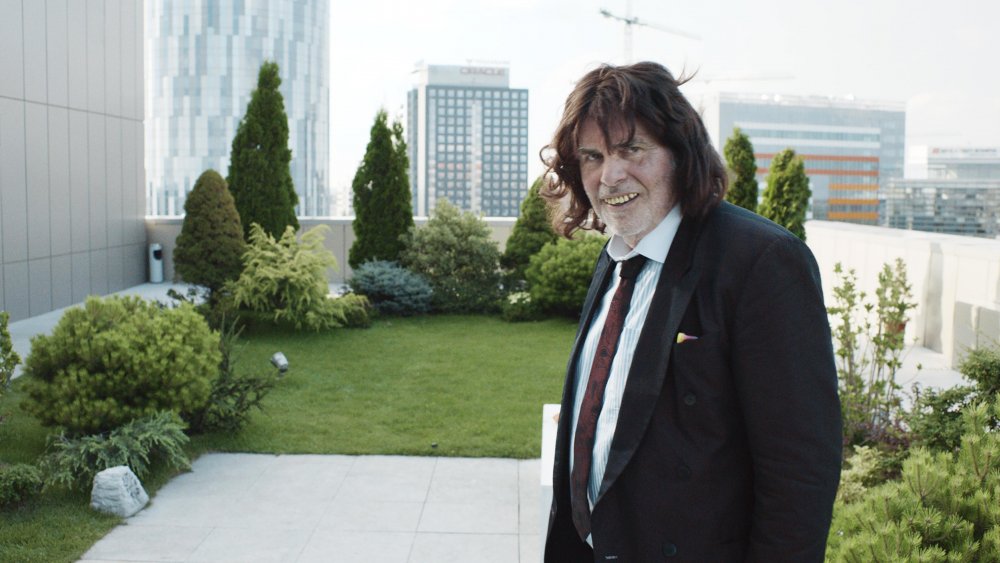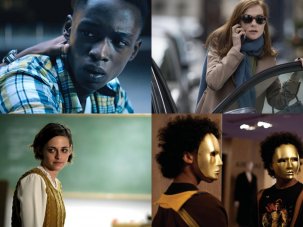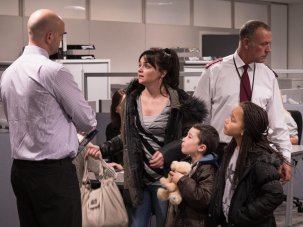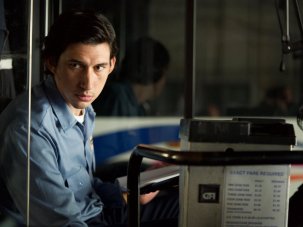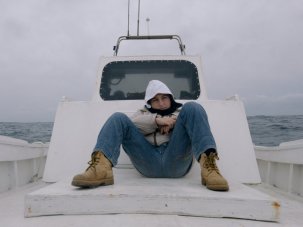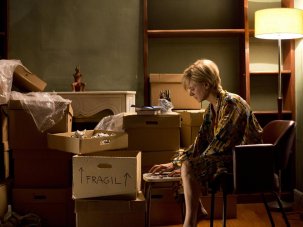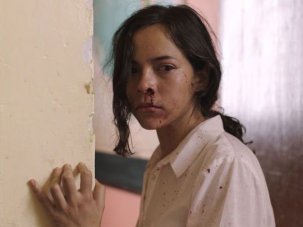1. Toni Erdmann
Maren Ade, Germany-Austria ► Trailer
A shambling baby boomer pushes his high-achieving daughter’s buttons with a series of increasingly bizarre practical jokes.
“Maren Ade’s winning daughter-father comedy contains some of the sharpest moments of audience blindsiding I’ve ever encountered… Following the death of his pet dog, Winfried Conradi (Peter Simonischek), a retired man fond of practical jokes, decides to visit his workaholic daughter Ines (Sandra Hüller) in Bucharest, to bring a little chaos into her too well-ordered life. He adopts a new, entrepreneurial persona: ‘Toni Erdmann’. Ade’s structural panache and nose for a perfect take (I hear she shot 500 hours of material) are matched by the actors’ comic timing.”
— Nick James, reporting from Cannes in our July 2016 issue
Read our review Toni Erdmann: a shaggy dad comedy with a deep bite
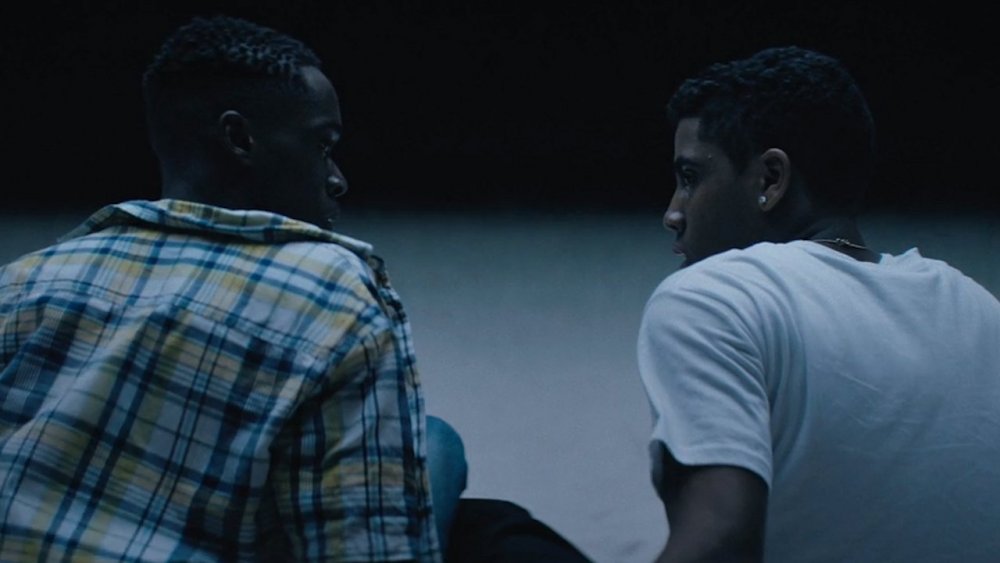
2. Moonlight
Barry Jenkins, USA ► Trailer
Three chapters in the life of Chiron, a shy black kid growing up gay and poor in 1980s Miami.
A film about the complexity of black masculinity and the very human hunger for connection; about the fragility that lies beneath a man’s swagger – what it means to be ‘soft’ and what it means to be strong… Jenkins takes clichés about addiction, drugs, poverty, violence and homophobia in black America, and changes their context by shading familiar situations and archetypes of black life with careful detail and texture.
Read our review Moonlight, a prism of repression and desire, awash in poetry
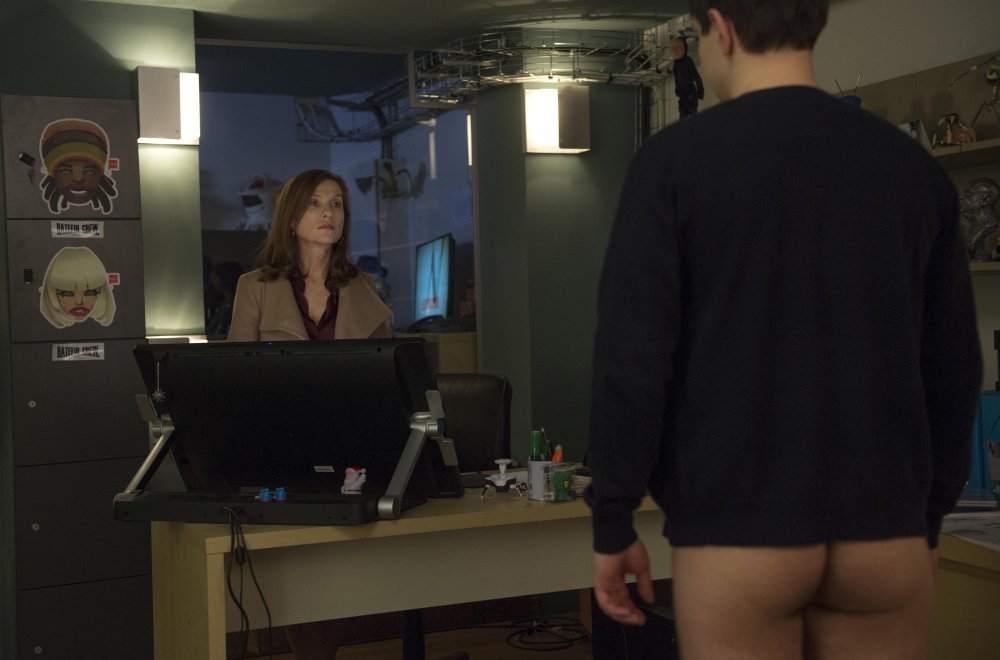
3. Elle
Paul Verhoeven, France-Germany ► Trailer
A wealthy video games executive (Isabelle Huppert) follows an unconventional script while attempting to parse her rape.
Trust Verhoeven to venture where most wouldn’t dare: a psychological rape-revenge fantasy thriller with jump-out-of-your-skin attack moments orchestated to a pounding score, and laced with comedy throughout. What should be problematic is here more complicated and intelligent than it first appears: rape is never a joke and Isabelle Huppert’s Michèle LeBlanc never a victim.
— Nick James, reporting from Cannes
Read our review Elle: far deeper (and more disquieting) than a rape-revenge thriller
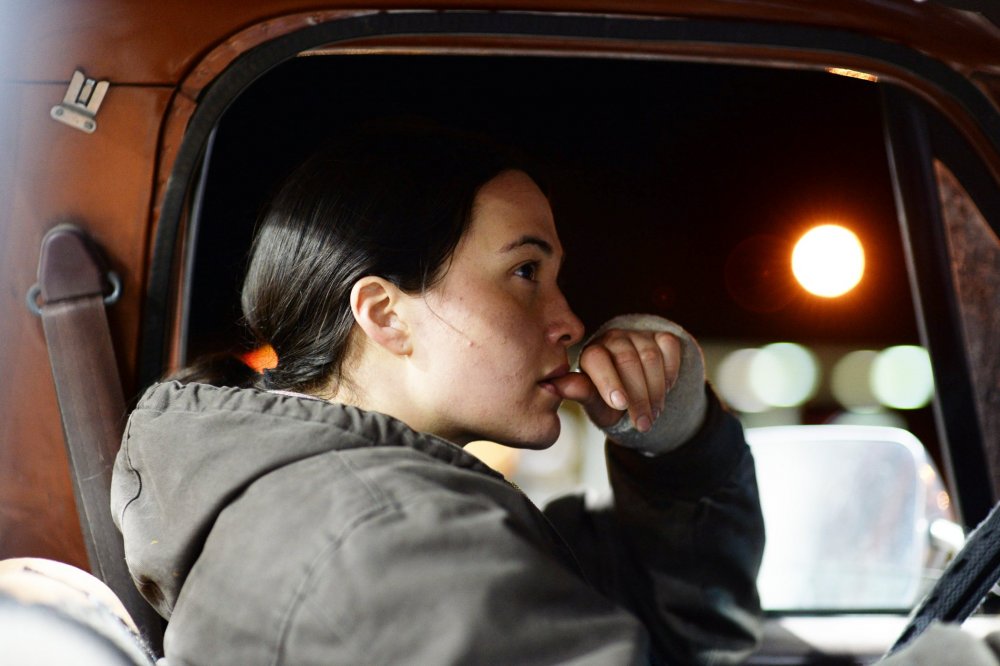
4. Certain Women
Kelly Reichardt, USA ► Trailer
Starry, but understated, ensemble drama from the director of Meek’s Cutoff. Four women (played by Kristen Stewart, Michelle Williams, Laura Dern and Lily Gladstone) navigate the male-dominated environs of Livingston, Montana.
These stories are loosely connected, but it is the parallels between them, rather than the intersections, that underscore the isolation of these women, the exhaustion that has become second nature, their stoicism. One senses these are women whose shoes hurt them… Coming out of the cinema, I found myself looking at the women around me and wondering what their stories were. Certain Women is a work of art produced by a director in full control of her material.
Read our review Certain Women, Kelly Reichardt’s minimalist Montana triptych
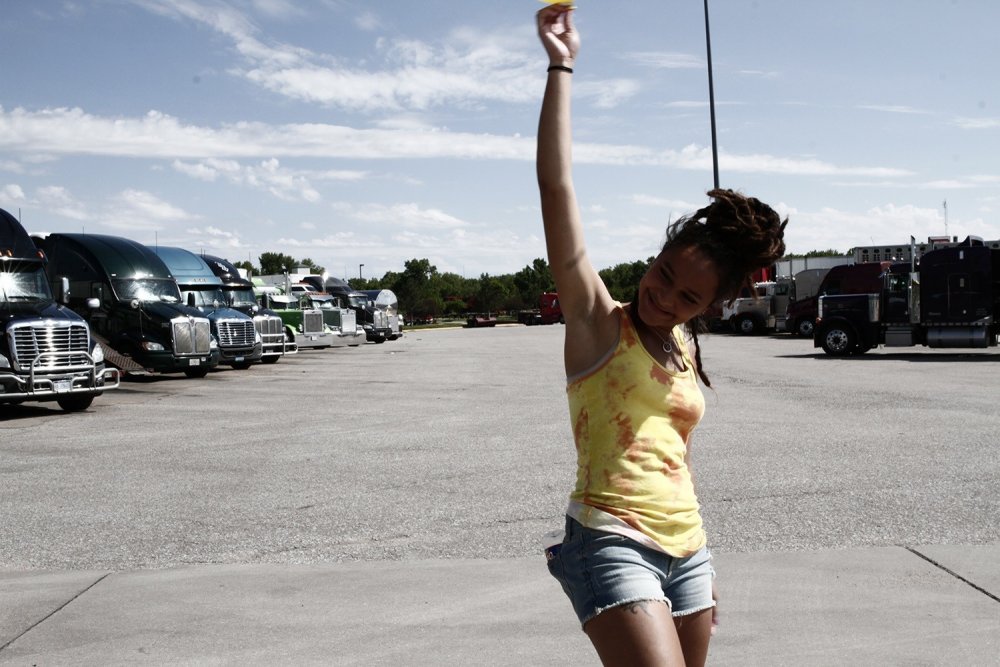
5. American Honey
Andrea Arnold, USA-UK ► Trailer
A team of trap-loving teens hit the road to sell magazine subscriptions across an America still reeling from the housing crash.
American Honey promises a clear narrative path from the moment it drops in a cutaway to a pair of ruby slippers and Star leaps out of her tree-swing, resolved to leave her home behind and hit the road. With dreadlocks for pigtails and a rucksack instead of a pinafore, Star is a new Dorothy, with the sales team her broken friends seeking completion.
— Pamela Hutchinson
Read our American Honey review
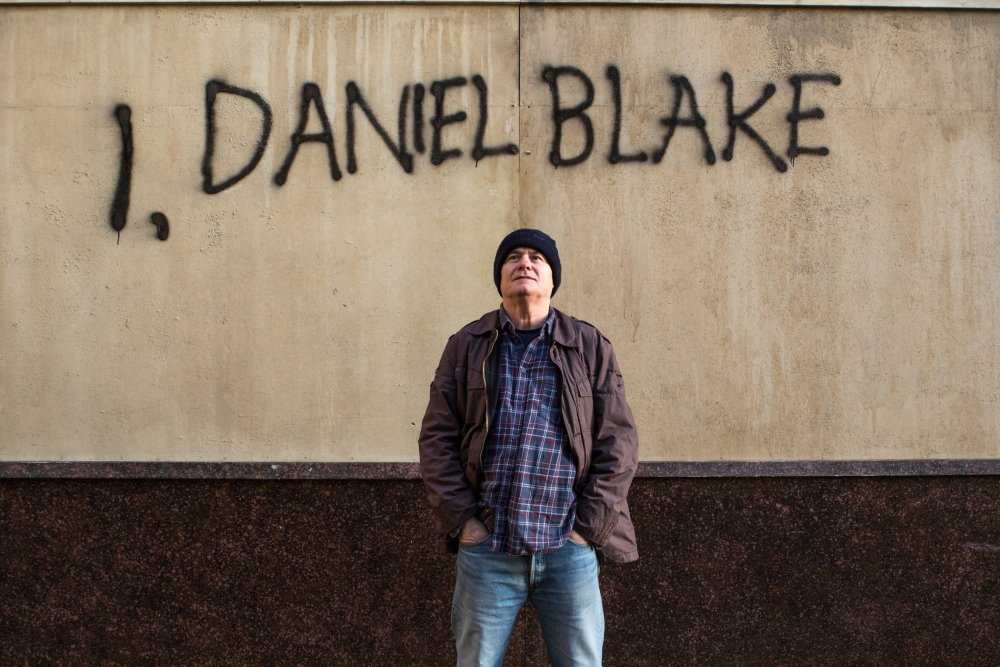
6. I, Daniel Blake
Ken Loach, United Kingdom-France-Belgium ► Trailer
An excoriating attack on Britain’s welfare system. Unemployed carpenter Daniel Blake struggles to sign up for benefits after suffering a heart attack.
A portal into real-life misery caused by systemic cruelty. Anyone who has seen Loach’s work will find nothing radically new in this tale of people on the poverty line in Newcastle, except that he refrains from underlining his points. Katie (Hayley Squires) is a young single mum with two kids to feed, forcibly moved from the south; Daniel Blake is an elderly carpenter, recovering from a heart attack and expected to look for work he can’t do. What blindsides you here is grief for what has been allowed to happen to Britain’s welfare state, our nasty, failure-encouraging computer-automated benefits system.
— Nick James, reporting from Cannes
Read our I, Daniel Blake review
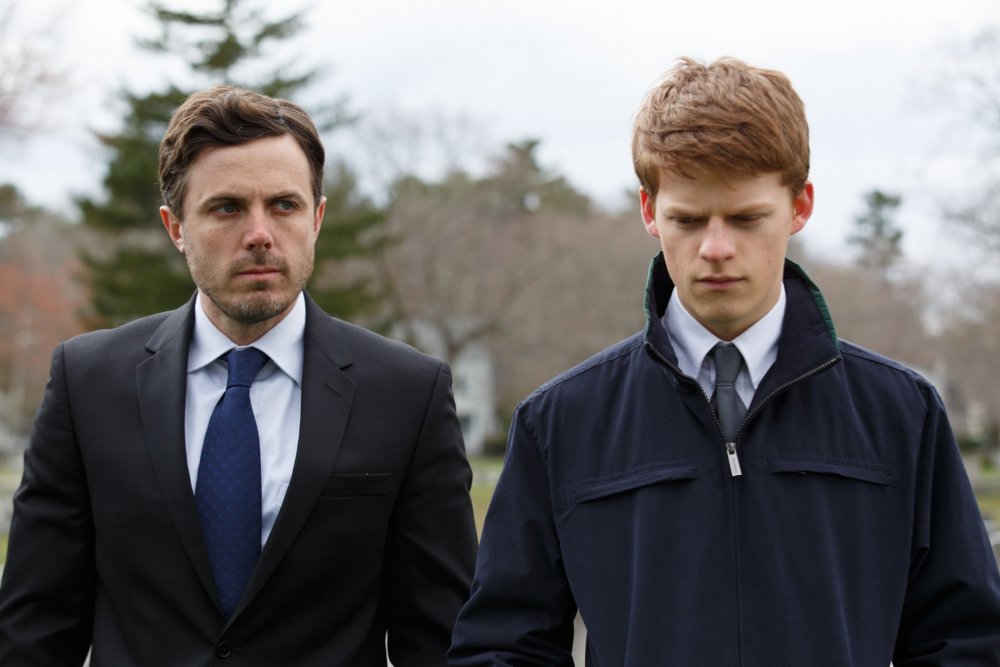
7. Manchester by the Sea
Kenneth Lonergan, USA ► Trailer
A depressed handyman is forced to face the tragedy in his past after his brother dies and leaves him the sole guardian of his nephew.
Manchester by the Sea is as flat and grey as Boston – the palette of grief is unchangingly colourless. Yet no matter how it looks from the outside, Lonergan takes care to show the many shades of emotion that bereavement encompasses… The way Affleck, Hedges and Williams inhabit his characters in all of their complicated, uncomfortable sadness is the film’s strength, making the time spent with them an exercise in human grace – and as pleasurable a viewing experience as a film about death could hope to be.
— Simran Hans
Read the full first-look Manchester by the Sea review
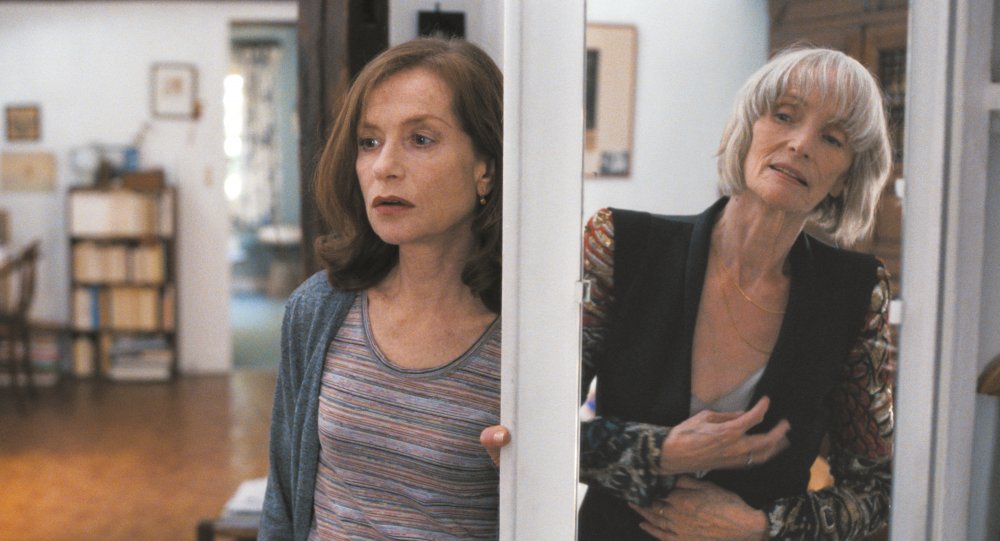
8. Things to Come (L’Avenir)
Mia Hansen-Løve, France-Germany ► Trailer
A philosophy professor is forced to question her theories after her husband’s decision to leave her for a younger woman throws her into a late-life crisis.
Wry, humane and thoughtful, the film treats its destabilising cluster of crises with extraordinary restraint; it retains a welcome briskness that mimics Huppert’s impatient stride. One of its most enjoyable aspects is its ability to show Nathalie’s unnerving freedom in all its ups and downs rather than as a hackneyed journey of self-discovery… Able to slide from irritable to vulnerable within a sentence, Huppert is a sheer delight, utillising her often prickly screen persona to fine effect.
— Kate Stables
Read our Things to Come review
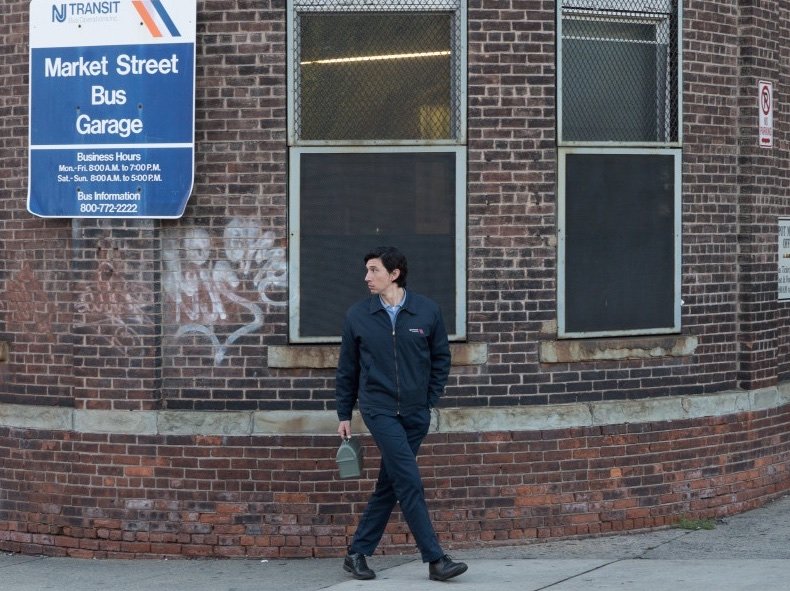
9. Paterson
Jim Jarmusch, USA/Germany/France ► Trailer
Gentle drama about a thoughtful bus driver who makes connections between the goings-on in his eponymous hometown via his William Carlos Williams-inspired poetry.
Jarmusch’s taste for ordinary vibrant things – such as a perfect box of matches – is here the launchpad for a droll and lovely diary film that captures a week in the life of our couple. It’s an exquisitely modest, heartfelt film with a quietly moving way with gags – pure Jarmusch, yet reminiscent too of Aki Kaurismäki’s tributes to working stiffs. If there’s more than a hint of manic pixie dream girl about Laura, it’s offset by her growling English bulldog Marvin, to whom Paterson is just as much married.
— Nick James, reporting from Cannes
Read our review Paterson, Jim Jarmusch’s retro idyll
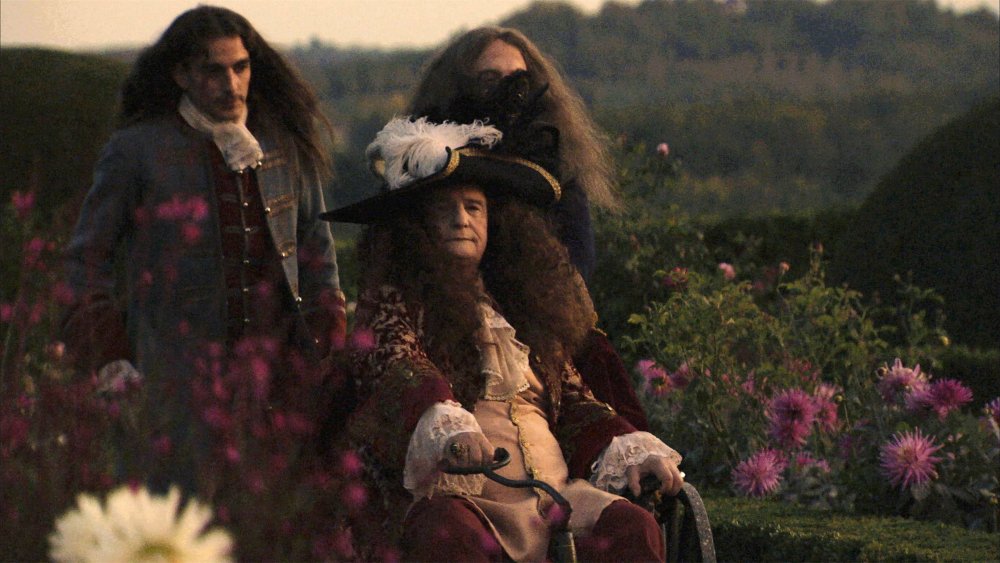
10. The Death of Louis XIV
Albert Serra, France-Portugal-Spain ► Trailer
Two weeks by the deathbed of the king of France, who – after a lifetime of rule under self-proclaimed divine right – is forced to face his mortality.
Serra’s film doesn’t mock or make heavy weather of the notorious layers upon layers of ritual and protocol that distinguished the royal court at Versailles. But throughout we are sharply aware of the stark dichotomy between the corporeal presence of the king – a dying, rotting body which will be dissected and dismantled by royal surgeons at the end of the film – and the idealised nature of the ‘royal body’ as pure symbol… For his latest ‘sacred monster’ study, Serra has made a film in a somewhat classic mode – ‘classic’ in the sense of contained, stately, solemn – and a film that is extremely beautiful and even moving, in a rigorously detached way.
— Jonathan Romney
Read the full The Death of Louis XIV review

=11. Personal Shopper
Olivier Assayas, France ► Trailer
A harried personal assistant balances the demands of her celebrity employer with those of her recently deceased brother.
Kristen Stewart is an enigmatic, warily frayed-yet-unafraid presence, almost as if she’d be happy to step over to the ‘other side’ at any moment. She is unquestionably the actress of the moment, magnetically watchable no matter what she does, even bobbing about Parisian traffic at night helmeted on a scooter dangling garment bags.
— Nick James
Read the full first-look Personal Shopper review
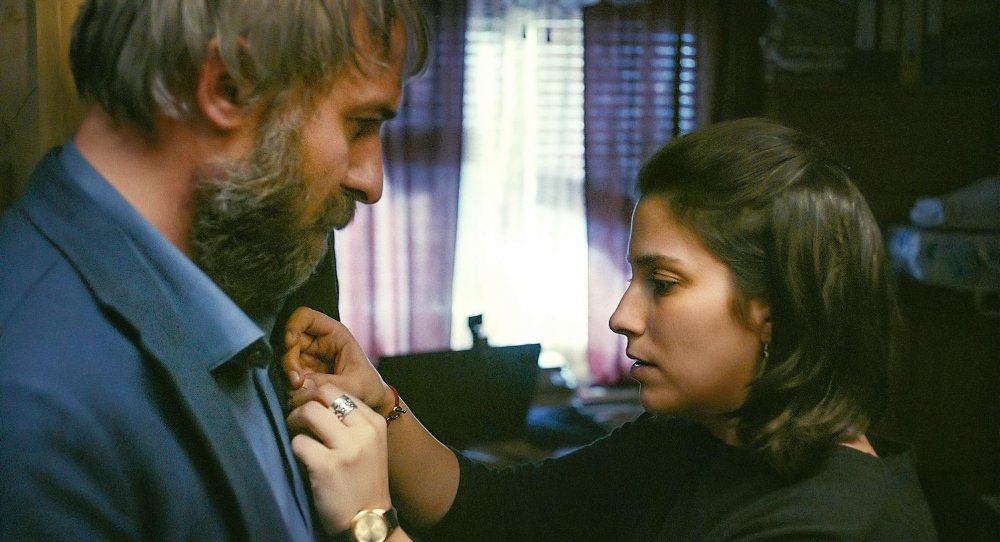
=11. Sieranevada
Cristi Puiu, Romania-France 12 votes
Lary, a successful neurologist, returns to the his mother’s crowded flat to spend the day commemorating his father with his rowdy, outspoken family.
► Trailer
A mordant farce about a family memorial meal that never gets to the eating, it’s a masterpiece of choreography in tight spaces, following the ebb and flow of tension, argument and revelation among the members of a large family group. In terms of its Short Cuts-style management of multiple story threads, Sieranevada out-Altmans Altman – largely without leaving its predominant set.
— Nick James, reporting from Cannes
Read our first-look Sieranevada review
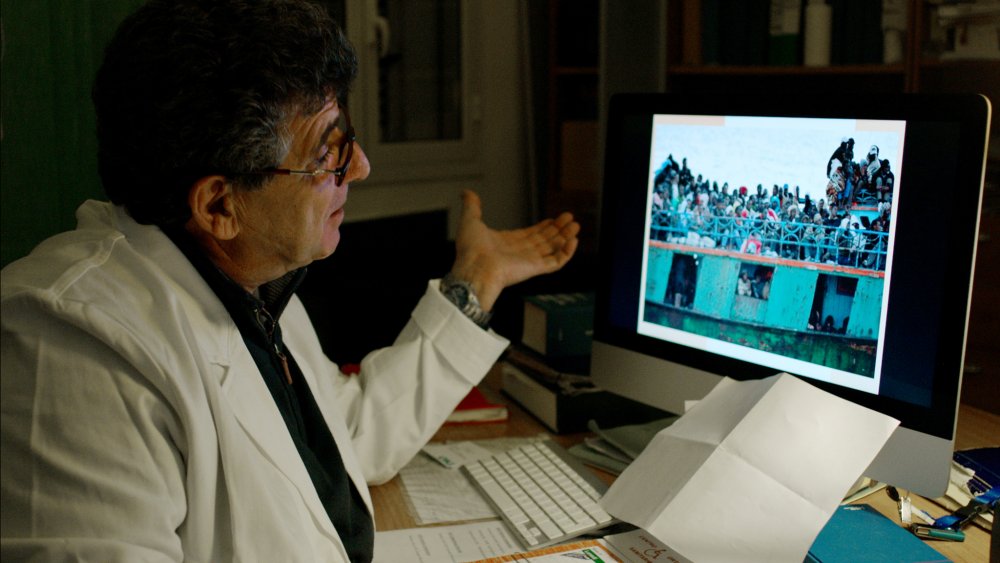
=13. Fire at Sea
Gianfranco Rosi, Italy-France ► Trailer
The migrant crisis on the ground. A documentary shot on the island of Lampedusa as the long-term inhabitants are joined by refugees who’ve made the dangerous journey across the Mediterranean.
Fire at Sea is a genuine triumph for Rosi, its distinctive formal strategy respectful of its subjects and offering a perfect expressive conduit for the director’s characteristic musing on how film might bring points of contact between seemingly distant poles of human experience. It may not grab you by the lapels and preach to you, but its quiet intensity ultimately offers more satisfying rewards, exquisitely enhanced by Rosi’s painterly eye for Lampedusa’s magical vistas of land and sea.
— Trevor Johnston
Read the full Fire at Sea review
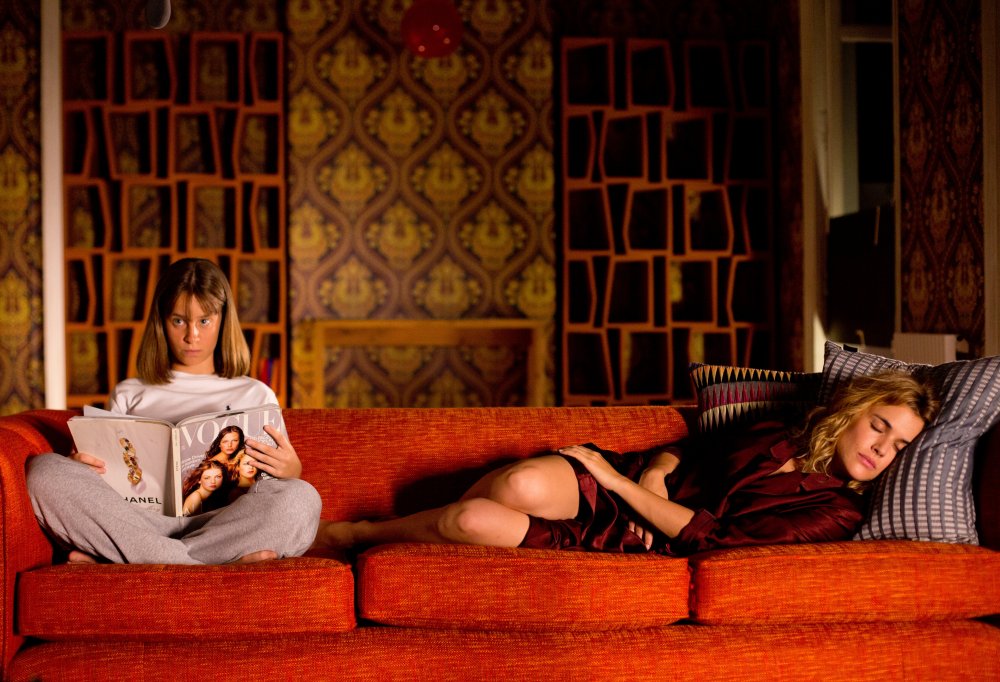
=13. Julieta
Pedro Almodóvar, Spain ► Trailer
Based on three short stories by Alice Munro. Julieta, who lives in Madrid, discovers that her estranged daughter Antía is living in Switzerland with her three children. She thinks back over how the pair became separated.
This tantalisingly open-ended film is Almodóvar’s most sombre to date: it is to his last feature, 2013’s airline farce I’m So Excited!, as Interiors (1978) was to Woody Allen’s Bananas (1971). Julieta is overtly serious in its concern with loss and the mature retrospective contemplation of life’s complexity, its visual energy contrasting strongly with its emotional severity and the almost total absence of either comedy or manifest narrative playfulness.
— Jonathan Romney
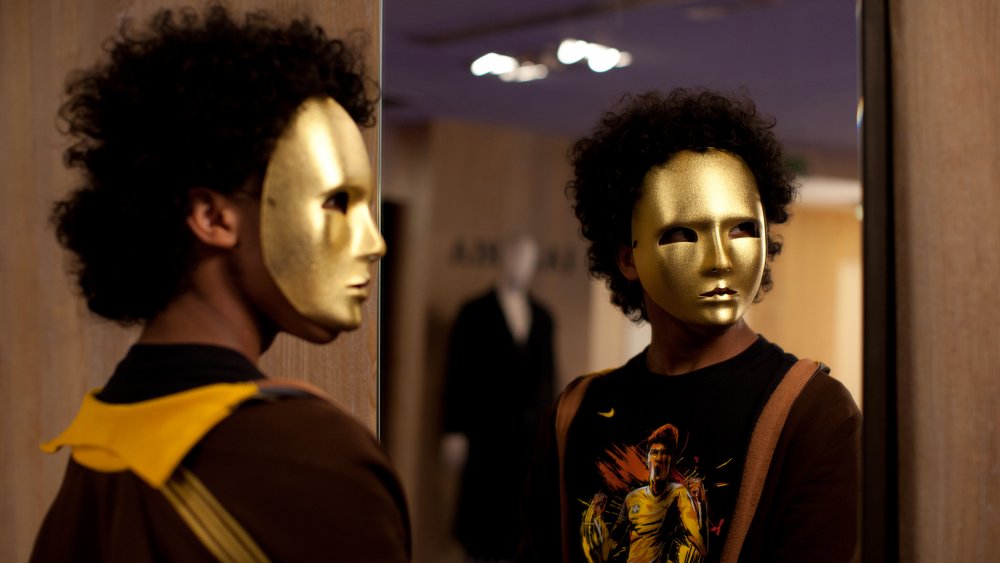
=13. Nocturama
Bertrand Bonello, France-Germany-Belgium ► Trailer
Slick thriller about the planning, enacting and aftermath of a terrorist attack performed by a group of Parisian teenagers.
A blast of cool in a time of heat, Bertrand Bonello’s Nocturama upends so many received notions at once that there shouldn’t be any surprise that it’s dividing critics, festival audiences and everyone else encountering and wrestling with it… As exquisite and symphonic a display of pure genre pleasure as any movie this year, but wound inside an explosive politics and a set of unanswered questions opening a Pandora’s Box of possible outcomes.
— Robert Koehler
Read the full first-look Nocturama review
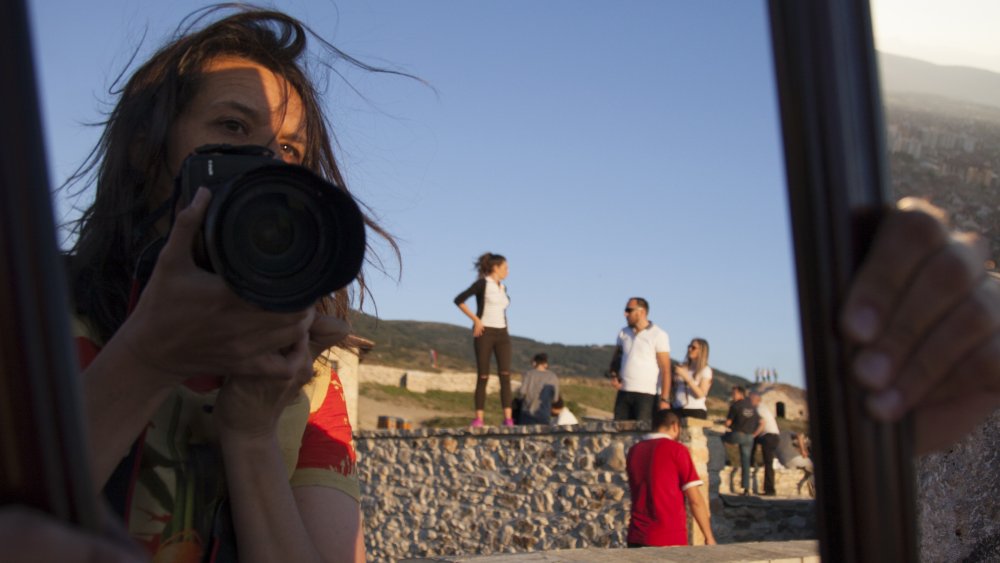
=16. Cameraperson
Kirstsen Johnson, USA ► Trailer
An examination of the ethics of nonfiction filmmaking by way of a first-person diary film, featuring outtakes from 25 years’ worth of documentaries shot by Fahrenheit 9/11 cinematographer Kirsten Johnson.
Kirsten Johnson’s Cameraperson concerns itself with the often idealistic, always knotty human desire to connect through documentary images. She goes through a catalogue of unused material from her long career as a cinematographer to make a kind of self-portrait through scraps, a diary by way of other filmmakers’ unwanted bits… Profound empathy is manufactured by witnessing Johnson trying to find her shots and trying to decide when not to shoot. Scenes of pain and sadness are exhilaratingly edited next to scenes of exuberance.
Read our review Cameraperson, an inside-out documentary of lives across the lens
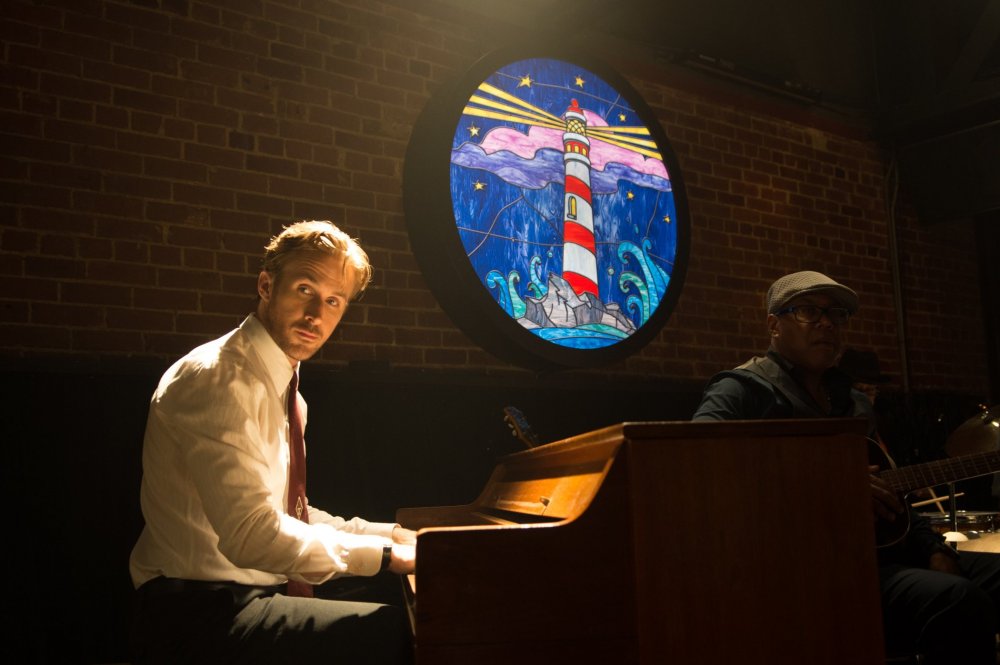
=16. La La Land
Damien Chazelle, USA ► Trailer
Aspiring actress Mia (Emma Stone) and lovelorn jazz musician Sebastian (Ryan Gosling) embark on a romance in a musical set among the bright lights and busy traffic of Los Angeles.
Neither Emma Stone (as aspiring actress Mia) nor Ryan Gosling (jazz pianist Seb) can sing or dance like a pro, but that’s partly the point, and the poignance: these aren’t stars yet, they’re fledgling talents, frustrated dreamers yearning for something bigger and better that may not even exist anymore. But when they pull on their taps and warble through one of Justin Hurwitz’s melancholy, and sometimes quite lovely, melodies, the actors’ charm and chemistry shine through.
Read our review La La Land: a modern musical of stardust and blues
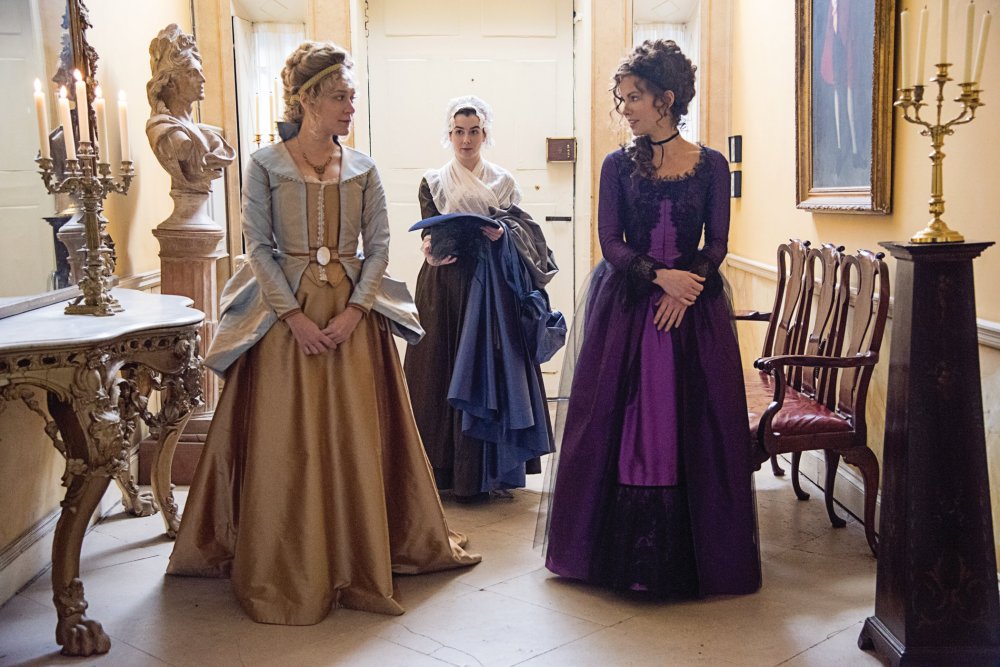
18. Love & Friendship
Whit Stillman, Ireland/France/The Netherlands/USA/UK ► Trailer
An ambitious lady skirts the Regency rulebook as she secures her place in polite society by manipulating her suitors.
Stillman is experienced at putting unpleasant characters to the fore of his films. It takes the full running time of Love & Friendship to discover just how cunning and self-centred its protagonist is; less time to be certain how intelligent… Undoubtedly, Lady Susan is beautiful, but it’s social intelligence that enables her to control others with staggering success. As such, she is very like Jane Austen, if Austen had bent her gift of perception to evildoing.
— Thirza Wakefield
Read the full Love & Friendship review
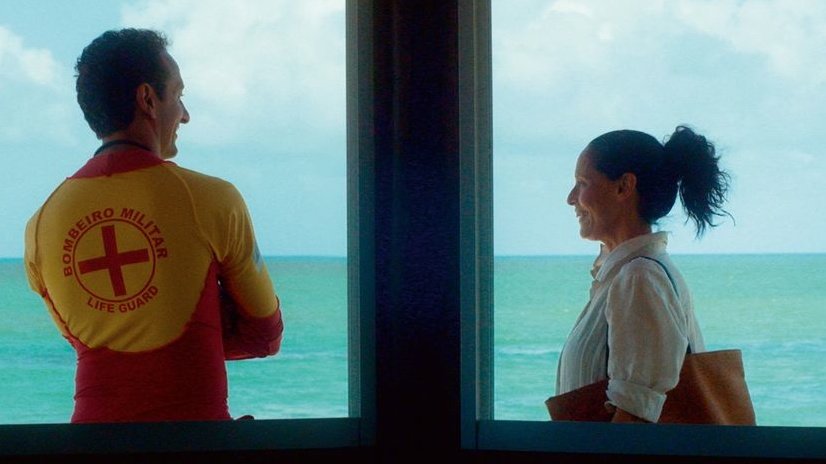
=19. Aquarius
Kleber Mendonça Filho, Brazil-France ► Trailer
Faced with the sale and demolition of her apartment building, the last resident of her block stands firm against a construction company intent on development.
Set (like the director’s debut, Neighbouring Sounds) in Recife, Brazil, Aquarius’ drama is similarly localised, though the repercussions of its economic and civic particulars are placed on one family and, in particular, one woman whose elegant but determined demeanour suggests a past with no shortage of trials and tribulations… Clara (Sonia Braga) appears in nearly every scene, framed in an array of loving closeups and rich, widescreen compositions; on more than one occasion the narrative pauses simply to observe as she sings and sways elegantly to the exotic sounds emanating from her hi-fi.
Read our review Aquarius puts Sonia Braga in the belly of elite Brazil
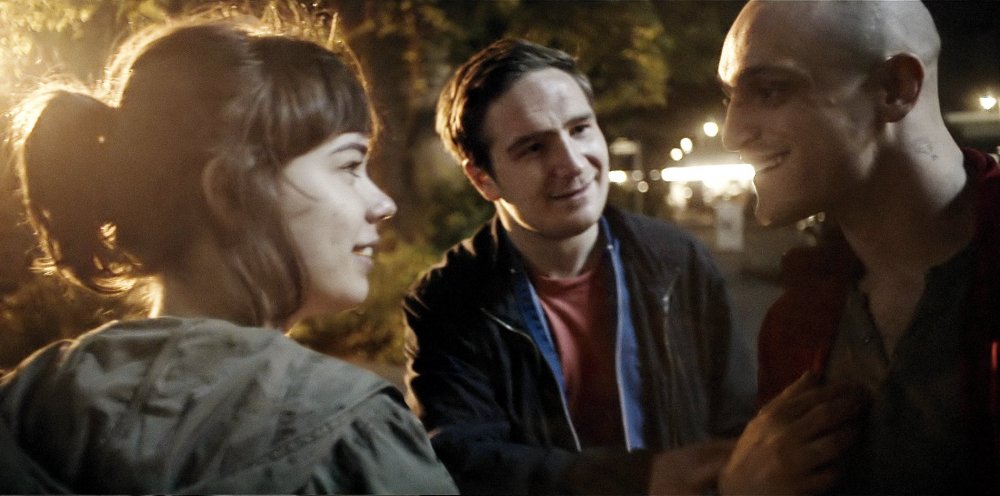
=19. Victoria
Sebastian Schipper, Germany ► Trailer
A heist thriller shot over two hours in a single shot as the titular character moves from Berlin nightclub, to a robbery, to a street chase, to the reckoning.
Because of the sense of ineluctable propulsion created by Grøvlen’s complex camerawork, which ducks and weaves through the shadows of a long, drunken night, the film makes you want to follow where it leads, even when the plot disregards the most basic requirements of plausibility… Schipper and his cast have managed to turn a gimmick into a surprisingly subtle portrait of a millennial generation overwhelmed by its own unstoppable momentum.
— Lisa Mullen
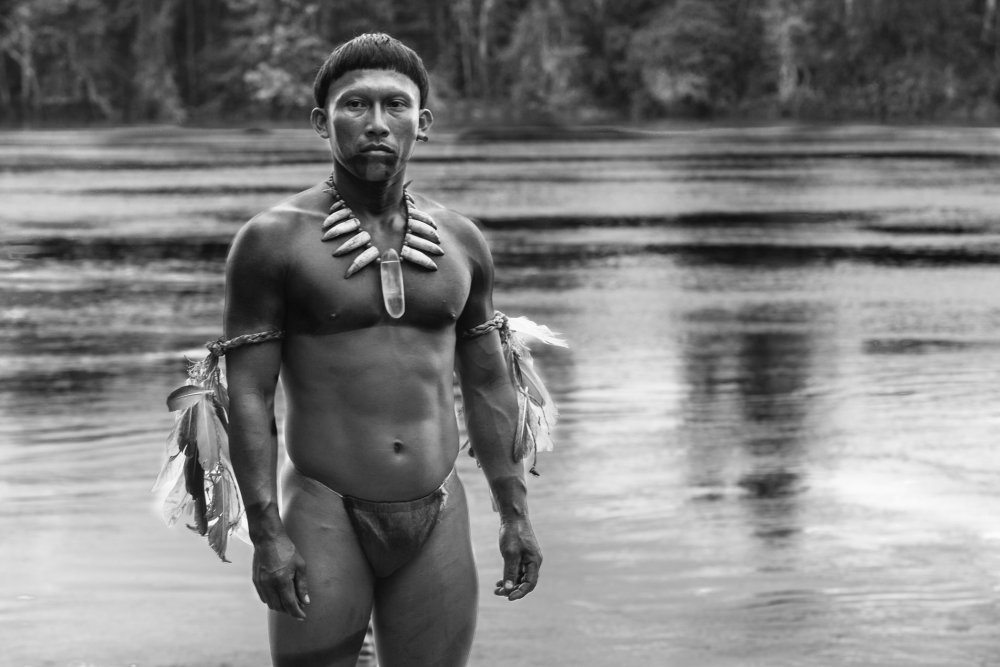
=21. Embrace of the Serpent
Ciro Guerra, Argentina-Colombia-Netherlands-Venezuela ► Trailer
A tribal shaman introduces two westerners to his vanishing way of life in a drama about the damaging effects of colonialism.
A near-faultless amalgam of anthropology, character-driven drama and adventure that is visually resplendent, emotive, at times surprisingly witty and deeply mysterious. It’s also a roar of protest against colonialism, told from the perspective of an indigenous protagonist – not cinema’s first such character but one of its most memorable.
— Demetrios Matheou
Read the full Embrace of the Serpent review
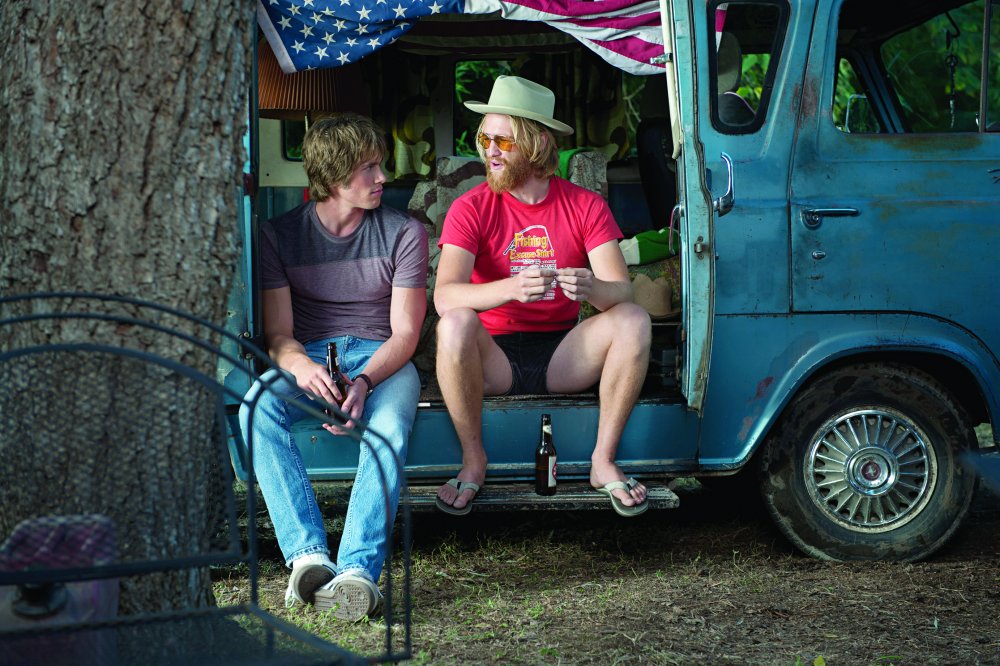
=21. Everybody Wants Some!!
Richard Linklater, USA ► Trailer
Sunny jock comedy-drama in which the teammates on a college baseball team unite for the first day of the school. The “spiritual successor” to Dazed and Confused, according to director Richard Linklater.
As a comedy, it’s frequently hilarious, from the wisecracking dude banter that smothers almost every scene to set pieces such as an eccentric player’s freak-out over a drinks order, which turns into an elongated discotheque brawl… Overlapping conversation, ready laughs and impressively naturalistic performances from a cast free of A-listers give Everybody Wants Some!! the easy charm of Linklater’s best work.
— Pamela Hutchinson
Read the full Everybody Wants Some!! review
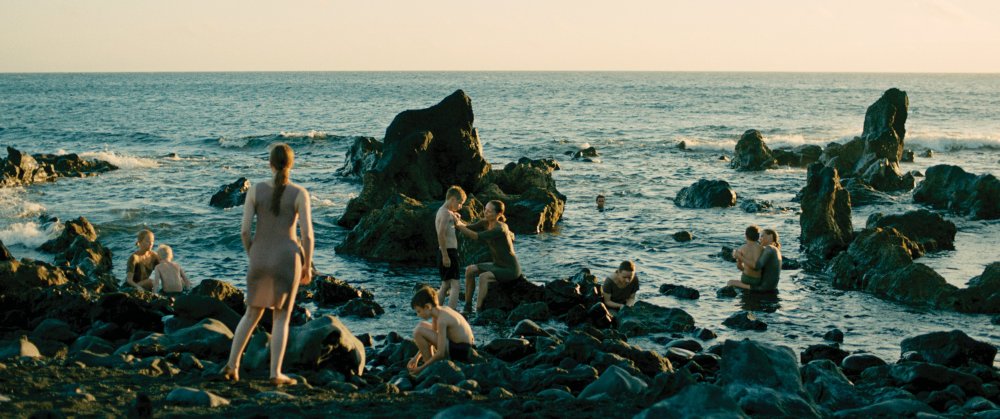
=21. Evolution
Lucile Hadzihalilovic, France/Spain/Belgium 2015 ► Trailer
Supernatural rites of passage thriller set in a seaside town populated by adolescent boys and their older, female ‘carers’.
The world here – the dark volcanic sand, a tight little village of white houses – is as strangely but as satisfyingly organised as the dank tunnels and lush forest of Innocence. For Hadzihalilovic, the sense of control is essential to the creation of a complete, self-enclosed world, and to a visual aesthetic with its own stilled, enigmatic quality, like the de Chirico paintings she admires.
— Richard Combs
Read the full Evolution review
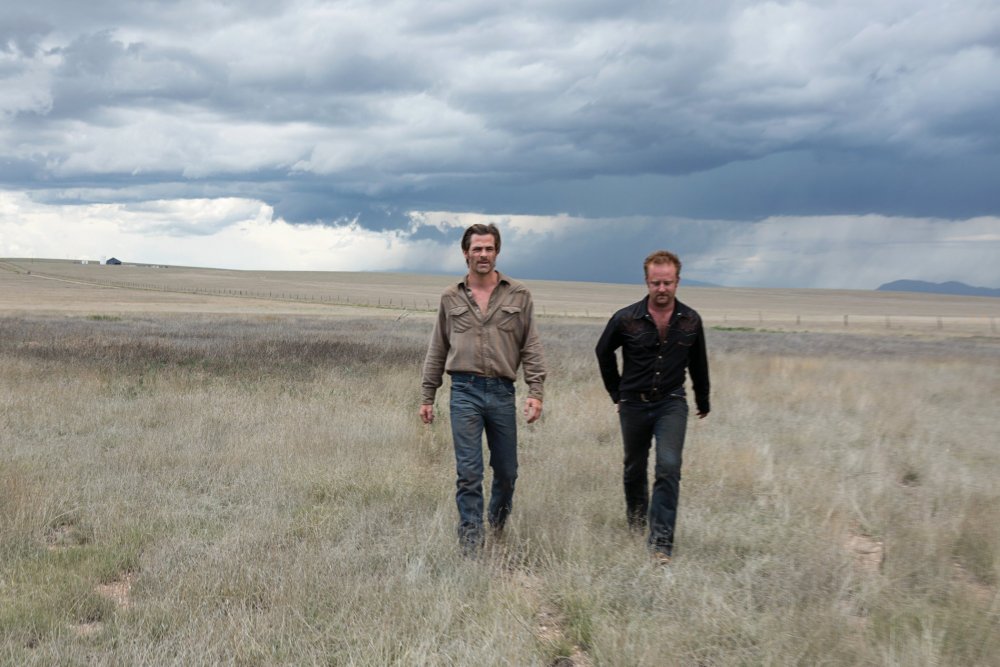
=21. Hell or High Water
David Mackenzie, USA ► Trailer
Straight-shooting modern western in which brothers Toby (Chris Pine) and Tanner (Ben Foster) are pursued by a veteran Texas lawman (Jeff Bridges) after robbing banks to save their family home from foreclosure.
Pine lets us know that his sense of criminal purpose comes from a simmering anger and resentment at having played his life by the rules only to find himself with nothing to show for it. Elsewhere, as the camera travels through small towns peppered with vacant retail units, and Nick Cave and Warren Ellis’s score delivers its own knowing take on honky-tonk melancholy, we certainly sense a bitterness in the air from communities feeling left behind.
— Trevor Johnston
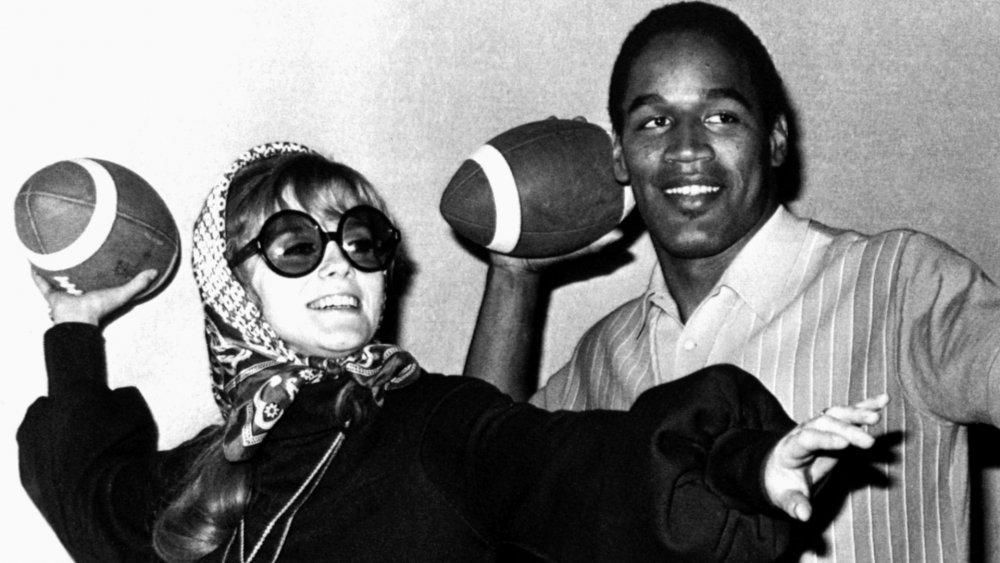
=21. O.J.: Made in America
Ezra Edelman, USA
ESPN’s ambitious five-part study of 1995’s ‘trial of the century’ ran to nearly eight hours, covering the courtroom drama, the fallen hero in the dock and the fallout from the shock verdict. In the New York Times, A.O. Scott called it “a tightly packed, almost indecently entertaining piece of pop realism, a Dreiser novel infused with the spirit of Tom Wolfe,” saying it had “the grandeur and authority of the best long-form nonfiction”.
There are multiple rich thematic seams here. The personal arc suggests not just Fitzgerald, but Welles: there is Othello, of course, the outsider hero with an overweening desire not just to belong but to possess; the hubris of Arkadin, that need to obliterate anything that could sully his carefully cultivated myth… Hank Quinlan makes an intervention in the guise of investigating officer Mark Fuhrman, a racist cop accused of planting an incriminating glove at OJ’s home. Then there’s the Kane-like memorabilia, Simpson’s trophies and souvenirs, which prove his ultimate undoing.
— Tom Charity
☞ Read the full O.J.: Made in America review
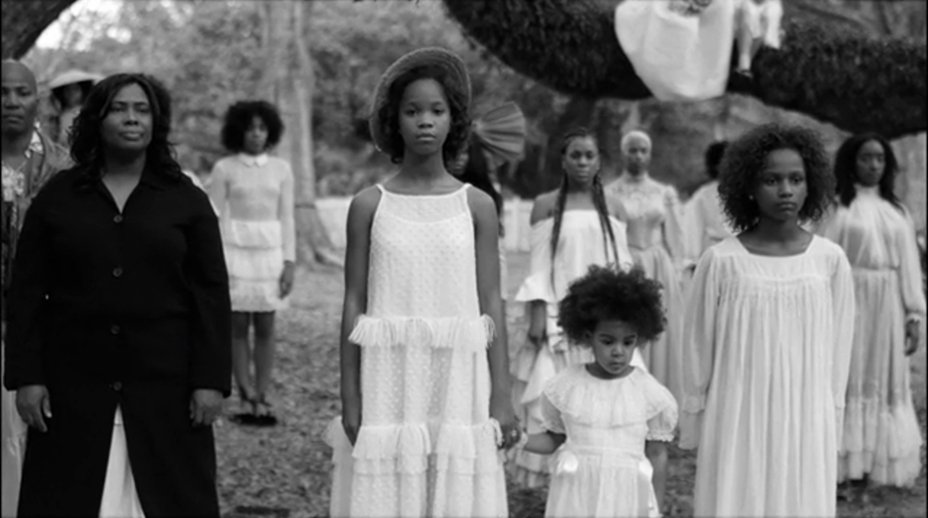
=26. Lemonade
Beyoncé Knowles Carter and Kahlil Joseph with Jonas Åkerlund, Melina Matsoukas, Dikayl Rimmasch, Mark Romanek and Tod Tourso, USA ► Trailer
A visual album soundtracked by the music of Beyoncé and featuring the pop star alongside other notables, including Serena Williams, Afromysterics artist Laolu Senbanjo and the mothers of Trayvon Martin, Eric Garner and Michael Brown.
No one could have predicted that Beyoncé would be responsible for one of the most discussed cinematic events of the year… What begins as a tale of marital infidelity and reconciliation reveals itself to be a pointedly political, aestheticised expression of black resistance.
— Kelli Weston
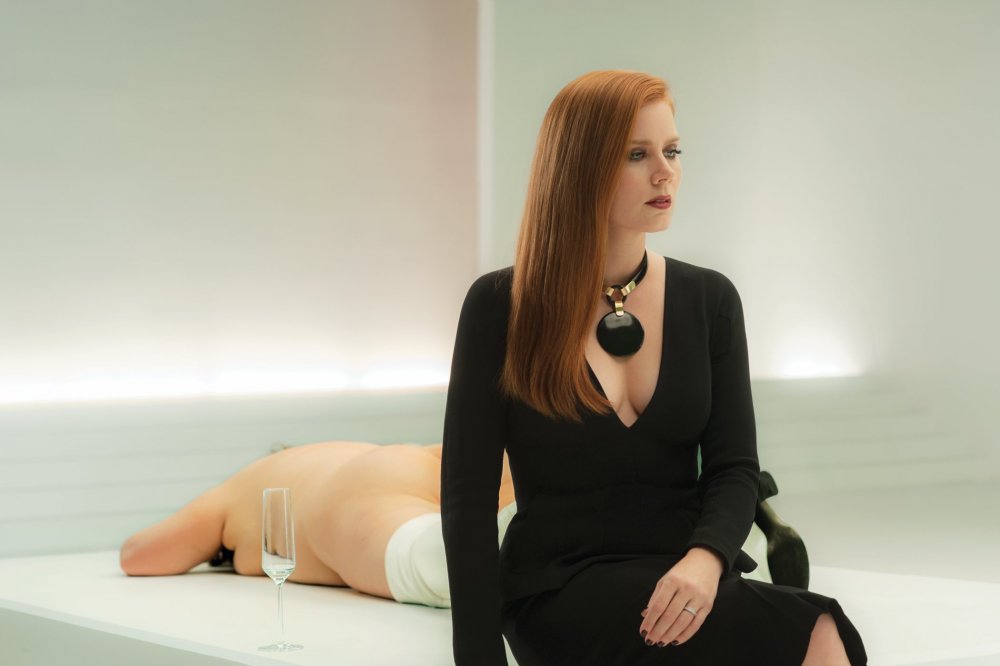
=26. Nocturnal Animals
Tom Ford, USA ► Trailer
Tom Ford’s second film, based on the book Tony and Susan by Austin Wright, follows a Los Angeles gallery owner who is shaken by the arrival of a novel by her ex that imagines a couple who come to a violent end.
Nocturnal Animals is a film about lapses – lapses in time, memory and relationships. It’s also a film that lapses in quality and consistency of tone… In many ways, it is book-like; Ford is very effective at capturing the way reading triggers memories, the way it requires the reader to fill in a story’s gaps with their own imagination and the way getting lost in a book creates a kind of vortex in time. Yet coming in at a baggy two hours, I often wished I could skim several chapters at a time and cut to the juicy stuff.
Read our Nocturnal Animals review
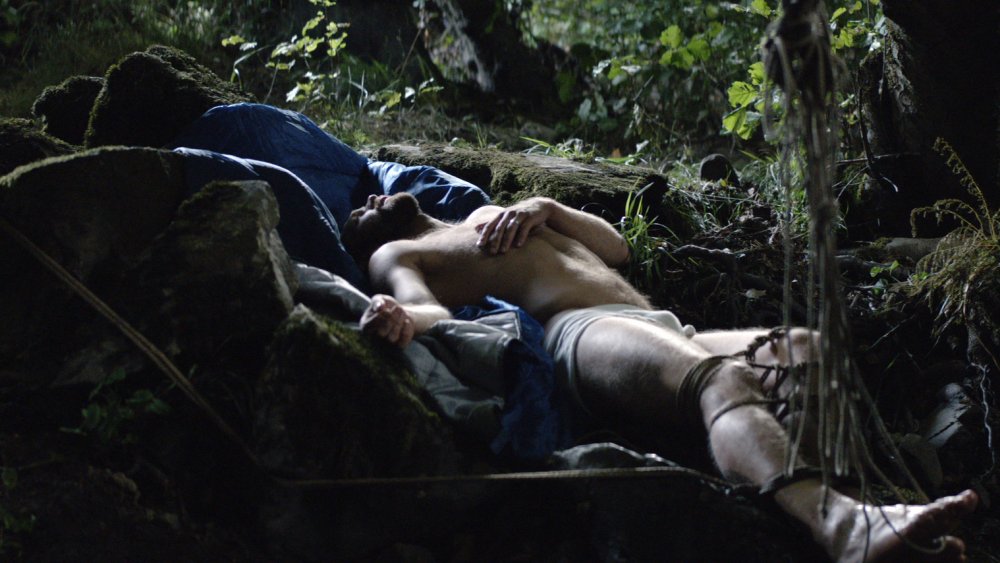
=26. The Ornithologist
(O Ornitólogo) João Pedro Rodrigues, Portugal-France-Brazil ► Trailer
Erotic thriller in which a handsome ornithologist’s quest to find a rare black stork is interrupted by dangerous and – occasionally – lewd events.
An extraordinarily rich, unpredictable fever-dream, a pilgrimage that sits somewhere alongside Buñuel’s The Milky Way, Jarman’s Sebastiane and Powell and Pressburger’s A Canterbury Tale with its fusion of religious iconography and sexual and spiritual anguish, coupled with a palpable reverence for the mysterious cross-currents of the natural world.
— Tom Charity, reporting from the Toronto International Film Festival in our November 2016 issue
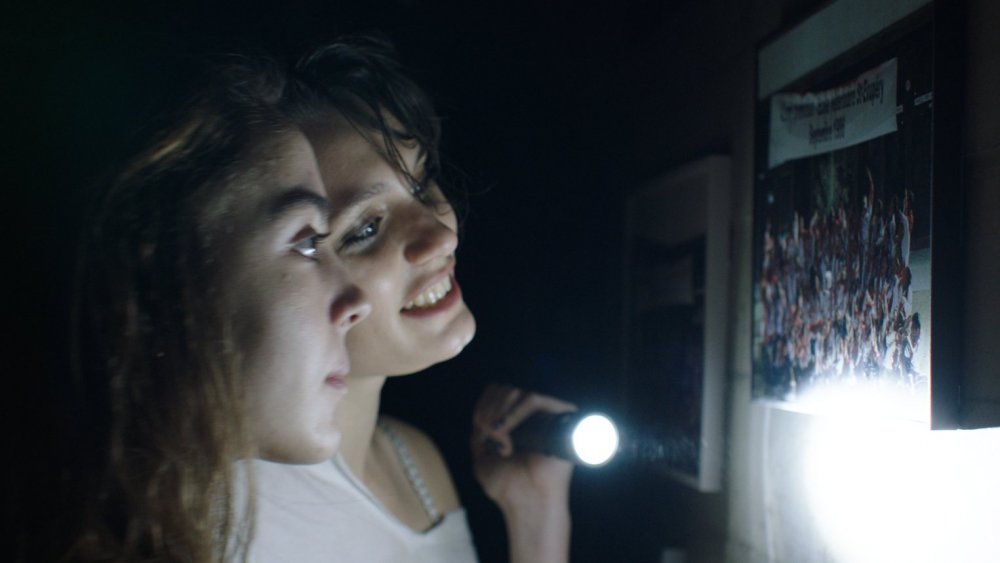
=26. Raw
(Grave) Julia Ducournau, France-Belgium ► Trailer
A vegetarian college student develops a taste for human flesh after a bizarre initiation ritual in which she’s forced to eat a rabbit kidney.
French writer-director Julia Ducournau’s extraordinary first feature is a heady, blood-soaked examination of femininity, sexual awakening and the sisterly bond… The script is at once fiercely original and replete with a rich awareness of the genre, smoothly referencing films from Carrie to Ginger Snaps and The Craft. Marillier is excellent, playing Justine with a subtlety and assurance that grounds the film, even at its most extreme.
— Chloe Roddick
Read the full first-look Raw review
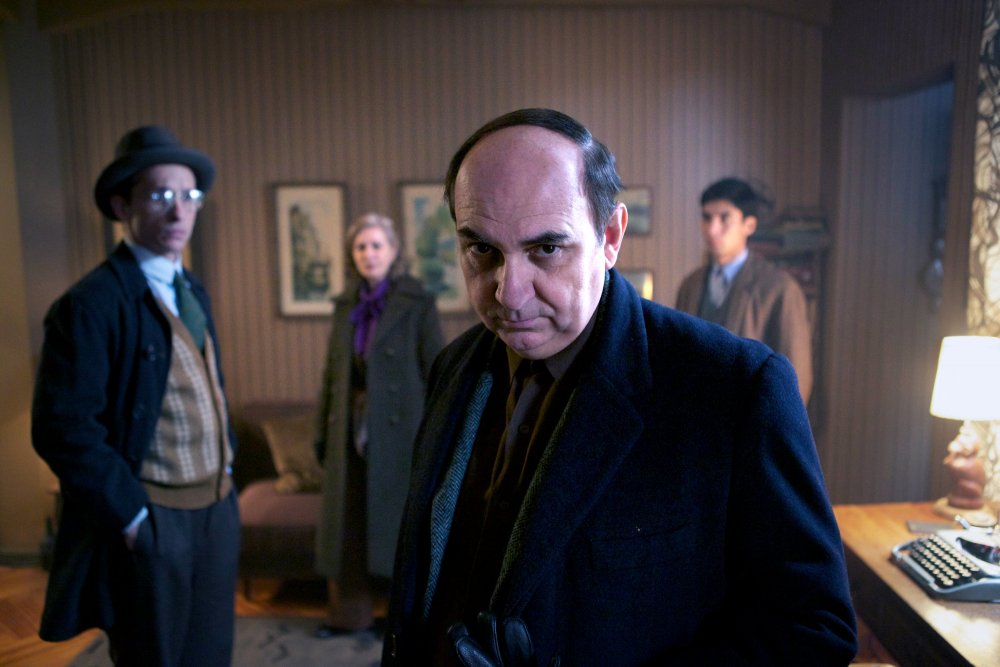
=26. Neruda
Pablo Larraín, France/Spain/Argentina/Chile ► Trailer
The life story of the Chilean poet Pablo Neruda, told with a twist as the real-life senator is pursued by a fictional detective eager to arrest him after his criticisms of Chile’s post-Second World War government.
Pablo Larraín’s utterly brilliant Neruda needs to be watched more than once. Like a juggler, Larraín keeps in the air all the paradoxes and contradictions of the legend, the folktale, the myth and the man to (de)construct, in his own words, a Nerudian antibiopic of the Chilean diplomat, poet and Nobel prizewinner as working-class symbol, but also as a narcissist and a brothel habitué who is yet utterly in love with his wife.
Individual contributions
Sight & Sound editors’ votes and comments
Nick James
Editor
Toni Erdmann Maren Ade
Elle Paul Verhoeven
Fire at Sea Gianfranco Rosi
Embrace of the Serpent Ciro Guerra
Paterson Jim Jarmusch
A rotten year, but not for cinema. That films as imaginative as that spare portrait of an awkward young black girl, The Fits, or Barry Jenkins’s moody depiction of a black gay outsider, Moonlight, or Natalie Portman’s searing portrayal of JFK’s first lady, Jackie, don’t make my five indicates how strong it was. Also of note was Manchester by the Sea, a blue-collar high tragedy with wrenching performances that weigh the balance so carefully between the push and pull of guilt and responsibility that the film is emotionally exhausting.
Fire at Sea found a fresh way of viewing the immigrants risking their lives in lethal boats on the Mediterranean. Paterson was just the most soulful, quiet local neighbourhood pleasure at Cannes and Toni Erdmann the most outlandishly unforeseen comedy of manners. Elle is a watershed film, the most involving psychological thriller in years, and Embrace of the Serpent felt like a rethinking of so much adventure cinema from the last half century. Cinema did the seductive part of its function well, taking us out of ourselves, and how we needed that.
Kieron Corless
Deputy Editor
A great year for cinema, and I still haven’t seen Albert Serra’s new film. In no particular order:
Cemetery of Splendour Apichatpong Weerasethakul
A trip into the Thai subconscious and a disfigured, decaying body politic, couched in an atmosphere of tranquil unrest. It comes off like some mesmerising, serenely disruptive sci-fi.
Mimosas Oliver Laxe
The breakout film from the Galician scene is a shamanistic ride into the Moroccan mountains and desert, and more than fulfils the promise of You Are All Captains. It’s beautiful, strange, unclassifiable; Laxe will surely be one of the great directors of the next few decades.
Son of Joseph (Le Fils de Joseph) Eugène Green
A meditation on fatherhood and family filtered through the Bible and Baroque civilisation, with satirical detours into up-its-own Parisian literary culture. Another brilliant one-off from the sublime Eugène Green.
Elle Paul Verhoeven
Isabelle Huppert’s is the performance of the year, and possibly a career best. Improbably, Paul Verhoeven just gets better and better, here channelling the spirit of Fritz Lang into a contemporary allegory on unredeemable male monsters and their overcoming.
Staying Vertical (Rester Vertical) Alain Guiraudie
Wilder and freer than the more classical Stranger by the Lake, the film literally reinvents itself from scene to scene, and yet somehow feels all of a piece. Brilliantly, blackly comic.
Special mention to Slack Bay: a brilliantly achieved creation of a unique universe, melding different types of comedy – black, grotesque, farce, burlesque, comic-book, expressionist – in service of a savage social satire.
James Bell
Features Editor
Paterson Jim Jarmusch
Embrace of the Serpent Ciro Guerra
Elle Paul Verhoeven
Moonlight Barry Jenkins
Love & Friendship Whit Stillman
Nick Bradshaw
Web Editor
Cameraperson Kirsten Johnston
Tempestad Tatiana Huezo
Kings of Nowhere Betzabé García
Depth Two Ognjen Glavonic
Dawson City: Frozen Time Bill Morrison
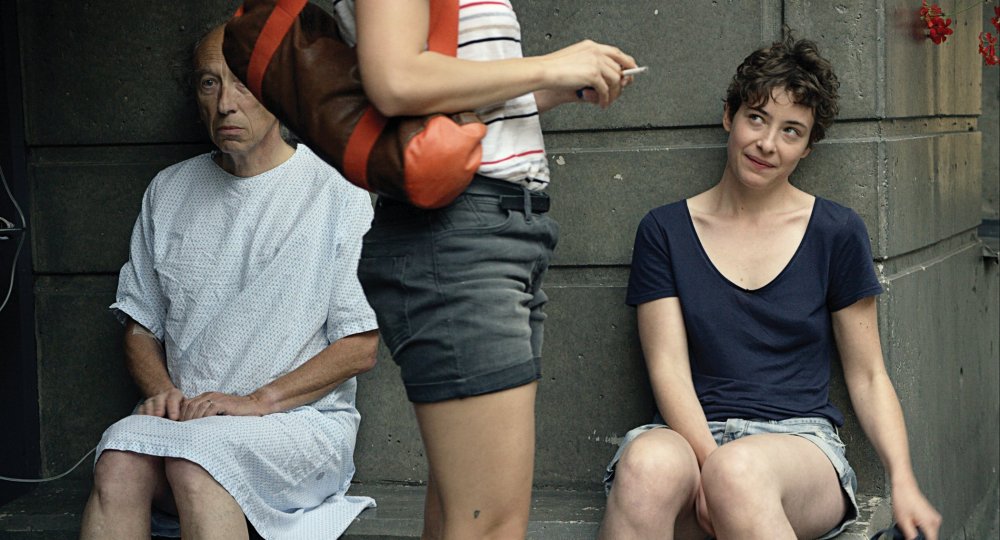
Baden Baden (2016)
Top films from Europe
Toni Erdmann 48 votes
Elle 33 votes
American Honey 20 votes
I, Daniel Blake 17 votes
Things to Come (L’Avenir) 15 votes
The Death of Louis XIV 13 votes
Personal Shopper 12 votes
Sieranevada 12 votes
Fire at Sea (Fuocoammare) 11 votes
Julieta 11 votes
Nocturama 11 votes
Love & Friendship 9 votes
Victoria 8 votes
Evolution 7 votes
The Ornithologist 6 votes
Raw 6 votes
Baden Baden 5 votes
The Dreamed Path 5 votes
The Neon Demon 5 votes
A Quiet Passion 5 votes
HyperNormalisation 4 votes
No Home Movie 4 votes
Son of Saul 4 votes
Isabel Stevens
Production Editor
Toni Erdmann Maren Ade
Baden Baden Rachel Lang
Certain Women Kelly Reichardt
Elle Paul Verhoeven
Moonlight Barry Jenkins
International critics and curators’ votes and comments
Jason Anderson
Critic (Cinema-scope) and programmer (TIFF), Canada
Toni Erdmann Maren Ade
Certain Women Kelly Reichardt
The Witch Robert Eggers
The Happiest Day in the Life of Olli Maki Juho Kuosmanen
Moonlight Barry Jenkins
Geoff Andrew
Programmer-at-large (BFI Southbank), UK
Sieranevada Cristi Puiu
Paterson Jim Jarmusch
A Quiet Passion Terence Davies
Fire at Sea (Fuocoammare) Gianfranco Rosi
Things to Come Mia Hansen-Løve
I found it unusually difficult to choose just five top films, not because 2016 was an especially strong year (it wasn’t!) but because, excepting a few genuinely innovative standout works, it had given us a large number of strong but not quite top-grade films. Finally, after my first three choices (which absolutely had to be in), I reluctantly left out 20 or 30 movies which are probably, in their own way, as strong as my fourth and fifth choices.
Fire at Sea could have been replaced by I, Daniel Blake, The Unknown Girl, Toni Erdmann, Hissein Habré: A Chadian Tragedy or various other films dealing powerfully with the politics of our troubled world. Things to Come could have been replaced by Elle (Huppert is surely the greatest actress of our age).
And I felt especially bad about not being able to include fine new works by Radu Jude, Whit Stillman, Bertrand Tavernier, Asli Ozge and José Luis Guerín, not to mention a second film – Gimme Danger – by Jim Jarmusch. Since an allocation of ten wouldn’t have been enough, five was excruciatingly insufficient.
The highlight of my year was probably the London Film Festival’s Archive Gala screening of Arthur Robison’s The Informer – a meticulous BFI restoration of one of the best British films made at the end of the silent era, with a truly superb live performance of an unusually audacious, subtle, detailed and evocative new score for sextet by virtuoso violist and composer Garth Knox. Both cinematically and musically, it was a marvellous evening.
Sadly, however, the year’s most memorable event was the shocking, perhaps wholly avoidable death of Abbas Kiarostami, for me and many others the greatest artist working in film over the last few decades. What a terrible loss to cinema.
Corrina Antrobus
Programmer (Bechdel Test Fest), UK
Moonlight Barry Jenkins
Mustang Deniz Gamze Ergüven
American Honey Andrea Arnold
Certain Women Kelly Reichardt
The Handmaiden Park Chan-wook
It’s been a bleak year. Political tensions have ruptured the faith of liberals and strengthened toxic extremist views. Never before has the tonic of cinema been so necessary. This list of elongated movies (many nudging the three-hour notch) has a silky thread of exquisite indulgence; interesting to notice that many of my choices are road movies featuring an reckless escape plan. With their far-flung narratives and acute, complex character portraits they provide respite from the social unrest.
Aside from haute escapism, they offer solace to those weary of the straight white male norm. Certain Women in particular deeply understands the labour and expectations of women, and Moonlight softly confronts the pressures on black gay men. All are a feathered lash at the patriarchy, daring us to hope and reminding us to look to art in times of turmoil.
Michael Atkinson
Critic, USA
Cemetery of Splendour Apichatpong Weerasethakul
The Lobster Yorgos Lanthimos
Toni Erdmann Maren Ade
Evolution Lucile Hadzihalilovic
The Academy of Muses José Luis Guerín
As always, the early delivery of this list leaves many candidates unscreened; that, plus filing it the morning after the US entered its initial stages as a fascist nation does not cast a happy glow on the proceedings. Insofar as the context of my choices matter, here are my runners-up, in order: Fireworks Wednesday, Cameraperson, Moonlight, The Witch, High-Rise, Dheepan, Aferim! and Mountains May Depart.
Miriam Bale
Critic, USA
Elle Paul Verhoeven
Personal Shopper Olivier Assayas
The Love Witch Anna Biller
Lemonade Beyoncé Knowles Carter & Kahlil Joseph with Jonas Åkerlund, Melina Matsoukas, Dikayl Rimmasch, Mark Romanek, Tod Tourso
The Dreamed Path Angela Schanelec
Erika Balsom
Senior lecturer in Film Studies, King’s College London, UK
The Death of Louis XIV Albert Serra
The Illinois Parables Deborah Stratman
Toni Erdmann Maren Ade
Elle Paul Verhoeven
General Report II: The New Abduction of Europe Pere Portabella
As always, I feel like I missed so much this year – but at the same time I saw many films I loved. Beyond my top five features, favourite shorts include Laida Lertxundi’s Vivir para Vivir, Guillermo Moncayo’s The Event Horizon, Corin Sworn and Charlotte Prodger’s HDHB, Kathryn Elkin’s Why La Bamba and Kevin Jerome Everson’s Ears, Nose and Throat.
My top moving-image exhibitions include Philippe Parreno at HangarBicocca, The Inoperative Community at Raven Row, Jean-Paul Kelly at Delfina Foundation, Amar Kanwar at Frac des Pays de la Loire and Clemens von Wedemeyer at the Neuer Berliner Kunstverein.
My historical discovery of the year is Jean Matthee’s superlative Neon Queen (1985). Other repertory favourites include the Pere Portabella retrospective at Rotterdam, the restoration of Lizzie Borden’s Born in Flames (1983), the pairing of Song of Ceylon (1934) with Harun Farocki’s 1975 made-for-TV essay Über Song of Ceylon von Basil Wright at the Birkbeck Institute for the Moving Image, the AV Festival’s programme Tracing the Anabasis of the Japanese Red Army and Malcolm Le Grice’s performance of Horror Film (1971) at the BFI.
The live performance of Marcos Bertoni’s Cocô Preto (2003) – part of Federico Windhausen’s excellent El Pueblo theme programme at Oberhausen – is maybe the most fun I’ve ever had in a cinema.
Nikki Baughan
Critic, UK
The Girl with All the Gifts Colm McCarthy
Arrival Denis Villeneuve
Under the Shadow Babak Anvari
The Keeping Room Daniel Barber
American Honey Andrea Arnold
It has been a pleasingly strong year for female-led narratives. It’s no coincidence that my favourite films of 2016 have all featured strong, multi-faceted female protagonists with fascinating stories to tell across multiple genres, from science fiction to horror and drama. Whether these women hold the fate of humanity in their hands or are fighting for individual survival, are coolly competent or deeply flawed, they have all been treated with respect, intelligence and empathy by the filmmakers who created them, and the performers who brought them to life. And that makes for some of the year’s most original, powerful and inspiring cinema.
Anne Billson
Critic, Belgium
The Blackcoat’s Daughter (aka February) Oz Perkins
Hail, Caesar! Ethan Coen & Joel Coen
Hell or High Water David Mackenzie
Love & Friendship Whit Stillman
Our Little Sister Koreeda Hirokazu
Among the films that might have made my cut had we been allowed ten picks: De Palma, The Invitation, Julieta, The Shallows and Train to Busan. I also loved Julia Ducournau’s Raw and Olivier Assayas’s Personal Shopper, but left them out because they haven’t yet gone on wide release.
It was a lousy year for blockbusters, most of which I have already forgotten, but a great one for low(er) budget genre: I enjoyed the hell out of the likes of 10 Cloverfield Lane, The Conjuring 2, Ouija: Origin of Evil, The Purge: Election Year, Lights Out and Don’t Breathe.
Among the other highlights of my cinema-going year was a season of Ozu films at Flagey Cinematek in Brussels: calm, humane and exquisitely crafted – just the thing to offset the horrors of 2016 and remind one of the better, more civilised world that does still exist, even if it’s only on the screen. If anyone needs me, I’ll be drinking Kirin in the Luna Bar.
Daniel Bird
Writer, filmmaker and programmer, UK
Elle Paul Verhoeven
Tony Conrad: Completely in the Present Tyler Hubby
Embrace of the Serpent Ciro Guerra
Psychonauts, the Forgotten Children Rivero Pedro, Vãzquez Alberto
Personal Shopper Olivier Assayas
Anton Bitel
Critic, UK
Remainder Omer Fast
Embers Claire Carré
Aloys Tobias Nölle
A Dark Song Liam Gavin
The Ghoul Gareth Tunley
If the five films selected here as my favourites for this year have a common theme, it is the obsessive yet vain effort to take back something irrecoverable (faded memories, a misspent life, the dead) – and three of them (Remainder, Aloys, The Ghoul) focus on alienated white adult males lost to a deluded sense of fantasy and nostalgia. In other words, these are all titles well-suited – however coincidentally – to the year that has brought us Brexit and Trump. After all, the air is currently buzzing with the backward-looking ideology that prefers to reconstruct an ill-remembered, idealised past than to face the realities of the present – and patriarchy, feeling vulnerable to progress, has proven all too eager to claw back its former ‘glory’ days. At least Embers holds out the hope for maintaining humanity during an (amnesi-)apocalypse, while A Dark Song locates, in its protagonist’s most despairing and vindictive drives, her better feelings.
Ela Bittencourt
Film critic and curator, Brazil, Poland and USA
All the Cities of the North Dane Komljen
A great surprise in Locarno: indefinable. Tony Pipolo, writing for Artforum, likened it to the work of Aleksandr Sokurov, yet there is a welcome coolness in Komljen’s gaze, in his avid interest in materials and forms, which recalls some of the recent video art, particularly video focused on architecture.
In this sense, Komljen’s work brings him closer to Alia Farid – a Kuwaiti visual artist whose video, a commentary on brutalist architecture of the 1950s and 60s, I saw at this year’s Bienal in São Paulo – than to most narrative filmmakers. (Thematically, Komljen’s earlier short, All Still Orbit, directed with James Lattimer, shared some affinity with the video work of Brazilian artist Ana Vaz, particularly her short 16mm film, A Idade da Pedra; both studied at Le Fresnoy Studio National des Arts Contemporains, France.) Yet Komljen’s gift for storytelling, while unconventional, also shows his appreciation of literature.
Dawson City: Frozen Time Bill Morrison
For its passionate excavation of archival footage and hypnotic delivery.
Aquarius Kleber Mendonça Filho
For its social portent and the breadth of its characters, an intricate, laser-like vision of where Brazil is today, in its latest, neoconservative reincarnation.
La Noche Edgardo Castro
For its restless and exuberant sex-driven energy, which seemed to scare off some young viewers at FicValdivia yet held some of us in a perpetual trance.
Bleak Street Arturo Ripstein
Roger Koza describes Bleak Street better than I can: “Arturo Ripstein’s films are an anomaly in our current film culture. Who could be interested in characters whose fate is never on their side? …Ripstein, whose dark worlds shun humour, always dispenses a certain amount of kindness to his characters. He respects and likes them, and as he films them, he is with them till their very last breath.”
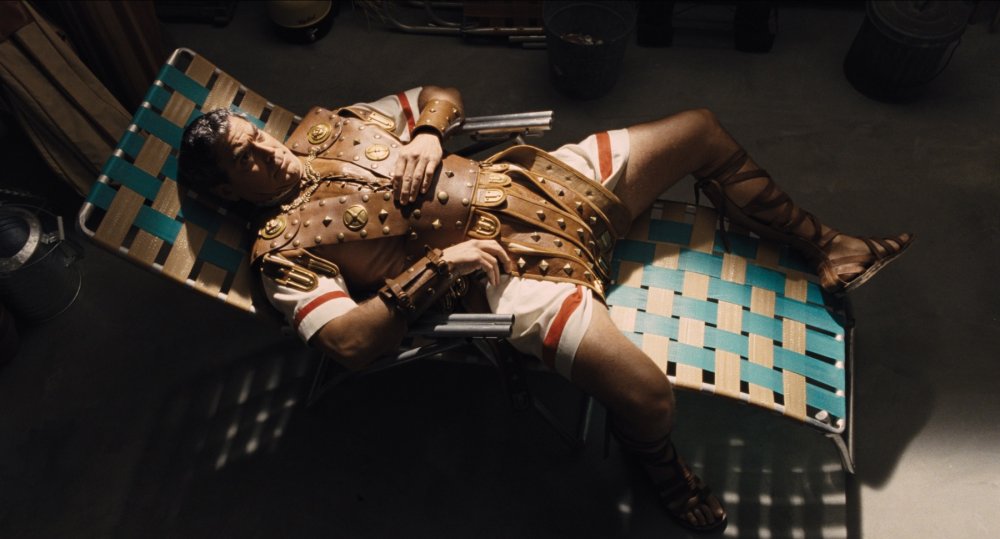
Top films from North America
Moonlight 34 votes
Certain Women 25 votes
American Honey 20 votes
Manchester by the Sea 16 votes
Paterson 14 votes
Cameraperson 10 votes
La La Land 10 votes
Everybody Wants Some!! 7 votes
Hell or High Water 7 votes
O.J.: Made in America 7 votes
Lemonade 6 votes
Nocturnal Animals 6 votes
Dawson City: Frozen Time 5 votes
Hail, Caesar! 5 votes
The Illinois Parables 5 votes
Knight of Cups 5 votes
The Love Witch 5 votes
The Neon Demon 5 votes
Anomalisa 4 votes
Doctor Strange 4 votes
The Fits 4 votes
The Witch 4 votes
Chris Boeckmann
Programmer (True/False Film Fest), USA
Being 17 André Téchiné
Lemonade Beyoncé Knowles Carter & Kahlil Joseph with Jonas Åkerlund, Melina Matsoukas, Dikayl Rimmasch, Mark Romanek, Tod Tourso
Fire at Sea (Fuocoammare) Gianfranco Rosi
Nocturama Bertrand Bonello
Starless Dreams Mehrdad Oskouei
Lucy Bolton
Senior lecturer in Film Studies, UK
The Shallows Jaume Collet-Serra
Losing Ground Kathleen Collins
Queen of Katwe Mira Nair
Certain Women Kelly Reichardt
Ingrid Bergman In Her Own Words Stig Bjorkman
The highlights of this year for me were being introduced to the uniquely magnificent Losing Ground as part of the ‘Woman with a Movie Camera’ season at the BFI (now available on DVD); seeing Ingrid Bergman’s home movies and learning so much more about this strong, talented woman; and the first top-notch shark movie for many a year.
Peter Bradshaw
Critic (the Guardian), UK
Nocturnal Animals Tom Ford
The Childhood of a Leader Brady Corbet
I, Daniel Blake Ken Loach
Divines Houda Benyamina
American Honey Andrea Arnold
Catherine Bray
Critic/producer, UK
Elle Paul Verhoeven
Raw Julia Ducournau
Toni Erdmann Maren Ade
Tenemos la carne Emiliano Rocha Minter
The Greasy Strangler Jim Hosking
It’s been a strong year for the outré. All of my five choices here at least flirt with grotesquery (in the case of The Greasy Strangler, it’s the film’s main mode of expression) and contain provocations ranging from the playful (Toni Erdmann and Elle) to the jaw-dropping (Tenemos la Carne and Elle), to the visceral (Raw and Elle). My personal taste leans in the direction of horror and comedy, so it’s been incredibly stimulating to see elements of those genres take such fully realised and adventurous flight in these five films, which go beyond the rote tropes that can inhibit the potential for creative storytelling.
Nicole Brenez
Professor/curator, France
Blanche Marc Hurtado
Bangkok Joyride Ing K
Welcome to Madagascar Franssou Prenant
I Will Pay for Your Story Lech Kowalski
Hinterlands Scott Barley
Sophie Brown
Programmer/film journalist, UK
No Home Movie Chantal Akerman
For its raw power. Traces of Chantal Akerman’s earlier films surface – News From Home, Les Rendez-vous d’Anna and Jeanne Dielman – as intimate moments unfold with her mother in this bold and vulnerable piece of work.
Certain Women Kelly Reichardt
For its beautiful 16mm cinematography and Kelly Reichardt’s storytelling force. Among the narratives of loneliness, ambition and frustration, Reichardt articulates a familiar experience: the suspicion, bafflement or plain disregard met by women who don’t conform to typical notions of femininity, as held by certain men.
Moonlight Barry Jenkins
For its rich layers and hypnotic sensuousness. Based on a deeply personal play by Tarell Alvin McCraney, Barry Jenkins’ film is a brilliant exploration of the relationships that have a profound impact on protagonist Chiron’s destiny.
Raw Julia Ducournau
For the riotous way it examines the dynamics of sisterhood and pressures of female identity, with violent helpings of humour and horror. Trouble Every Day meets Ginger Snaps, this is an energetic tale of cannibalistic desire.
Heart of a Dog Laurie Anderson
Because Laurie Anderson’s voice transforms words. This intimate journey through Anderson’s poetic, empathetic consciousness is both a critical reflection on modern existence, and an ode to her loves.
Other excellent films of the year: Mustang by Deniz Gamze Ergüven; Fire at Sea by Gianfranco Rosi; Behemoth by Zhao Liang.
Michelle Carey
Artistic director, Melbourne International Film Festival, Australia
Toni Erdmann Maren Ade
Lemonade Beyoncé Knowles Carter & Kahlil Joseph with Jonas Åkerlund, Melina Matsoukas, Dikayl Rimmasch, Mark Romanek, Tod Tourso
Nocturama Bertrand Bonello
Moonlight Barry Jenkins
Paterson Jim Jarmusch
Tom Charity
Programmer, VIFF Vancity Theatre; freelance writer, Canada
Cameraperson Kirsten Johnson
Toni Erdmann Maren Ade
Staying Vertical (Rester Vertical) Alain Guiraudie
The Ornithologist João Pedro Rodrigues
Hell or High Water David Mackenzie
I grew up on and still love classical Hollywood cinema, hence the inclusion of Hell or High Water, a totemic conflation of western and crime movie tropes that also managed to be more on the pulse than most of the pundits and politicians in this catastrophic US election year.
But I now appreciate movies that mess with your expectations. I know people have trouble with The Ornithologist and Staying Vertical, but for me these were the two most exciting – because unpredictable – films I saw this year. Both were were genuine cinematic adventures that threw out the rule book and seemed almost to have been carved out of nothing, nothing but the camera, the landscape, the people in the middle and the possibilities that arise. (And I have to mention that transition in Staying Vertical, the ellipsis of nine months, which really deserves to be taught in film school.)
Toni Erdmann is another film that takes genre and drags it, kicking and screaming, somewhere else. Its ‘flaws’, or rather, foibles, are what gives it some kick. Seeing that in a packed 1,600-seat house at the Vancouver International Film Festival was a highlight of the year, no question.
And finally Cameraperson… Kirsten Johnson discovers a profound, personal and political nonfiction cinema in discarded and unwanted images, odds and ends, widows and orphans. If I had to shoot one movie into space to sum up this crazy, chaotic, hurting world in 2016 it would be this one.
Ian Christie
Professor of film and media history at Birkbeck College, UK
I, Daniel Blake Ken Loach
Julieta Pedro Almodóvar
The Assassin Hsiao-Hsien Hou
Doctor Strange Scott Derrickson
The Revenant Alejandro González Iñárritu
Far away from what gets released in UK cinemas, there’s a growing sector of films that are only ever seen online, often described as ‘video essays’. I’ve been particularly impressed by the series of witty and very personal essays on subjects ranging from the actress Debra Paget to Sergei Eisenstein by one-time New York independent Mark Rappaport, now based in Paris and more productive than ever. Also by the video essays of Adrian Martin and Cristina Álvarez López, and by Catherine Grant’s own work in this genre and her continuing advocacy of it as a new field of creative criticism.
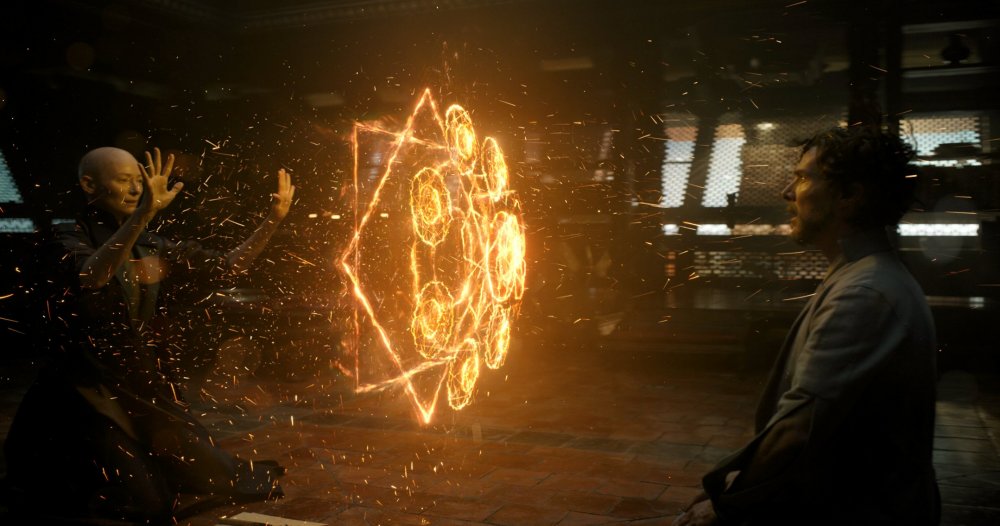
Doctor Strange (2016)
Read our Doctor Strange review
Michel Ciment
Editor, Positif, France
Graduation (Baccalauréat) Cristian Mungiu
Manchester by the Sea Kenneth Lonergan
The Revenant Alejandro González Iñárritu
Toni Erdmann Maren Ade
A Woman’s Life Stéphane Brizé
Ashley Clark
Critic/programmer, UK/US
Moonlight Barry Jenkins
An Ecstatic Experience Ja’Tovia Gary
The Airport John Akomfrah
Everybody Wants Some!! Richard Linklater
Peggy and Fred in Hell Leslie Thornton
Amid an endlessly jarring year – from the deaths of Bowie and Prince to the surreal, life-changing happenings of Brexit and Trumptopia – I’ve been cheered by encouraging developments in black aesthetic and storytelling modes, from the weird and truly brilliant TV show Atlanta to Barry Jenkins’s Moonlight. Not to mention a long-overdue resurgence for the superb, criminally overlooked filmmakers of the LA Rebellion: restorations of Julie Dash’s Daughters of the Dust (a clear, acknowledged influence on Beyoncé’s visual extravaganzas), Haile Gerima’s searing Ashes and Embers, and Charles Burnett’s To Sleep with Anger, a woozy fable with a vicious kick.
Roger Clarke
Writer and critic, UK
The Witch Robert Eggers
Evolution Lucile Hadzihalilovic
Life After Life Zhang Hanyi
The Neon Demon Nicolas Winding Refn
The Wailing Hong-jin Na
Honourable mentions to Childhood of a Leader, The Bacchus Lady, The Death of Louis XIV and The Untamed.
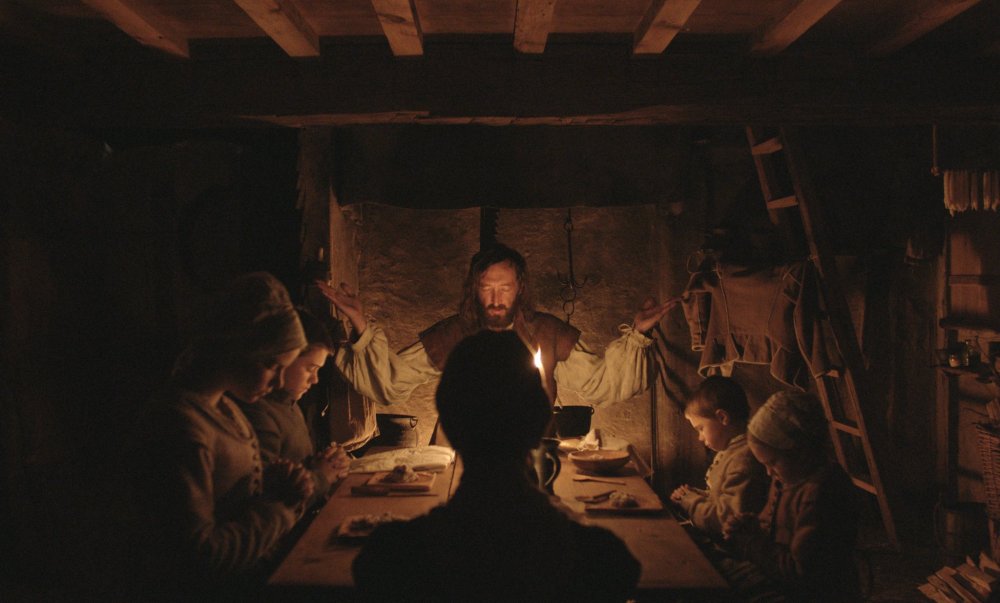
Read Voices of the undead: Robert Eggers on The Witch
Anna Coatman
Writer and editor, UK
I, Daniel Blake Ken Loach
Lemonade Beyoncé Knowles Carter & Kahlil Joseph with Jonas Åkerlund, Melina Matsoukas, Dikayl Rimmasch, Mark Romanek, Tod Tourso
The Hard Stop George Amponsah
Vertigo Sea John Akomfrah
American Honey Andrea Arnold
Robbie Collin
Chief film critic, the Telegraph, UK
American Honey Andrea Arnold
Moonlight Barry Jenkins
Your Name Makoto Shinkai
The Bad Batch Ana Lily Amirpour
Lemonade Beyoncé Knowles Carter & Kahlil Joseph with Jonas Åkerlund, Melina Matsoukas, Dikayl Rimmasch, Mark Romanek, Tod Tourso
This was a good year for films, but a bad one for reviewing them – at least for beat critics like me, who spent seven months of it wading through the longest and stupidest summer season in recent memory. (Thank God for Spielberg and Disney.)
It’s hard to be too mad, though, because on any reasonable list of 2016’s calamities, you’d have to read a while before reaching Suicide Squad and Independence Day: Resurgence. I’m grateful to the five films above – plus many others, not least of all Toni Erdmann, Julieta, The Neon Demon, Paterson and Arrival – for temporarily removing me from yet somehow also helping to make sense of the past 12 months in ways the news media and my own head have been seemingly incapable of doing. Whether cinema’s dying or not, we – I – need it more than ever.
Oh: and Grimsby was tremendous, you philistines.
Philip Concannon
Freelance film critic, UK
Certain Women Kelly Reichardt
Dawson City: Frozen Time Bill Morrison
Elle Paul Verhoeven
Our Little Sister (Umimachi Diary) Hirokazu Koreeda
Sieranevada Cristi Puiu
“If a single movie were enough to silence reports of the death of cinema, it would be this one,” claims one of the review quotes in the US trailer for Toni Erdmann, but it was hardly the only film capable of refuting that ridiculous claim this year. Mainstream American filmmaking might be in dire straits, but the range and diversity of work beyond the multiplex was incredibly exciting to discover. Aside from the films I’ve selected, consider Aquarius, Divines, The Fits, Further Beyond, Moonlight, A Quiet Passion, Staying Vertical, Things to Come and Voyage of Time, to name just a few. These films are very much alive.
Mark Cousins
Filmmaker/critic, UK
Cemetery of Splendour Apichatpong Weerasethakul
Room Lenny Abrahamson
Certain Women Kelly Reichardt
Deadpool Tim Miller
Mustang Deniz Gamze Ergüven
It was a great year for films about escape. Room, These Women, Mustang and Cemetery of Splendour are all beautiful elopements. The patron saint of imprisonment in cinema, Robert Bresson, would hopefully have loved them. Deadpool made me laugh more than any film this year. It was as insolent and saucy as Lauren Bacall in The Big Sleep.
Making films in 2016 helped quench my ongoing thirst for cinema. I was so busy working that I missed Arabian Nights, Son of Saul and Fire at Sea, but I’ll see them some Tuesday afternoon in 2019.
As usual, older films were Obi-Wan Kenobi guides again this year. The reissue of Godard’s Le Mépris taught us how to do a daring soundtrack. I saw, again, Agnès Varda’s Vagabond, which is like I, Daniel Blake directed by Jean-Luc Godard. Surely it’s one of the best films ever made? And I rewatched Orson Welles’s Chimes at Midnight, beautifully restored and audible like never before. It’s like seeing a new Tintoretto painting, and as dynamic and irrepressible as, well, Deadpool.
And how’s this for a magic moment: I watched Chimes at Midnight in Welles’s daughter’s house, then she made me leftovers frittata. As Justice Shallow says in the first line of the film, “Jesus, the days that we have seen.”
Also, a quick word about Sight & Sound: it has introduced me to lots of films again this year, so thanks.
Noah Cowan
Executive director, San Francisco Film Society, USA
Moonlight Barry Jenkins
Elle Paul Verhoeven
Manchester by the Sea Kenneth Lonergan
The Fits Anna Rose Holmer
Things to Come (L’Avenir) Mia Hansen-Løve
David Cox
Programmer (Film4 Channel), UK
A Quiet Passion Terence Davies
The Conjuring 2 James Wan
Heal the Living Katell Quillevere
Things to Come (L’Avenir) Mia Hansen-Løve
Toni Erdmann Maren Ade
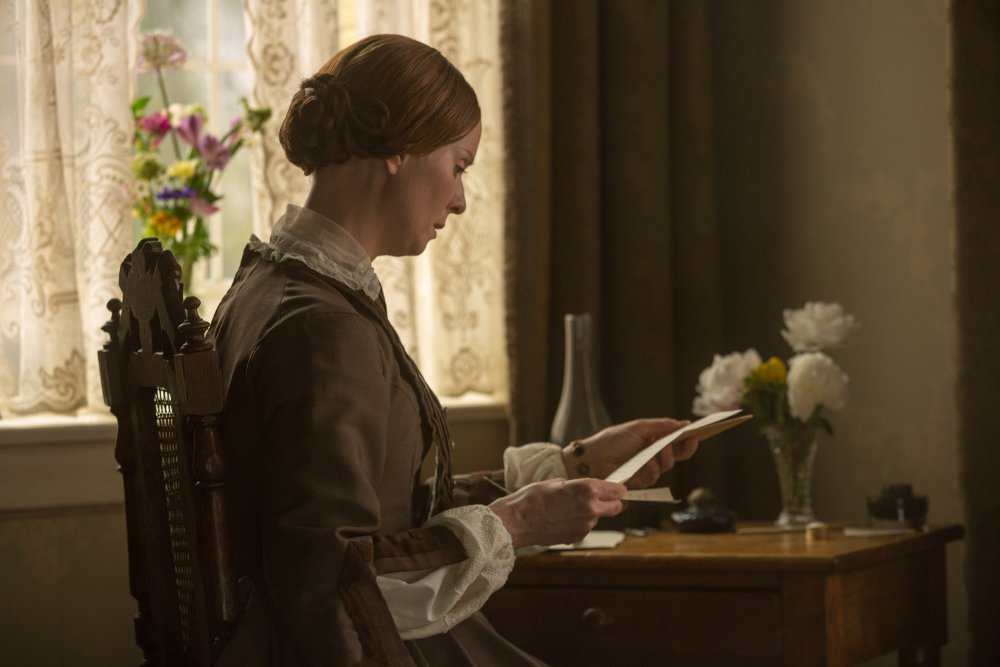
Read our first-look review of A Quiet Passion
Top British films
American Honey 20 votes
I, Daniel Blake 17 votes
Love & Friendship 9 votes
A Quiet Passion 5 votes
HyperNormalisation 4 votes
Further Beyond 3 votes
The Girl with All the Gifts 3 votes
The Levelling 3 votes
Notes on Blindness 3 votes
Jordan Cronk
Critic and programmer, USA
The Death of Louis XIV Albert Serra
Nocturama Bertrand Bonello
The Ornithologist João Pedro Rodrigues
Sieranevada Cristi Puiu
Toni Erdmann Maren Ade
These five films came immediately to mind, and while I admire a great many others, nothing seriously threatened to disrupt this initial quintet. Nonetheless, herewith, some honorable mentions: Certain Women (Kelly Reichardt); The Dreamed Path (Angela Schanelec); Elle (Paul Verhoeven); The Human Surge (Eduardo Williams); Kékszakállú (Gastón Solnicki); Knight of Cups (Terrence Malick, 2015); A Lullaby to the Sorrowful Mystery (Lav Diaz); Paterson (Jim Jarmusch); A Quiet Passion (Terence Davies); Scarred Hearts (Radu Jude); Sixty Six (Lewis Klahr, 2015); Staying Vertical (Alain Guiraudie); Where the Chocolate Mountains (Pat O’Neill, 2015).
Nick Davis
Associate professor, English, gender, and film, Northwestern University, USA
Things to Come (L’Avenir) Mia Hansen-Løve
Aquarius Kleber Mendonça Filho
Fire at Sea (Fuocoammare) Gianfranco Rosi
Raising Bertie Margaret Byrne
Moonlight Barry Jenkins
Other than that, Mrs Lincoln, how were the movies? Raising Bertie, the lowest-visibility title on this list, is an expertly made and politically urgent documentary about three black male teens trying to flourish in rural North Carolina, one of many economically devastated regions of my quickly spiralling country. Think Hoop Dreams without the hoops, or the city blocks. It pairs interestingly with Moonlight, or with Fire at Sea, or with my sixth choice, Craig Atkinson’s Do Not Resist, a stunning chronicle of police militarisation in the USA.
Other titles that came close, even with much left to view this year, included Tomcat (Händl Klaus), Starless Dreams (Mehrdad Oskouei), 24 Weeks (Anne Zohra Berrached), Elle (Paul Verhoeven), The Salesman (Asghar Farhadi) and Neruda (Pablo Larraín).
Maria Delgado
Professor of Theatre & Screen Arts, Queen Mary University of London, UK
Neruda Pablo Larraín
Julieta Pedro Almodóvar
Toni Erdmann Maren Ade
Jackie Pablo Larraín
The Fury of a Patient Man (Tarde para la ira) Raúl Arévalo
What a year it’s been for Pablo Larraín. In less than 12 months he has produced two extraordinary films that reinvent the biopic in ambitiously different ways.
Neruda is an epic symphonic work, a jazz-like riff on the Chilean icon and Nobel Prize-winning poet Pablo Neruda’s two years on the run in the late 1940s. This is a Nerudian film more than a film about Neruda, with the poet pursued obsessively by his nemesis, the wonderfully named detective Oscar Peluchonneau – a career-defining performance by Gael García Bernal. Neruda is baroque and brash, a carnivalesque contemplation of the forging of the Neruda brand – the romantic poet with a political conscience – realised with a rhythm as dazzling and inventive as Neruda’s imagination.
Jackie opts for a different tone, returning to the more intimate character of last year’s sinewy The Club. Like Neruda, this is an anti-biopic, a consideration of how myth and memory intersect in the aftermath of testing historical circumstances – here Jackie Kennedy’s coping with the aftermath of her husband’s assassination. Larraín’s camera stays close to the First Lady, offering the viewer a portrait into her state of mind that is often gruelling to watch. Like Neruda, Jackie is a bold, poetic contemplation of identity formation, and it points to Larrain as the most exciting political filmmaker of his generation.
Almodóvar too inspired me with his haunting Julieta – a contemplation of mortality and guilt as harrowing as any Greek tragedy. Actor Raúl Arévalo made of the year’s best debuts with his 70s style urban western The Fury of a Patient Man and Toni Erdmann was strange and beguiling – a gloriously meandering tale of father-daughter miscommunication, embarrassment and exasperation realised across the broader canvas of corporate culture.
Stephane Delorme
Chief editor, Cahiers du cinéma, France
Toni Erdmann Maren Ade
Elle Paul Verhoeven
The Neon Demon Nicolas Winding Refn
Julieta Pedro Almodóvar
Les Bois dont les rêves sont faits Claire Simon
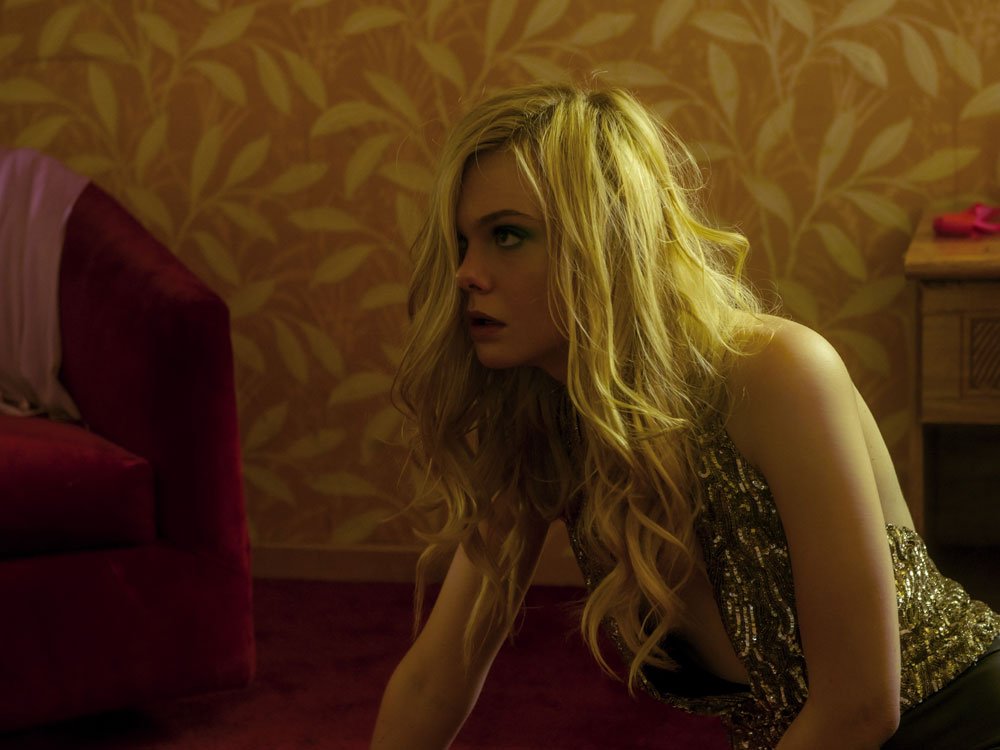
Read our The Neon Demon review
Jemma Desai
LFF strand advisor / British Council film programme manager, UK
Moonlight Barry Jenkins
All This Panic Jenny Gage & Tom Betterton
American Honey Andrea Arnold
Raw Julia Ducournau
Under the Shadow Babak Anvari
Helen Dewitt
Head of cinemas, BFI Southbank, UK
Napoleon Abel Gance with a little help from Kevin Brownlow and Carl Davis
American Honey Andrea Arnold
I, Daniel Blake Ken Loach
Embrace of the Serpent Ciro Guerra
Son of Saul László Nemes
A tragic year in world affairs has seen the release and re-release of some important and impressive films that speak to our times. Napoleon, one of the greatest films ever made, about the will to power and world domination; Son of Saul, about the greatest evil a people can do to another; Embrace of the Serpent, the disappearing world and with it unique nature, visions and knowledge; I, Daniel Blake, a picture of the heartless nation that the UK has become and the lamentable stories of some of those who fall victim to it. Andrea Arnold’s American Honey, though, is about survival and self-actualisation, as well as joy in small kindnesses and delight in the natural world. Some much-needed hope for Christmas.
Mar Diestro-Dopido
Film critic/researcher Sight & Sound, UK
Julieta Pedro Almodóvar
The Club Pablo Larraín
Victoria Sebastian Schipper
The Witch Robert Eggers
Elle Paul Verhoeven
Three really special mentions: Apichatpong Weerasethakul’s Cemetery of Splendour, Eugène Green’s The Son of Joseph and Oliver Laxe’s Mimosas.
My most cinematic moment of the year has to be a restoration of the 1922 version of Nosferatu accompanied by its original score played by the regional Symphonic Orchestra of the city I was born in, during the local film festival of Seminci. Haunting.
Rachel Dwyer
Professor of Indian cultures and cinema, SOAS, University of London, UK
Aligarh Hansal Mehta
Masaan Neeraj Ghaywan
Kapoor and Sons Shakun Batra
Pyaasa Guru Dutt
Fan Maneesh Sharma
I wrote a column on the songs of Pyaasa as it’s the Hindi film I keep rewatching. It remains an extraordinary film.
This year I haven’t seen as many, or enjoyed as many, Hindi movies as usual, and haven’t seen one to top last year’s favourite, Bajrangi Bhaijaan. There are still some major releases lined up so I remain hopeful.
Masaan and Aligarh are not mainstream ‘Bollywood’ films, while Fan and Kapoor and Sons were in some ways more interesting than successful. The former tries to explore ideas of stardom, in particular that of Shah Rukh Khan, while the latter had some good moments, but was more notable for presenting Pakistani star Fawad Khan as a gay character.
Geoff Dyer
Writer, USA
American Honey Andrea Arnold
O.J.: Made in America Ezra Edelman
The Handmaiden Park Chan-wook
Moonlight Barry Jenkins
HyperNormalisation Adam Curtis
Gareth Evans
Film curator, Whitechapel Gallery, London; film producer; writer; curator; presenter, UK
Further Beyond Joe Lawlor, Christine Molloy
As always I have missed many titles clearly deemed worthy of attention. Of those chosen, Further Beyond is simply one of the best films I have seen in an age. Not only a masterclass in filmmaking, it is a brilliantly structured, witty, affecting and often profound work about the importance of stories in constructing our sense of belonging in the world. Given the year’s events, this could not be more pressing a concern. We just need the right stories.
The Pearl Button Patricio Guzman
Guzman’s importance goes without saying. And I like that the Chilean connection continues from my first choice. Once he has completed this trilogy with his investigation of the mountains, their histories and memories, it will clearly be one of the most important series works of this century.
Innocence of Memories Grant Gee
I have a vested interest in Grant Gee’s onward progress but his latest collaboration with Orhan Pamuk reveals ever more beguilingly how he has created his own space – that of cinematic ‘inhabitation’ of the literary. Few films are more seductively layered and labyrinthine.
Victoria Sebastian Schipper
Victoria is literally an incredible achievement. How they pulled it off remains a delirious mystery.
To the Wolf Christina Koutsospyrou, Aran Hughes
I am a late viewer of To the Wolf but this duo (to remind us of the collaborative creativity behind all these titles) astound with this, their first film of any kind. Its premiere at Berlin says it all. They’re motivated by empathy, by the need for a common humanity, not by any sense of career or professional progression. Austerity as biting poetry. The right stories again. Watch them closely. They are joining the ranks of those who are working the edges and limits with insight and troubling beauty for evidence of all our possible futures.
Michael Ewins
Freelance critic, UK
Reluctantly Queer Akosua Adoma Owusu
Heaven Knows What Ben Safdie & Joshua Safdie
No Home Movie Chantal Akerman
Ears, Nose and Throat Kevin Jerome Everson
Nocturama Bertrand Bonello
Reflecting on these selections, I realise that they’re all deeply interior films about the compartmentalisation of emotions and selves. In Reluctantly Queer, a young Ghanian man is torn between his sexual and racial identity, and the different forms of acceptance or rejection he faces in native and adopted homes; Heaven Knows What sees ex-heroin addict Arielle Holmes playing a fictionalised version of herself in a hypnotically textured portrait of homeless junkies in New York; for No Home Movie, the late Chantal Akerman filmed her mother at home during her dying days, and the pair discussed topics of diaspora, heritage, and the impermanence of memory; in Ears, Nose and Throat, Shadeena Brooks testifies to the devastating event she witnessed on 9 March 2010, when a young black man was murdered outside her home in Ohio; finally, Nocturama follows a band of young terrorists who commit atrocities across Paris before holing up in a shopping mall after dark.
Each film uses its metaphorical weight to leverage an emotion that reverberates far beyond its duration, and folds back into the reality from which they sprung. Somehow, from tales of spiritual and physical confinement, these filmmakers located a freedom of expression and a means to refine their cinematic language. I couldn’t list five films better than these even if you asked me to. These are the five films which have defined my year in cinema, and expanded my feeling for it as a still young, restless and reaching medium.
The Ferroni Brigade
Writers/programmers/teachers, Austria/Germany
Elle Paul Verhoeven
My Beloved Bodyguard Sammo Hung
The Purge: Election Year James DeMonaco
Seishun 100-Kilo Hirano Katsuyuki
The Mobfathers Herman Yau
Lizzie Francke
Senior production and development executive, BFI Film Fund, UK
Aquarius Kleber Mendonça Filho
Moonlight Barry Jenkins
Raw Julia Ducournau
Toni Erdmann Maren Ade
Elle Paul Verhoeven
While I could have listed international films which I paid to see in cinemas with audiences this year – Embrace of the Serpent, The Invitation and Hunt for the Wilderpeople were particular favourites – recent events have put me in a projecting forward frame of mind as I think about the point of film in these dark times. The selection here is of films I have seen on the festival circuit which hopefully a wider audience will be able to see in the next few months. (I’m abstaining from British films here because of my job.) All but the Verhoeven are by filmmakers at early stages of their careers, but all can be connected by an extraordinary subjectivity that invites you to step into the shoes of the protagonists and walk or run – or, in the case of Elle, follow a complex, wrong-footing dance.
Jean-Michel Frodon
Critic (Slate.fr)/professor (Sciences Po Paris, St Andrews), France
Elle Paul Verhoeven
Paterson Jim Jarmusch
Fire at Sea (Fuocoammare) Gianfranco Rosi
Sieranevada Cristi Puiu
Personal Shopper Olivier Assayas
2016 has been a pretty difficult year for cinema. Of course, this list of titles, if not limited to five, should also accept at least Mia Hansen-Løve’s Things to Come, Bertrand Bonello’s Nocturama, Benoit Jacquot’s Never Ever, the Dardennes’ The Unknown Girl, Albert Serra’s The Death of Louis XIV, Cristian Mungiu’s Graduation, Brillante Mendoza’s Ma’ Rosa, Jeff Nichols’s Midnight Special, Kaufman and Johnson’s Anomalisa and Sharunas Bartas’s Peace to Us in Our Dreams.
But, having been darkened by the cruel losses of Abbas Kiarostami and Michael Cimino, this year is also marked by significant weakness. Very little from the English-speaking world and from Latin America, hardly more from Asia (but with Hou Hsiao-hsien, Jia Zhangke, Apichatpong Weerasethakul, Kiyoshi Kurosawa and Hong Sangsoo, the previous year was flamboyant).
And also there has often been the feeling that many of the best films are now more and more mariginalised – for instance in Venice where you had to dig in sidebars to find gems like Road to Mandalay by Midi Z, Drum by Keywan Karimi or One More Time With Feeling, Andrew Dominik’s wonderful documentary about Nick Cave. Not to mention one of my favourites, Olmo and the Seagull by Petra Costa and Lea Glob, which went totally unnoticed. Which means what happens is less a loss of creativity than an issue of unequal access to visibility. In this respect, it seems that the internet and social media are as much a problem as a solution.
Graham Fuller
Critic, US/UK
Certain Women Kelly Reichardt
Nocturnal Animals Tom Ford
Julieta Pedro Almodóvar
Elle Paul Verhoeven
The Unknown Girl (La Fille inconnue) Jean-Pierre and Luc Dardenne
It came to my attention more forcibly than ever in 2016 that the quality of the mise en scènes in big-budget Hollywood filmmaking has declined so precipitously over the last 20 years that the majority of epics, adventure films and movies set in exotic or alternative worlds look so artificial, thanks to CGI and concomitant disingenuous storytelling, that they signal within seconds if they will permit the suspension of disbelief. Many don’t. That was less true of, say, the 1930s and 1940s when audience credulity was more easily won. Every year a receptive critic should be able to find a few commercial films as persuasive and enriching as more personal work, but it has become nearly impossible to do so. Against that, Ang Lee’s Billy Lynn’s Long Halftime Walk took an exciting step forward because, by using its speed-sharpened images to render precisely the PTSD-afflicted protagonist’s disorientation, it put technology in the service of emotions.
Charles Gant
Film editor, Heat magazine, UK
Manchester by the Sea Kenneth Lonergan
La La Land Damien Chazelle
Nocturnal Animals Tom Ford
Victoria Sebastian Schipper
Little Men Ira Sachs
I’m a little embarrassed that my top three choices happen to coincide so neatly with films tipped and positioned for awards consideration, but there it is. In any other year, I’d be rooting for Manchester by the Sea or La La Land or Nocturnal Animals to take the top prize, so I guess I should just be thankful for an embarrassment of riches this Oscar season. As for Victoria, the single-shot wonder took me on a journey that made me believe in a narrative conceit of potential enormous implausibility, and I was happy for that giddy ride. Little Men I found very wise and even-handed about the complications of modern life, and also – more importantly – a total delight.
Ryan Gilbey
Critic, New Statesman, UK
Further Beyond Joe Lawlor & Christine Molloy
The Little MenLobster Ira Sachs
Ghostbusters Paul Feig
Love & Friendship Whit Stillman
Embrace of the Serpent Ciro Guerra
Jane Giles
Head of BFI Content, UK
American Honey Andrea Arnold
Embrace of the Serpent Ciro Guerra
Evolution Lucile Hadzihalilovic
Julieta Pedro Almodóvar
The Witch Robert Eggers
I’ve followed my usual criteria of choosing only films released during the calendar year, and what struck me again was how many films are on release to what feels like no great gain. Do we really need so many subject-driven documentaries on cinema screens occupying much-needed slots for holdovers, word-of-mouth slow burns or great rep programming, and taking up review space?
I don’t think that 2016 was a great year for film – or anything else, for that matter – but here are the ones I most enjoyed, A-Z. I’m happy that my list includes two female directors, an old favourite back on form, a (mostly) B&W subtitled film and a healthy dose of horror.
My two favourite film events of the year both happened in the first week of November: John Carpenter playing his scores live at the Troxy and Carl Davis conducting the BFI’s digital restoration of Napoleon live at the Royal Festival Hall.
Suzy Gillett
Curator, UK
The Revolution Won’t Be Televised Rama Thiaw
Baden Baden Rachel Lang
The Incident Jane Linfoot
The Fits Anna Rose Holmer
Tezen Shirley Bruno
These were the films I saw in 2016 that made my heart beat faster (in a good way) than any of the others I saw. These films made me come away from the cinema with my head buzzing, offering the cinefile’s favourite sensation of having seen a film that gives you food for thought for days afterwards. Craft and hard graft. Yep. Ambitious texturing and layering. Yep. Editing ellipsis to create story. Yep. Gripping to the last frame. Totally.
Oh yeah they were also all made by women, first feature or first mid length film. But first they are great films.
So here they are the top films for me in 2016. Easy.
Leo Goldsmith
Film Editor, the Brooklyn Rail, USA
The Human Surge Eduardo Williams
The Illinois Parables Deborah Stratman
Oleg and the Rare Arts Andres Duque
The Dreamed Path Angela Schanelac
INAATE/SE/ [it shines a certain way. to a certain place./it flies. falls./] Adam & Zack Khalil
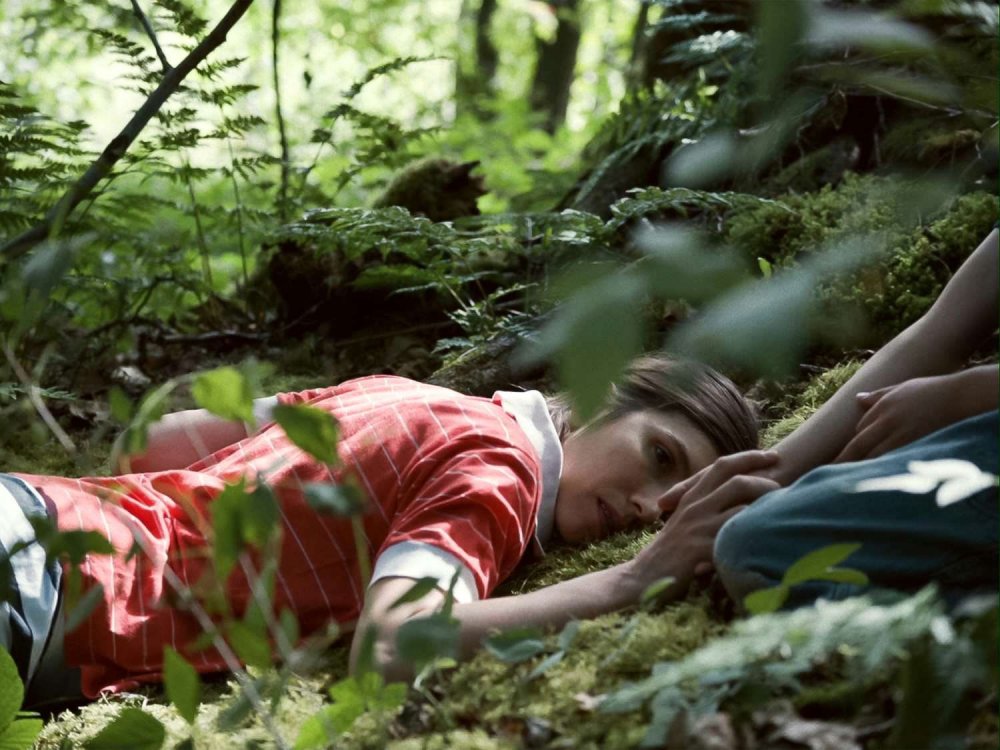
Eduardo Williams’ The Human Surge
Top films from Latin America
Aquarius 8 votes
Embrace of the Serpent 7 votes
Neruda 6 votes
The Human Surge 4 votes
Catherine Grant
University of Sussex academic, audiovisual essayist and curator, UK
The Illinois Parables Deborah Stratman
Correspondências Rita Azevedo Gomez
327 Cuadernos Andrés Di Tella
Le Moulin Huang Ya-li
Boat People Sarah Wood
My preferred films from 2016 are all great essay films (of one kind or another). These days I’m not remotely systematic when it comes to contemporary film viewing generally. But I do keep a relatively close cinephile eye on new essay film production, perhaps especially as someone interested in the essayistic forms of audiovisual expression increasingly being produced in and around academia. I particularly loved The Illinois Parables, a brilliantly made work by experimental documentarian Deborah Stratman, who is also Associate Professor in the School of Art & Art History at the University of Illinois at Chicago. It’s one of the most evocative, engaging and politically substantial history films I have seen.
Robert Greene
Filmmaker, USA
Cameraperson Kirsten Johnson
Fire at Sea (Fuocoammare) Gianfranco Rosi
HyperNormalisation Adam Curtis
Under the Sun Vitaly Mansky
Starless Dreams Mehrdad Oskouei
Robert Hanks
Reviewer, UK
The Measure of a Man Stéphane Brizé
American Honey Andrea Arnold
Toni Erdmann Maren Ade
Love & Friendship Whit Stillman
Doctor Strange Scott Derrickson
Part of the point of going to the cinema for me is, generally, to put politics and the world aside; but the three films of this year that made the biggest impression just made me think about politics more. The Measure of a Man and American Honey were both pictures of people struggling to find meaning and take some control over their own destiny in a world where jobs have become meaningless and degrading. The European milieu and Vincent Lindon’s brilliant portrait of middle-aged manhood discarded and scrabbling for dignity made The Measure of a Man more affecting (ie, terrifying) for me; but the retreat into sensuality of the youngsters in American Honey and the sheer strangeness of Arnold’s America haunt me. Toni Erdmann was a more intimate and hopeful film, and very funny, but glancingly withering about the aridity of life in a globalised corporate world.
Love & Friendship was a beautifully turned romp, which might have looked more impressive if an accident of timing didn’t have me comparing it to the newly restored Barry Lyndon – easily the best thing Kubrick ever made, and perhaps the best evocation of a distant past yet put on film. And Scott Derrickson’s Doctor Strange overcame a dull script with smart casting and a visual flair to match Steve Ditko’s original psychedelic drawings.
My cinematic highlight wasn’t a new thing at all, though, but a screening in January of the gorgeously restored Penda’s Fen, Alan Clarke and David Rudkin’s 1974 TV play which evokes Englishness as something hybrid, generous, mystical: it turned out to be a useful antidote to the blunter and far less appealing versions of Englishness that came to dominate the news later in the year.
Simran Hans
Freelance writer, UK
Moonlight Barry Jenkins
Nocturama Bertrand Bonello
American Honey Andrea Arnold
Manchester by the Sea Kenneth Lonergan
Personal Shopper Olivier Assayas
For better or worse, all of the films I have chosen really go for broke. They are heroic in their ambition, sprawling, sometimes messy, and unmistakably alive. (The same could be said other films I liked, including Elle, The Handmaiden and Chi-Raq). I remember feeling spellbound by Personal Shopper’s atonal weirdness, bruised by the brunt of Manchester by the Sea’s sheer emotional force, energised by American Honey’s living, breathing ecstatic romanticism, viscerally chilled by Nocturama’s sleek complicity (the only film I’ve seen twice this year). These are the films that have lodged themselves in both my brain and heart.
Most special though is Moonlight, whose every beautiful frame pulsates with longing and raw desire. I felt swathed by its tenderness, and thankful for its soft and truthful images of black masculinity, an antidote in this violent and volatile world.
Also: I feel lucky to enjoy the bounty of regular repertory cinema goings-on here in London. This year’s revival house highlights include first watches of the following, in a big screen setting (and often from their original 35mm or VHS formats): Gummo; Celine and Julie Go Boating; Losing Ground; Heartburn; Videodrome; Something Wild; Fat Girl.
Brandon Harris
Writer (the New Yorker, N+1, the New Republic, the New Inquiry), USA
HyperNormalisation Adam Curtis
Free in Deed Jake Mahaffy
Moonlight Barry Jenkins
Barry Vikram Gandhi
Paterson Jim Jarmusch
Molly Haskell
Author/critic, USA
20th Century Women Mike Mills
Toni Erdmann Maren Ade
A Quiet Passion Terence Davies
Hell or High Water David Mackenzie
Things to Come Mia Hansen-Løve
I’ve restricted my five to 2016, and there are a lot I haven’t yet seen. Revelations from the past were two silent films by Frank Borzage: Back Pay and The Pride of Palomar (both 1922). They make you understand once again why those who’d known only silent cinema resisted the coming of sound.
Tim Hayes
Freelance writer and critic, UK
Little Sister Zach Clark
The Invitation Karyn Kusama
Flag Without a Country Bahman Ghobadi
Queen of Earth Alex Ross Perry
The Neon Demon Nicolas Winding Refn
Three of these used VOD as their route to a UK audience, either with a momentary theatrical release or doing without that gesture. Should this alter how critics process them? Perhaps. The position and impact of art is criticism’s business, but the opaqueness of streaming revenues and viewing figures leaves the matter of these films’ success vague in economic and cultural terms alike. Faced with terra incognita, critics’ exploratory outlook matters. Saying that a film is in cinemas, when we really mean it’s in two cinemas for a single day, is either a safety-blanket privileging of the cinema experience or a flat parroting of the marketing message; but either way, pointing people towards places where the art isn’t looks a lot like voluntary redundancy. All grist for a rebalancing of our cultural journalism remit, perhaps via conceding that ceaseless personal curation isn’t the same thing.
Sandra Hebron
Head of Screen Arts, National Film and Television School, UK
Aquarius Kleber Mendonça Filho
The Death of Louis XIV Albert Serra
I, Daniel Blake Ken Loach
Paterson Jim Jarmusch
Things to Come (L’Avenir) Mia Hansen-Løve
I’ve listed titles alphabetically, rather than rank them. My selection is very much a ‘so far’ list, as I have lots of highly regarded films still to see, but that’s not to diminish how highly I value the ones I’ve chosen.
Alongside these, I’d like to mention two events, each involving a work that wasn’t exactly new, but new to me in so far as I’ve never managed to see either of them presented before. First, Malcolm Le Grice’s Horror Film screened as part of a season of his work at BFI Southbank, a thrill to see this, and moving too, given the passage and impact of time since it was first made – impossible not to reflect on this.
Secondly, the digital presentation of Kevin Brownlow’s most recent restoration of Napoleon at the Royal Festival Hall, where the anticipation and excitement in the room was palpable, and where my (knee-jerk, groundless) resistance was systematically dismantled by this absurdly ambitious, tricksy, funny, experimental wonder.
J. Hoberman
Critic, USA
O.J.: Made in America Ezra Edelman
Toni Erdmann Maren Ade
Kaili Blues Bi Gan
The Death of Louis XIV Albert Serra
Neruda Pablo Larraín
Joanna Hogg
Filmmaker/curator, UK
Toni Erdmann Maren Ade
Certain Women Kelly Reichardt
Personal Shopper Olivier Assayas
La La Land Damien Chazelle
But Elsewhere Is Always Better Vivian Ostrovsky
Alexander Horwath
Director, Austrian Film Museum, Austria
Toni Erdmann Maren Ade
Neruda Pablo Larraín
The Woman Who Left Lav Diaz
Elle Paul Verhoeven
The Dreamed Ones Ruth Beckermann
Strangely, the title of one film on my list seems to encapsulate all five: The Dreamed Ones. It speaks about the ways in which some great filmmakers have become acutely sensitive to a central condition of life today: a sort of pulsating unreality in which the forces of fantasy, imaginative (and often stressful) self-design and ‘self-improvement’, apocalyptic fears and a deep social unease (or social-networked unease) all condense toward the only form of reality we have at our disposal. The ‘we’ in question being mainly the Western liberal bourgeoisie, but also, to a degree, that of our unfortunate victims and brethren in less ‘enlightened’ circumstances. In this group of films, Pablo Larraín’s poet/activist Neruda and the police inspector on his trail, as well as Ruth Beckermann’s poets in love (Ingeborg Bachmann and Paul Celan), figure as the historical, circa 1948, avatars of our own present condition.
Pamela Hutchinson
Freelance writer, UK
I, Daniel Blake Ken Loach
Cameraperson Kirsten Johnson
La La Land Damien Chazelle
American Honey Andrea Arnold
Things to Come (L’Avenir) Mia Hansen-Løve
In a tumultuous year for current affairs at home and abroad, it was bittersweet to experience moments when films from the past resonated with contemporary troubles. Jay Weissberg’s triumphant first year as director of the Pordenone Silent Film Festival began with a screening of À Propos de Nice in remembrance of the victims of the Bastille Day terror attack. The deepest poignancy was that similar tributes could have been paid to so many more places. And at the Royal Festival Hall in November, an intertitle in Abel Gance’s Napoleon (1927) divided and galvanised the mostly British crowd: the thunderous response to the idea that “Europe will become a single people” drowned out the Philharmonia Orchestra.
Napoleon’s digital reincarnation was undoubtedly the archive film event of the year, followed by a new box set of films by African-American cinema pioneers. As a silent film advocate, I am intrigued to hear reports that Hollywood blockbusters are cutting back on dialogue. The execs over there should look to Studio Ghibli’s The Red Turtle as an example of how to make a modern, and excellent, film without speech at all.
Eric Hynes
Associate Curator of Film, Museum of the Moving Image, USA
Cameraperson Kirsten Johnson
Toni Erdmann Maren Ade
Manchester by the Sea Kenneth Lonergan
Elle Paul Verhoeven
O.J.: Made in America Ezra Edelman
Pasquale Iannone
Film academic and critic UK
Julieta Pedro Almodóvar
Victoria Sebastian Schipper
Son of Saul László Nemes
A Bigger Splash Luca Guadagnino
Knight of Cups Terrence Malick
Bubbling under were: Hell or High Water (Mackenzie), Suburra (Sollima), American Honey (Arnold), The Measure of a Man (Brizé), One More Time With Feeling (Dominik), Bleak Street (Ripstein), Mavis! (Edwards).
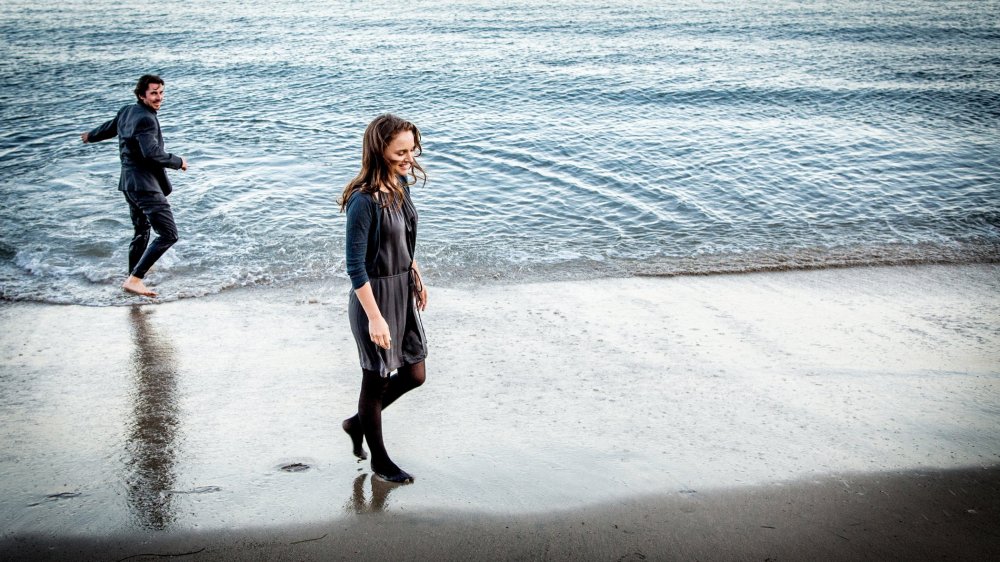
Knight of Cups (2015)
Wendy Ide
Critic, UK
Manchester by the Sea Kenneth Lonergan
Notes on Blindness Pete Middleton, James Spinney
Your Name Makoto Shinkai
Evolution Lucile Hadzihalilovic
Neruda Pablo Larraín

Juliet Jacques
Writer, UK
The Exquisite Corpus Peter Tscherkassky
Ascent Fiona Tan
Dawson City: Frozen Time Bill Morrison
The Ornithologist João Pedro Rodrigues
Confessions to the Mirror Sarah Pucill
None of these are straightforward feature films – the nearest is The Ornithologist, which follows a fairly linear narrative but feels like a 21st century take on Surrealism, with its visceral, oblique vision of religion and sexuality. The few features that I did see disappointed me (Julieta and particularly High-Rise) and Son of Saul was the only that I considered.
So we have a couple of highly inventive, beautiful documentaries; Sarah Pucill’s second adaptation of Claude Cahun’s writings, capturing the fragmented poetry of its source; and Tscherkassky’s Exquisite Corpus, which (like Morrison’s) is a film about film, using archive material. I don’t know if I can conclude from this that conventional narrative is, at this point, one of the least interesting approaches, or if it’s just one of the least interesting to me.
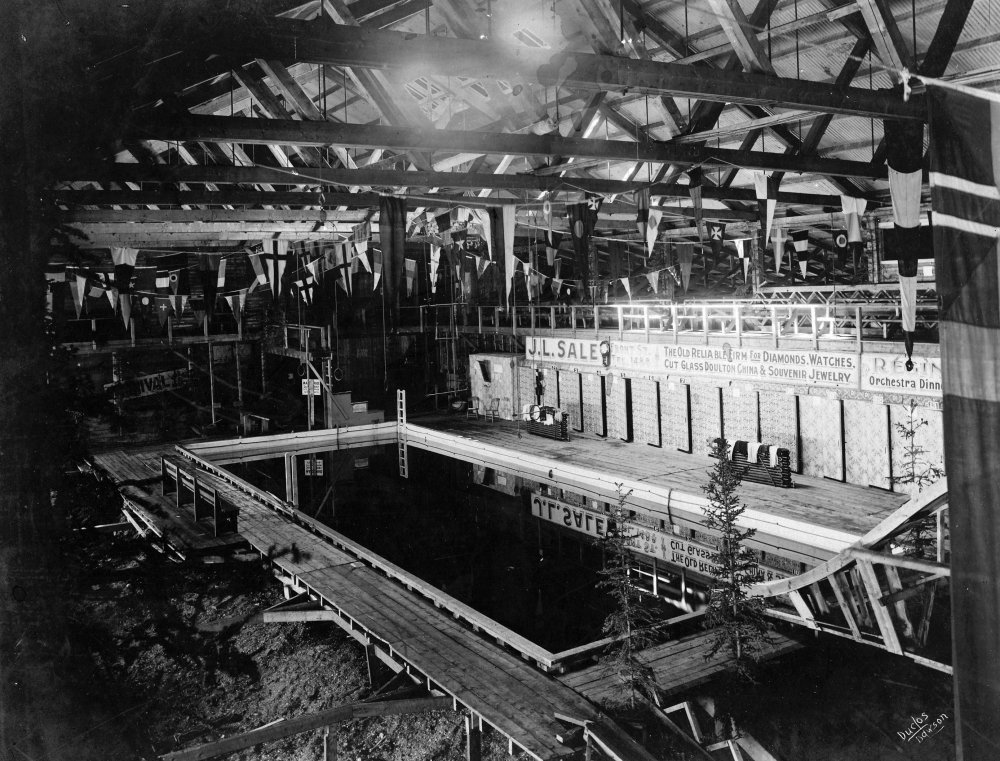
Read about Bill Morrison’s Dawson City: Frozen Time in Experimenta 2016: Explosions at the end of the line
David Jenkins
Editor, Little White Lies, UK
Toni Erdmann Maren Ade
Certain Women Kelly Reichardt
Happy Hour Hamaguchi Ryusuke
Voyage of Time: Life’s Journey Terrence Malick
Everybody Wants Some!! Richard Linklater
Toni Erdmann was not only my favourite film by a comfortable margin, but it also goes some way in reaffirming (sick buckets at the ready) ‘cinema’ as a ‘communal experience’. Maybe this is reflective of my own lack of valuable life experience, but the Cannes press screening where it was first unveiled felt more like a raucous Southern Baptist sermon than a conventional trip to the pictures. As much as you can have a vague sensory insight into the feelings of those in the close vicinity, the room felt alive with emotion. The studios would do well to look at this movie to understand how you cultivate a sense of awe. Discovering films like this is what makes it (the job, festivals, criticism, life) all worthwhile.
Additionally, that fifth spot is wholly interchangeable with Pedro Almodóvar’s Julieta, Clint Eastwood’s Sully, Claude Barras’s My Life as a Courgette, Albert Serra’s The Death of Louis XIV, Mel Gibson’s Hacksaw Ridge and Pablo Larrain’s Jackie.
Documentary plaudits go to Christine Molloy and Joe Lawlor’s Further Beyond.
And the award for the movie that completely defies binary categorisations of good and bad, the one I have absolutely no idea of whether I loved or loathed, but have pretty much thought about it every day since seeing it, is Bertrand Bonello’s Nocturama.
Kent Jones
Writer/filmmaker/festival director, USA
In no particular order:
Toni Erdmann Maren Ade
The 13th Ava DuVernay
Silence Martin Scorsese
The Lost City of Z James Gray
Paterson Jim Jarmusch
Alan Jones
Director of Film4 FrightFest, UK
La La Land Damien Chazelle
Manchester by the Sea Kenneth Lonergan
Under the Shadow Babak Anvari
Nocturnal Animals Tom Ford
Moonlight Barry Jenkins
Philip Kemp
Freelance reviewer/film historian, UK
Son of Saul Laszlo Nemes
Love & Friendship Whit Stillman
I, Daniel Blake Ken Loach
Tale of Tales Matteo Garrone
Theo and Hugo Olivier Ducastel, Jacques Martineau
An excellent year for Blu-ray/DVD re-releases, not least for two classic trilogies: Satyajit Ray’s Apu Trilogy from Criterion – a huge improvement over the old Artificial Eye release – and Kobayashi’s towering wartime trilogy The Human Condition from Arrow.
Glenn Kenny
Film critic, USA
The Fits Anna Rose Holmer
The Love Witch Anna Biller
Toni Erdmann Maren Ade
Moonlight Barry Jenkins
Paterson Jim Jarmusch
Robert Koehler
Film critic, USA
All the Cities of the North Dane Komljen
Kekszakallu Gaston Solnicki
Toni Erdmann Maren Ade
Nocturama Bertrand Bonello
The Ornithologist João Pedro Rodrigues
If I had additional slots, I would add in no particular order: Aquarius; Manchester by the Sea; Moonlight; Things to Come; Hell or High Water; and the most physically powerful and disturbing movie I saw this year whose French title – Gorge Coeur Ventre – is more to the point than its deceptively placid English one, Still Life. This one was a debut by the French filmmaker, Maud Alpi, but the most audacious debut was yet another discovery at Locarno, somewhat overlooked in the Signs of Life section and my pick for the year’s most original work: Dane Komljen’s All the Cities of the North. I can’t think of any precedent for what Komljen does here, and what he does exactly beggars description. “A desire to imagine a new order of things,” is what Komljen, the supremely gifted Yugoslav-born, Berlin-based film artist, says of his characters, but it really speaks to what this movie does. It suggests an entirely fresh path for cinema.
kogonada
Filmmaker/essayist, US
Moonlight Barry Jenkins
Certain Women Kelly Reichardt
Little Men Ira Sachs
Paterson Jim Jarmusch
Manchester by the Sea Kenneth Lonergan
In light of the coming Trump presidency, here are five American films that suggest a growing sensibility and taste for the quiet, the reflective, the complex, the spare, the humane. More than ever these kind of films matter.
Ehsan Khoshbakht
Critic and curator, UK/Iran
Sieranevada Cristi Puiu
Fire at Sea (Fuocoammare) Gianfranco Rosi
Sweet Dreams Marco Bellocchio
Nocturama Bertrand Bonello
The Brick and the Mirror Ebrahim Golestan
I have smuggled on to the list one film revived from the past: The Brick and the Mirror (1965), which is by far the most stylistically daring film I have revisited (and occasionally presented and screened) in 2016. Golestan’s bleak masterpiece, arguably the best of Iranian pre-revolutionary cinema, captures an atmosphere of political anxiety and paranoia and transforms it into a timeless image of any society governed and manipulated on the basis of fear of the other – more or less a mirror held in front of us at this troubled moment in the 21st century.
But this also reminded me of the fact that in a year that was cinematically (and otherwise) not so great, it was revivals and retrospectives which made life more pleasant. Life-changing retrospectives included the exhilarating Deutschland 1966 (Berlinale) and the glorious, all-35mm Universal Pictures: The Laemmle Junior Years (Il Cinema Ritrovato). The latter featured the most poignant piece of social realist cinema of the depression era, Laughter in Hell (Edward L. Cahn, 1933), which remains for me the unsurpassed discovery of the year.
Eric Kohn
Chief film critic/deputy editor, USA
Moonlight Barry Jenkins
Jackie Pablo Larraín
Weiner Josh Kriegman & Elyse Steinberg
Everybody Wants Some!! Richard Linklater
Swiss Army Man Daniel Kwan & Daniel Scheinert
Michael Koresky
Editorial director, Film Society of Lincoln Center; editor, Reverse Shot, USA
Aquarius Kleber Mendonça Filho
Toni Erdmann Maren Ade
Cemetery of Splendour Apichatpong Weerasethakul
Cameraperson Kirsten Johnson
No Home Movie Chantal Akerman
Edward Lawrenson
Journalist, UK
Aquarius Kleber Mendonça Filho
Scarred Hearts Radu Jude
Ascent Fiona Tan
Further Beyond Joe Lawlor, Christine Molloy
The Dreamed Path Angela Schanelec
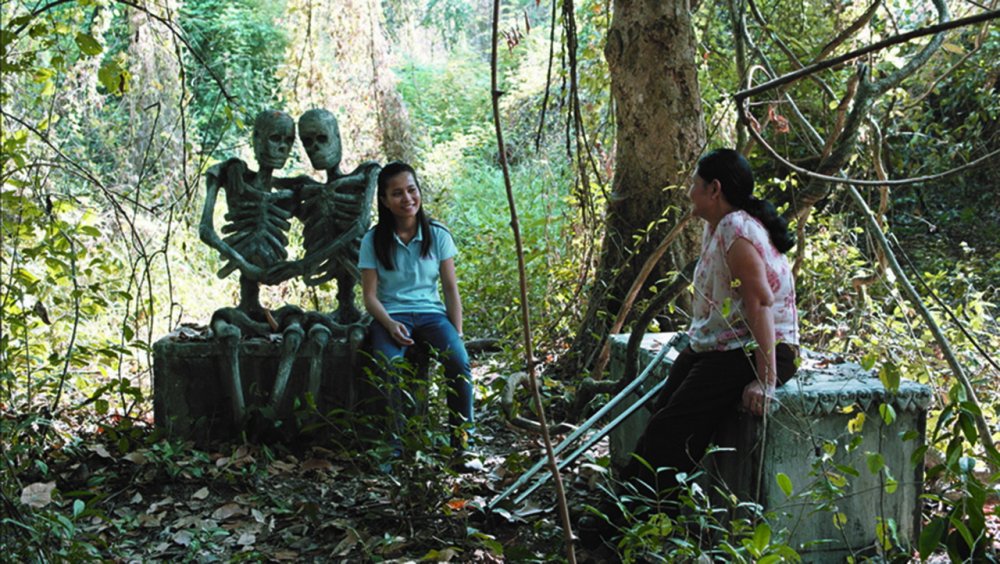
Read our Cemetery of Splendour review
Top films from Asia
Cemetery of Splendour 5 votes
Under the Shadow 5 votes
The Woman Who Left (Ang Babaeng Humayo) 5 votes
The Handmaiden 4 votes
Your Name 4 votes
Kaili Blues 3 votes
Our Little Sister (Umimachi Diary) 3 votes
Kevin B. Lee
Critic and video essayist, USA
Certain Women Kelly Reichardt
Elle Paul Verhoeven
Moonlight Barry Jenkins
Kaili Blues Bi Gan
O.J.: Made in America Ezra Edelman
What are movies good for? I ask myself this question more and more frequently, never more so than today, 9 November 2016. The world feels like it is becoming more unspooled, reactionary and irrational. Many of the movies I’ve seen this year amount to inadequate escapist gestures or simplified distillations of a reality far more darkly compelling than what I typically see on screen. I chose these five films because they did the most to encompass this darkness and irrationality. In doing so, they serve as the clarifying lens I seek more than ever in cinema.
Danny Leigh
Writer/journalist/broadcaster, UK
American Honey Andrea Arnold
Creed Ryan Coogler
Embrace of the Serpent Ciro Guerra
Evolution Lucile Hadzihalilovic
Nocturama Bertrand Bonello
I decided to draw a thick line in permanent marker excluding some extraordinary films I’ve seen this year but which are coming out theatrically in Britain next year, and would otherwise have made this list: The Fits, Elle, Personal Shopper, Moonlight. (I had premonitions of most of next year’s poll being exactly the same as most of this one, which troubled me.)
Dennis Lim
Director of programming (Film Society of Lincoln Center), USA
Nocturama Bertrand Bonello
The Human Surge Eduardo Williams
Toni Erdmann Maren Ade
The Death of Louis XIV Albert Serra
Elle Paul Verhoeven
Plus five shorts:
- Sarah Winchester, Opéra Fantôme (Bertrand Bonello)
- Cilaos (Camilo Restrepo)
- Foyer (Ismaïl Bahri)
- Indefinite Pitch (James N. Kienitz Wilkins)
- A Brief History of Princess X (Gabriel Abrantes)
Dana Linssen
Editor in chief, de Filmkrant/critic NRC Handelsblad, The Netherlands
Shadow World Johan Grimonprez
My Life as a Courgette Claude Barras
Fire at Sea (Fuocoammare) Gianfranco Rosi
Toni Erdmann Maren Ade
Sausage Party Greg Tiernan & Conrad Vernon
Once again a year in which some of the most exciting cinematic things and some other reveries of the mediated world happened outside the black boxes that were once known as cinemas:
- Fever Room: Apichatpong Weerasethakul’s cine-theatre performance that turned the spectator into a screen and saw Plato’s shadows laughing in the distance (at the Kunstenfestivaldesarts in Brussels)
- Subtle Beast: episode two of HBO’s The Night Of, directed by Steven Zaillian, with Igor Martinovic as director of photography, offering neverending explorations in a shallow depth of field
- HyperNormalisation directed by Adam Curtis (on BBC iPlayer)
- Into the Inferno (on Netflix): if the world didn’t exist Werner Herzog would have to invent it
- Atomic: Mark Cousins and Mogwai (at the Holland Festival in Amsterdam) – it did get loud!
- Master of Light: the Robby Müller Exhibition at EYE in Amsterdam, in which the exhibition space became one big installation piece, and it worked
- Pokémon GO!
Guy Lodge
Film critic, Variety and the Observer, UK
American Honey Andrea Arnold
Certain Women Kelly Reichardt
Heal the Living Katell Quillévéré
Things to Come (L’Avenir) Mia Hansen-Løve
Toni Erdmann Maren Ade
I didn’t start my list with the specific intention of including only female filmmakers. Happily, it simply took shape that way. But to retrospectively apply motivation to a coincidence, it feels only appropriate to celebrate the collective artistry of a demographic still inexplicably marginalised in the industry – and, as we face the reality of the Trump era, in any number of other arenas too.
Arnold’s film perhaps most expressly gives vibrant voice to the socially disenfranchised, yet in magnifying and caressing the everyday plight of a middle-aged woman most storytellers would relegate to the sidelines, Hansen-Løve’s exquisite starting-over study – my favourite film of 2016, though I’m not inclined to rank any further – feels just as pointed and gracefully subversive.
I’d also like to note just how many films that so nearly made my cut – from Pablo Larraín’s elegantly shattered political biopic Jackie to Paul Verhoeven’s fearlessly ill-mannered Elle to Disney’s conceptually dizzying Zootopia – were, regardless of their director’s gender, built on and around strong female characters: strong not in the generically impervious sense, but conflicted and complicated in their strengths and weaknesses alike. At every one of 2016’s major competitive festivals, it seemed the Best Actress conversation was longer and richer than the Best Actor one. And over in the multiplexes, few are advocating for Sharon Maguire’s Bridget Jones’s Baby to be on many lists like this one, but it has elbowed past the superhero spectaculars to stand as the UK’s highest grosser of the year. Across the cinematic spectrum, then, stories by, about and for women can no longer be regarded as a specialised genre.
Tim Lucas
Editor, Video Watchdog, USA
Bone Tomahawk S. Craig Zahler
The first edge-of-my-seat western I’d seen since the 1970s – literate, harrowing, masterfully melding puckish humour and scalding horror; a film, like Deliverance, that one leaves feeling like a survivor.
The BFG Steven Spielberg
Spielberg’s The BFG may be the funniest, spookiest, most exquisitely crafted children’s film since The Wizard of Oz. Even its farting scenes are witty.
Florence Foster Jenkins Stephen Frears
The most profound surprise of the year, for me – another Meryl Streep parade float, perhaps, but a moving testimony to the ideas that art is both privilege and spiritual duty, and that beauty really is subjective. But the prize in the package is a heartbreaking, career-best performance by Hugh Grant.
Cosmos Andrzej Zulawski
Zulawski’s swansong is a uniquely manic adaptation of Witold Gombrowicz’s novel, which I feel was a piss-take of Robbe-Grillet and other practitioners of the nouveau roman. Zulawski flips the book’s literary sport to poke fun at the obsessive fervor of his own work. The confidential quality of the end credits moved me to tears.
Doctor Strange Scott Derrickson
Doctor Strange proves that Steve Ditko is the genius behind Marvel’s most humanistic properties. Unlike other Marvel Universe origin stories, this has the feel of a bildungsroman, in which the battles are either incidental or rungs in a ladder to the hero’s development. A roundly satisfying, entertaining fantasy without a gun in sight.
But any round-up of the year’s best must mention the Black Mirror episode San Junipero, directed by Owen Harris from a script by Charlie Brooker: beautifully, densely layered, moving storytelling, and a masterpiece of its medium.
Violet Lucca
Digital Editor, Film Comment, USA
The Prison in 12 Landscapes Brett Story
Moonlight Barry Jenkins
Love & Friendship Whit Stillman
The Fits Anna Rose Holmer
Factory Complex Im Heung-soon
2016 has been roundly terrible. Even Vine, one of the greatest sources of creative expression for young (black) talent, didn’t survive.
Nevertheless, there have been two new shows by Jon Glaser: Neon Joe, Werewolf Hunter and Jon Glaser Loves Gear. Both contain his pitch-perfect fusion of egomaniacal male energy and alt comedy. (In JGLG, like Delocated, we ask: was this man a nice guy who turned into something awful by virtue of being the star of a reality show, or was he just suppressing these impulses his entire life up until this point?) To quote Beckett: I can’t go on, I’ll go on.
In the meantime, I’m nominating this girl for Best Actress:
Charlie Lyne
Filmmaker/critic, UK
Rather than highlighting the year’s most complete cinematic achievements, I’ve chosen to pinpoint those which – regardless of their overall merits – connected with me most vividly at one point or another:
Cameraperson Kirsten Johnson
My favourite film of the year contained many such moments, not least its lightning-in-a-bottle opening title sequence, in which the entirety of human existence seemed effortlessly distilled into a single sneeze.
Christine Antonio Campos
Two sights in Christine epitomised that film’s examination of the precarious ties that bind us to this world: the anguish on Rebecca Hall’s face mid-argument, and the loneliness of Maria Dizzia’s final singalong in the face of death.
Fraud Dean Fleischer-Camp
No film this year was more formally enlivening than Fraud. Once its central characters began to set fire to their own house, I had absolutely no idea what I was watching.
Parents Christian Tafdrup
Much of Parents left me cold, but its anarchic take on the dehumanisation of familial relationships came brilliantly to life during a handful of scenes set (tellingly) in stairwells.
Elle Paul Verhoeven
Finally, the moment Laurent Lafitte pulled Isabelle Huppert from a totalled car in Elle, Paul Verhoeven declared himself ready to answer the questions laid out in his most unfairly maligned film, the enduringly provocative Hollow Man.
Geoffrey Macnab
Critic, UK
American Honey Andrea Arnold
Nocturnal Animals Tom Ford
Julieta Pedro Almodóvar
Hail, Caesar! Joel Coen & Ethan Coen
Ethel and Ernest Roger Mainwood
Derek Malcolm
Critic, UK
The Woman Who Left Lav Diaz
Graduation Cristian Mungiu
Toni Erdmann Maren Ade
Nocturnal Animals Tom Ford
Paterson Jim Jarmusch
The more I think about it the more I admire the surprise winner of the Golden Lion at Venice. The Woman Who Left is a film that lives in the memory as a moral, political and cultural statement as well as a fine piece of filmmaking.
Graduation is yet another extraordinary parable from Romania, Toni Erdmann, though over-praised and overlong, is still one of Germany’s most original films of recent years, Nocturnal Animals is a stylistically excellent moral tale from Tom Ford and Paterson shows that Jim Jarmusch, in lighter mood, has a refreshing charm and a dog to die for among the leading members of the cast.
Not a great year but it will do…
Andrew Male
Senior associate editor, UK
Hell or High Water David Mackenzie
A Bigger Splash Luca Guadagnino
The Nice Guys Shane Black
Anomalisa Charlie Kaufman & Duke Johnson
Bone Tomahawk S. Craig Zahler
Given that I’m out of the industry loop, these are all films I want to see with my Cineworld Unlimited card at the local multiplex. Otherwise, I’m sure there would be more subtitles, and long passages of meaningful silence in my list. Apologies.
Ian Mantgani
Filmmaker, writer, UK
Knight of Cups Terrence Malick
Certain Women Kelly Reichardt
Dog Eat Dog Paul Schrader
Elle Paul Verhoeven
Lemonade Beyoncé Knowles Carter & Kahlil Joseph with Jonas Åkerlund, Melina Matsoukas, Dikayl Rimmasch, Mark Romanek, Tod Tourso
In addition to Knight of Cups, there was another great Malick (Voyage of Time), and there were more great chronicles of scattered memories, such as Kirsten Johnson’s Cameraperson and Chantal Akerman’s No Home Movie.
Certain Women was the most absorbing drama of the year; direct in its humanity, lingering in its possible interpretations.
Dog Eat Dog and Elle were the most flagrant, entertaining films of the year. Both Elle and Things to Come proved that all you need to make a great film are Isabelle Huppert and a cat.
Does Lemonade deserve to be on this list? I’m not sure, but I can’t deny its energising rush, its lightning effect on the culture, its blur of the lines between cinema, music video and album, and how explosively it digested the influence of black cultural history.
As always, I wish I’d seen more, but of what I did see, any of these films could easily have been on my main list: Field Niggas, Dugma: The Button, Embrace of the Serpent, Moonlight, Homo Sapiens, The Love Witch, The Neon Demon, Trump: The Art of the Deal, Hail Caesar!
Giovanni Marchini Camia
Critic, Italy
The Dreamed Path Angela Schanelec
Paterson Jim Jarmusch
Toni Erdmann Maren Ade
Elle Paul Verhoeven
The Human Surge Eduardo Williams
Miguel Marias
Critic/teacher, Spain
The Son of Joseph Eugène Green
Don’t Tell Me the Boy Was Mad Robert Guédiguian
The Sea of Trees Gus Van Sant
Malgré la nuit Philippe Grandrieux
Meurtrière Philippe Grandrieux
Nico Marzano
Programmer, ICA London, UK
2016 felt like a solid year, especially since my hope at the beginning of each year is to be inundated by films that are both able to inspire and to take a risk or and to challenge mainstream cinematic languages.
The Student Kirill Serebrennikov
The best film I saw in Cannes this year. Kirill Serebrennikov’s film creates theatre within cinema, while touching boldly on many of the issues of contemporary Russia.
Behemoth Zhao Liang
Another essential viewing for 2016. Beyond his striking and visceral visual accomplishments, director Zhao Liang tackles the dynamics of exploitation, triggering much-needed wider discussions about sustainability.
Fire at Sea (Fuocoammare) Gianfranco Rosi
Fire at Sea went on to win the Golden Bear at the recent Berlinale and rightly so. Rosi accounts for the tales of migrants by choosing an unconventional point of view, which carries no rhetorical element while acting as a tremendous call for action.
Dark Night Tim Sutton
Dark Night (Tim Sutton) is a terrific, unconventional look into US violence.
Heartstone Gudmundur Arnar Gudmundsson
This outstanding Icelandic debut feature film is a coming-of- age/family drama work that excels in its narrative arch, acting and cinematography.
Also to note for 2016 is The Red Spider (Marcin Koszałka), an impressive story of a young man fascinated by the impulse of evil. Curumim (Marcos Prado) is a shocking documentary about champion paraglider and drug dealer Marco ‘Curumim’ Archer. In the Last Days of the City (Tamer El Said) beautifully captures the mood of a city, Cairo, and of its people during such a troubled historical period for Egypt.
Demetrios Matheou
Film critic, UK
Manchester by the Sea Kenneth Lonergan
Personal Shopper Olivier Assayas
La La Land Damien Chazelle
Original Bliss Sven Taddicken
Neruda Pablo Larraín
Aside from my first, an extraordinarily sensitive and well-played film about unspeakable grief, I seem to have plumped for the mysterious, enigmatic and romantic – qualities particularly enticing in a year when trans-Atlantic voting and the banality of self-interest makes reality all the more unappealing. The others: a highly contemporary ghost story cum murder mystery; a joyously nostalgic musical; an audaciously wry love story between characters overcoming abuse and sexual addiction; a Borgesian cat and mouse. In very different ways, each of these is exhilarating. Of course Larraín’s Neruda is rooted in reality, its pleasures tinged by the presage of horror. It also resonates with a bitter accident of a line: “The millionaire is always smarter than the law of the nation.”
Sophie Mayer
Writer/activist, UK
By the Time it Gets Dark Anocha Suwichakornpong
Certain Women Kelly Reichardt
Cameraperson Kirsten Johnson
The Levelling Hope Dickson Leach
On Call Alice Diop
Daughters of the Dust. Born in Flames. Losing Ground. Regrouping. These (in reverse chronological order) are the feminist films from the vault screened in restored prints this year, to great excitement from audiences, and their titles tell a haunting and necessary story. A phoenix-like re-emergence, a re-collection of what was (feared) lost, a restatement of purpose: that commitment to finding untold stories, and telling them in new ways, is present in the new films I’ve chosen (and in more I could have chosen). Four classics that demand viewing and re-vewing, five new films that – seemingly quiet, compellingly careful – rigorously investigate the ethics of viewing, building rage to dynamic (sonic and dramatic) climaxes. Uprisings personal and political are connected by filmmakers who are speaking out on and off-screen. All five speak on the edge of our hearing, calling us to listen: to histories wilfully erased and voices strenuously denied. May these films not meet the fate of the recent classics recently recovered, but keep them company in continued circulation – or at least UK distribution.
Neil McGlone
Film advisor & researcher, UK
Manchester by the Sea Kenneth Lonergan
Toni Erdmann Maren Ade
I, Daniel Blake Ken Loach
The Levelling Hope Dickson Leach
Tower Keith Maitland
TV highlights:
- The People v OJ Simpson (FX)
- HyperNormalisation (Adam Curtis, BBC)
- The Night Of (HBO)
Daniela Michel
Director, Morelia International Film Festival, Mexico
Elle Paul Verhoeven
A Journey Through French Cinema Bertrand Tavernier
Fire at Sea (Fuocoammare) Gianfranco Rosi
I, Daniel Blake Ken Loach
Graduation Cristian Mungiu
Henry K. Miller
Film historian, UK
Elle Paul Verhoeven
Personal Shopper Olivier Assayas
Our Stars Mark Rappaport
The Love Witch Anna Biller
Homo Sapiens Nikolaus Geyrhalter
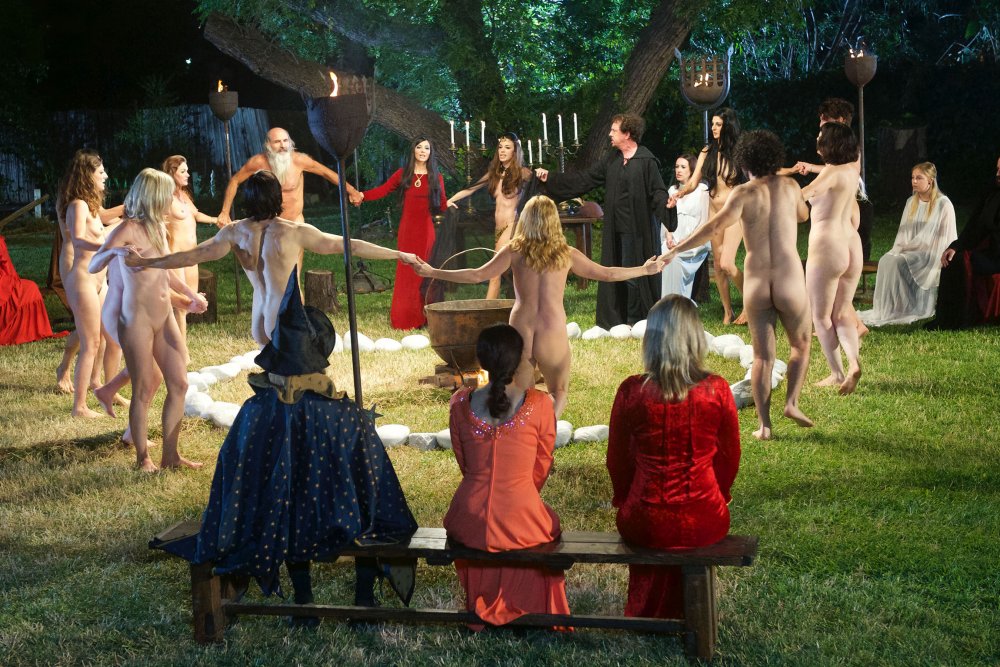
Read about The Love Witch in ‘Not really horror’ highlights: the best of FrightFest 2016
Luke Moody
Director of film programming, Sheffield Doc/Fest, UK
Komunia Anna Zamecka
Best of Luck with the Wall Josh Begley
Tempestad Tatiana Huezo
You Have No Idea How Much I Love You Paweł Łoziński
The Human Surge Eduardo Williams
I’m quite weary of the annual headlines pronouncing a golden age of documentary, but this year was definitely an age of confidence in the nonfiction scene. Over the past five years, faith from both funders and festivals (emerging and established alike) to support and show formally inventive documentary cinema has bolstered the confidence of filmmakers to explore the way we experience realities.
This year has seen a wave of formally rigorous films, both short and long, finding audiences globally. The likes of Behemoth, Cameraperson, The Illinois Parables and The Prison in Twelve Landscapes have broken into the main programmes of festivals that only a few years ago would have overlooked or sidelined them. Theatrical distribution for these films remains difficult, but I’m hoping more adept and artisanal services emerge to take risks serving a broadened nonfiction audience both theatrically and digitally.
My selection of five films is more of a cake slice than a ‘best of 2016’. It shows the dense abundance of reality that we occupy as a narrative source, from data to diaries, and the pictorial and temporal frames through which these layered sources can be represented on screen.
Kim Morgan
Writer/programmer, USA
The Lobster Yorgos Lanthimos
Moonlight Barry Jenkins
The Handmaiden Park Chan-wook
Hail, Caesar! Joel Coen, Ethan Coen
Green Room Jeremy Saulnier
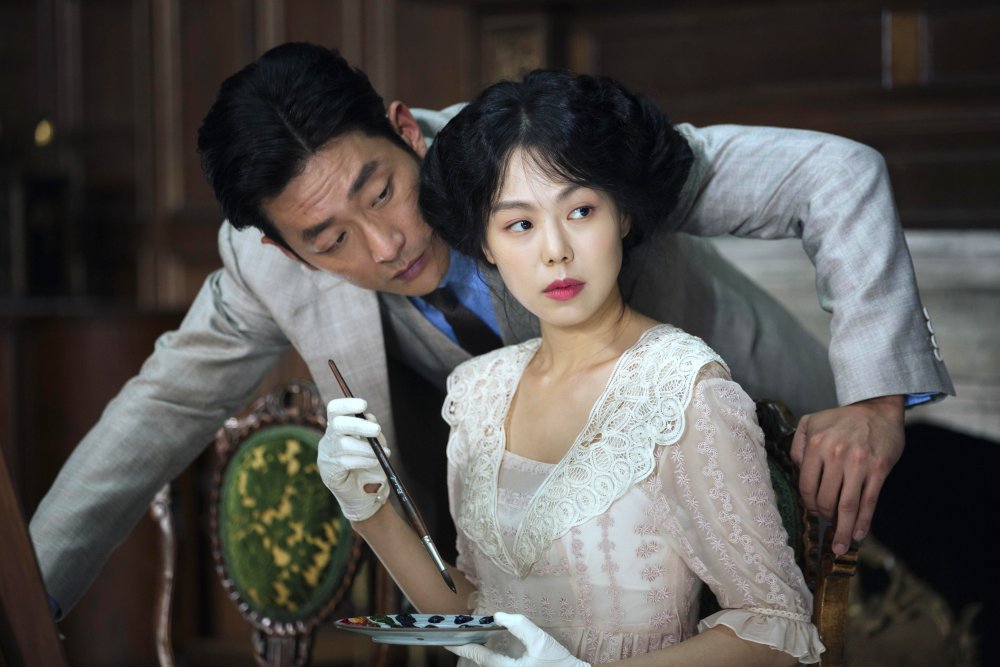
Read our first-look The Handmaiden review
Kate Muir
Chief film critic, the Times, UK
Manchester by the Sea Kenneth Lonergan
Fire at Sea (Fuocoammare) Gianfranco Rosi
Moonlight Barry Jenkins
American Honey Andrea Arnold
Toni Erdmann Maren Ade
Lisa Mullen
Freelance, UK
Kubo and the Two Strings Travis Knight
Rams Grimur Hakonarson
Victoria Sebastian Schipper
Mapplethorpe Fenton Bailey and Randy Barbato
Tallulah Sian Hader
Marco Muller
Director, International Film Festival and Awards Macao S.A.R. Macao, China
Kaili Blues Bi Gan
Midnight Special Jeff Nichols
Toni Erdmann Maren Ade
Personal Shopper Olivier Assayas
Julieta Pedro Almodóvar
Nasreen Munni Kabir
Documentary filmmaker/author, UK
I, Daniel Blake Ken Loach
Aligarh Hansal Mehta
The Childhood of a Leader Brady Corbet
The Revenant Alejandro González Iñárritu
Elle Paul Verhoeven
I would have liked to have seen La La Land for 2016, but it won’t be released til December in India, where I currently am.
Lynda Myles
Independent producer/head of fiction directing, National Film and Television School, UK
American Honey Andrea Arnold
Hell or High Water David Mackenzie
Under the Shadow Babak Anvari
Things to Come (L’Avenir) Mia Hansen-Løve
Mimosas Oliver Laxe
In terms of television drama, the highlight was Richard Price and Steven Zaillian’s The Night Of, with brilliant writing and stunning performances by Riz Ahmed and John Turturro.
Adam Nayman
Contributing editor, Cinema Scope, Canada
Sieranevada Cristi Puiu
Toni Erdmann Maren Ade
Dusty Stacks of Mom Jodie Mack
The Death of Louis XIV Albert Serra
Elle Paul Verhoeven
In four of the five films I’ve chosen above, literal and figurative father figures are either decayed, dead or dying; the fifth is a hymn to maternal endurance. Themes of inheritance seem appropriate for a year in which major political outcomes in the UK and the US saw nations – and the family units that make them up – divided bitterly along generational lines.
At first glance, Cristi Puiu’s Sieranevada is merely a skilful, funny variation on a familiar kind of movie: one where parents and children get together and bicker over dinner. But at its core, Sieranevda is a film analysing what it means to grow up believing in living-room myths and legends, and the discomfiting mix of terror, disappointment and guilt at realising that being an adult means propagating them at the risk of losing face.
The heroines of Toni Erdmann and Elle, meanwhile, bridle hard against their daddy issues, and choosing between Sandra Huller’s serious comic genius and Isabelle Huppert’s hilariously hard-edged brilliance is impossible (although the Cannes jury solved the problem by somehow citing neither).
The most lasting image of the year for me, though, is Jean-Pierre Léaud as Louis XIV, an icon playing an icon, sitting paralytically on death’s doorstep in neither bravery nor cowardice but rather a simple, weary understanding as the men around him seek to delay and obfuscate. Heavy is the head that wears the crown, and in the end, all too stupidly human as well: a thought that gives little comfort to those thrown into despair by the election of a new, prematurely ghoulish and desiccated American Sun King. With this in mind, there was no more terrifyingly funny line in 2016 cinema than Albert Serra’s capper: “We’ll try to do better next time.”
Christina Newland
Journalist, UK
Mustang Deniz Gamze Ergüven
Mustang had to be at number one for me this year. It depicts the turmoil of a world that forces young girls to feel guilty merely for existing within their growing bodies – and the terrible psychic wounds that patriarchal communities inflict on their young. Ergüven has a visual preoccupation with the sisters at play and at rest in a tangle of limbs and hair; sisterhood as this physical extension of one another. It’s a beautifully rendered, subtle film about the confusion and heartbreak of girlhood in oppressive circumstances.
Chi-raq Spike Lee
Chi-raq is a riotously over-the-top borderline masterpiece – not the film Chicago wanted, but the one it needed. Just a chaotic, wonderfully bizarre gambit – some kind of hybrid of sex comedy, musical, and Greek tragedy, with searing contemporary relevance. Samuel L. Jackson’s narration – and John Cusack’s hair-raising pulpit monologue – have to be seen to be believed.
Creed Ryan Coogler
Propulsive, thrilling, emotionally engaging sports drama. A star is born in Michael B Jordan. A Hollywood sequel/de facto remake done perfectly, seeing Sly Stallone bow out gracefully and poignantly.
La La Land Damien Chazelle
Gushing, romantic, open-hearted fantasy the likes of which we rarely get in contemporary cinema.
Queen of Earth Alex Ross Perry
A throwback to the ‘hysterical-women-trapped-in-confined-spaces’ sub-genre – from Repulsion to Persona. Queen of Earth is pure feminine psychodrama, with a ‘big’ woman-on-the-edge performance from a stellar Elisabeth Moss.
Honourable mentions: in television, Orange is the New Black and Louis C. K.’s web-series Horace + Pete. On film, Lemonade!
Kim Newman
Writer, UK
Love & Friendship Whit Stillman
The Childhood of a Leader Brady Corbet
The Love Witch Anna Biller
Under the Shadow Babak Anvari
Evolution Lucile Hadzihalilovic
…looking at my choices, I see I was especially impressed this year by films by and about women.
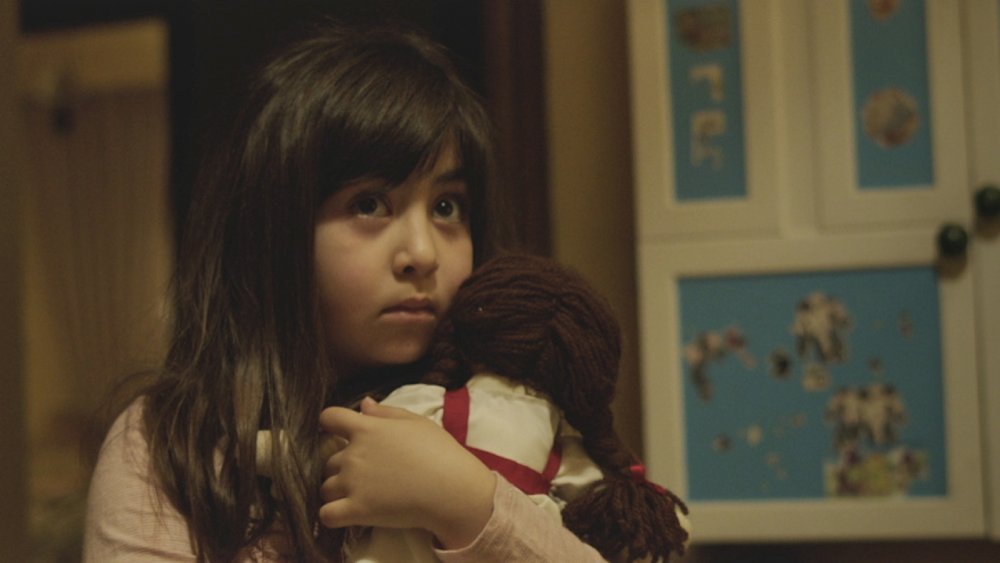
Under the Shadow (2016)
Ben Nicholson
Film critic, UK
Moonlight Barry Jenkins
The Illinois Parables Deborah Stratman
Aquarius Kleber Mendonça Filho
Cameraperson Kirsten Johnson
Personal Shopper Olivier Assayas
Spectres of one kind or another seem to haunt my list this year as well as the films that were circling it until the final cut. In some instances they manifest around places: the buried state histories of Deborah Stratman’s demanding and hypnotic The Illinois Parables; the challenge to our shared remembrance of the Holocaust via our interactions with concentration camps in Sergei Loznitsa’s Austerlitz; the stark beauty and underlying terror of abandoned civilisation in Nikolaus Geyrhalter’s Homo Sapiens; the tactile physical memory of a beachfront apartment block in Kleber Mendonça Filho’s Aquarius; the recovered celluloid that re-animated a Gold Rush boomtown in Bill Morrison’s found footage documentary Dawson City: Frozen Time.
In other cases the phantoms are more personal: the enduring moments, constructed from re-edited outtakes, of a life behind the lens in Kirsten Johnson’s exceptional, thought-provoking Cameraperson; the uncanny cold sweat of Olivier Assayas’ 21st century ghost story-cum-millennial identity crisis, Personal Shopper; the all-but-forgotten Christine Chubbuck who was the subject of Robert Greene’s vital, knotty hybrid-doc Kate Plays Christine and Antonio Campos’ riveting fiction, Christine.
In a strong year, the standout cinematic experiences were the full 332 minutes of Kevin Brownlow’s painstaking restoration of Abel Gance’s glorious Napoleon with Carl Davis’ rousing score performed live by the Philharmonic Orchestra, and the wonderful restoration of an all-time favourite in Akira Kurosawa’s Ran. Besides the peerless Moonlight, other new releases worthy of mention include: Park Chan-wook’s The Handmaiden, in which masculine perversions are overthrown by gender revolution; Kelly Reichardt’s Certain Women, the quotidian struggles of four Montana women; Maren Ade’s much-beloved shaggy-dad-tale, Toni Erdmann; Pablo Larrain’s noirish literary farce, Neruda; and, to bring it back full circle, the ghost of glamorous, romantic Hollywood musicals, Damien Chazelle’s heart-melting La La Land.
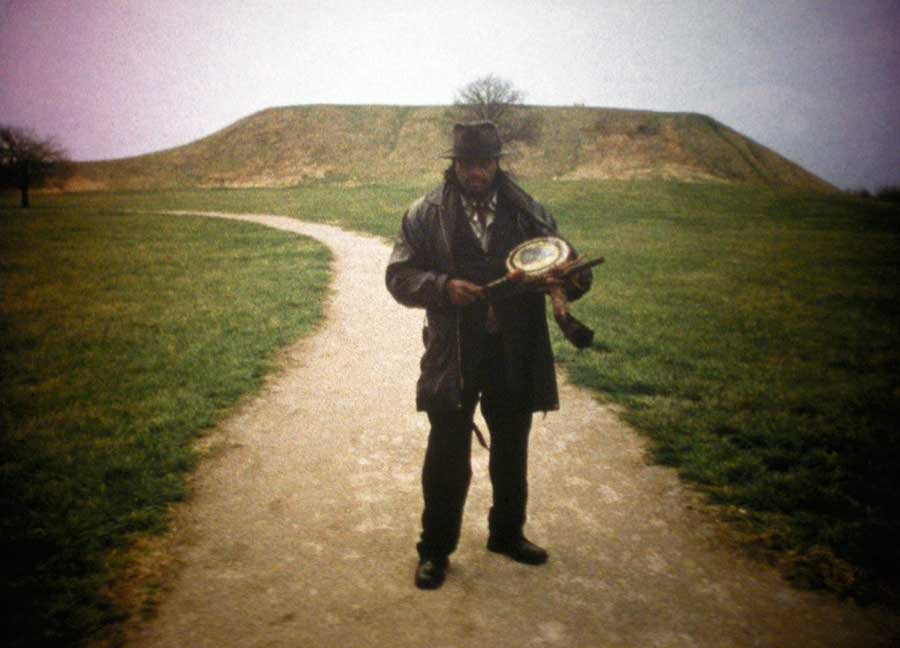
Read The Illinois Parables: Deborah Stratman on her histories of the land
Top films by female directors
Toni Erdmann 48 votes
Certain Women 25 votes
American Honey 20 votes
Things to Come (L’Avenir) 15 votes
Cameraperson 10 votes
Evolution 7 votes
Raw 6 votes
Baden Baden 5 votes
The Dreamed Path 5 votes
The Illinois Parables 5 votes
The Love Witch 5 votes
Michal Oleszczyk
Critic and artistic director, Gdynia Film Festival, Poland
Sieranevada Cristi Puiu
The Last Family Jan P. Matuszynski
Bone Tomahawk S. Craig Zahler
Knight of Cups Terrence Malick
10 Cloverfield Lane Dan Trachtenberg
Ania Ostrowska
Film editor, The F-Word (www.thefword.org.uk), UK
Cameraperson Kirsten Johnson
Certain Women Kelly Reichardt
Sonita Rokhsareh Ghaem Maghami
Baden Baden Rachel Lang
Sworn Virgin Laura Bispuri
Kirsten Johnson’s Cameraperson blew my mind when I saw it at this year’s Sheffield Doc/Fest, or rather it expanded my mind to look beyond the obvious focus on the documentarian’s ethical conduct or the role of cameraperson in documentary filmmaking (Johnson’s term of choice, which she prefers to cinematographer). At the risk of uttering a total cliché, I see this film as being about the human condition (here, I said it: see it if you haven’t yet).
Another documentary on my list, Rokhsareh Ghaemmaghami’s Sonita, pushes more traditional boundaries of documentary filmmaker’s intervention into her subjects’ lives, but pushes them really far. Unsurprisingly, both films were recognised in Sheffield, winning Grand Jury (Cameraperson) and Youth Jury (Sonita) awards.
Three fiction filmmakers I have chosen tell their stories of certain women in ways which are masterfully accomplished (Reichardt), quietly transgressive (Bispuri) and bittersweet hilarious (Lang).
Hoping that Sight & Sound poll will be incorporating new categories in the future, I cast my early vote on the best virtual reality experience I’ve lived through this year: Notes on Blindness: Into Darkness, an immersive VR project accompanying an excellent documentary, Notes on Blindness by Peter Middleton and James Spinney, with Jo-Jo Ellison as one of the producers.
Michael Pattison
Critic, UK
The Illinois Parables Deborah Stratman
Sarah Winchester, Ghost Opera Bertrand Bonello
Scarred Hearts Radu Jude
Answer Print Mónica Savirón
Protect Yourself Patrick Brian Smith
“IT’S NOW TIME TO TURN OFF THE GOVERNMENT”
– Graz graffito, 12 March 2016
Andrea Picard
Film curator, TIFF, Canada
Sieranevada Cristi Puiu
The Death of Louis XIV Albert Serra
The Dreamed Path Angela Schanelec
Nocturama Bertrand Bonello
Certain Women Kelly Reichardt
Nina Power
Senior lecturer, UK
American Honey Andrea Arnold
John Powers
Critic, Vogue, USA
Toni Erdmann Maren Ade
Moonlight Barry Jenkins
The Handmaiden Park Chan-wook
20th Century Women Mike Mills
O.J.: Made in America Ezra Edelman
James Quandt
Curator/critic, Canada
From the Branches Drops the Withered Blossom Paul Meyer
Sieranevada Cristi Puiu
The Death of Louis XIV Albert Serra
The Ornithologist João Pedro Rodrigues
Ma’ Rosa Brillante Mendoza
The film event of the year was the complete retrospective of the films of Jean-Marie Straub and Danièle Huillet at the Museum of Modern Art, New York.
Rachael Rakes
Programmer at large, Film Society Lincoln Center, USA
Certain Women Kelly Reichardt
Toni Erdmann Maren Ade
A Magical Substance Flows into Me Jumana Manna
Oleg and the Rare Arts Andres Duque
O Futebol Sergio Oksman
Naman Ramachandran
Critic, UK/India
The Neon Demon Nicolas Winding Refn
I, Daniel Blake Ken Loach
Toni Erdmann Maren Ade
Your Name Makoto Shinkai
A Billion Colour Story Padmakumar Narasimhamurthy
Despite it being an annus horribilis due to some unexpected world events, it has been an extraordinary year for cinema with a wide range of highlights. Beginning with the visually astonishing The Neon Demon; to the sheer difficulty of watching I, Daniel Blake in post-Brexit UK; to the warm and humorous character study that is Toni Erdmann; rounded off with the sheer humanism of Your Name and A Billion Colour Story, it feels like we’ve seen it all this year. The icing on the cake was of course travelling the world, beginning with Sundance, with a film that I wrote and executive produced, Brahman Naman, and getting photobombed by Werner Herzog in the process. I’d happily live this year again, minus the aforementioned world events and the deaths of some of my childhood icons.
Kiva Reardon
Founding editor, cléo journal, Canada
Moonlight Barry Jenkins
Toni Erdmann Maren Ade
Divines Houda Benyamina
I Am Not Your Negro Raoul Peck
Hello Destroyer Kevan Funk
I never know how to summarise a year, and especially not this one, which has felt so utterly filled with hate and sadness. All I can say is that these films – which range from moving humanist drama (Moonlight), to comedy (Toni Erdmann), to inspirational first features (Divines, Hello Destroyer), to resonant documentary (I Am Not Your Negro) – didn’t just move me, but forced me to engage with the world in a deeper way. They were not an escape from reality, but a foray into engaging with it. Ultimately, this is the best thing that art can do.
Kong Rithdee
Critic (the Bangkok Post), Thailand
Mimosas Oliver Laxe
A parable about a human quest through the landscape of God and the devil, with a Sufi prophet/Moroccan Don Quixote as guide. What’s most remarkable is how time and space are flipped in and out, as only cinema and Arab raconteurs can.
The Ornithologist João Pedro Rodrigues
A fevered reverie, beginning as a National Geographic showreel and morphing with rugged elegance into a fable of erotic transcendence. The canonisation of a saint as a sexual pilgrimage through the haunted Portuguese woods.
The Woman Who Left Lav Diaz
President Duterte or not, senseless deaths on the street or not, Lav Diaz never tries to catch a rabbit – he always goes for the dragon in its lair. The theme is big: humanity, guilt, crime, punishment, injustice, despair – the Filipino despair, or maybe the Southeast Asian despair, drenched in sweat and blood of the common man. In this film what moves us even more is the possibility of mercy, compassion, even grace, struggling to blossom like a flower in hell.
Toni Erdmann Maren Ade
Funny, touching, crazy, clever, it is also an honest, brutal study of family, sexism, and how work and the passion for professionalism affects our humanity.
Elle Paul Verhoeven
A gloriously disturbing black comedy about rape. Verhoeven and Huppert walk on a razor blade and it’s so electrifying and maddening to see them flirt with the danger of immorality and cinematic convention, and emerge unscathed.
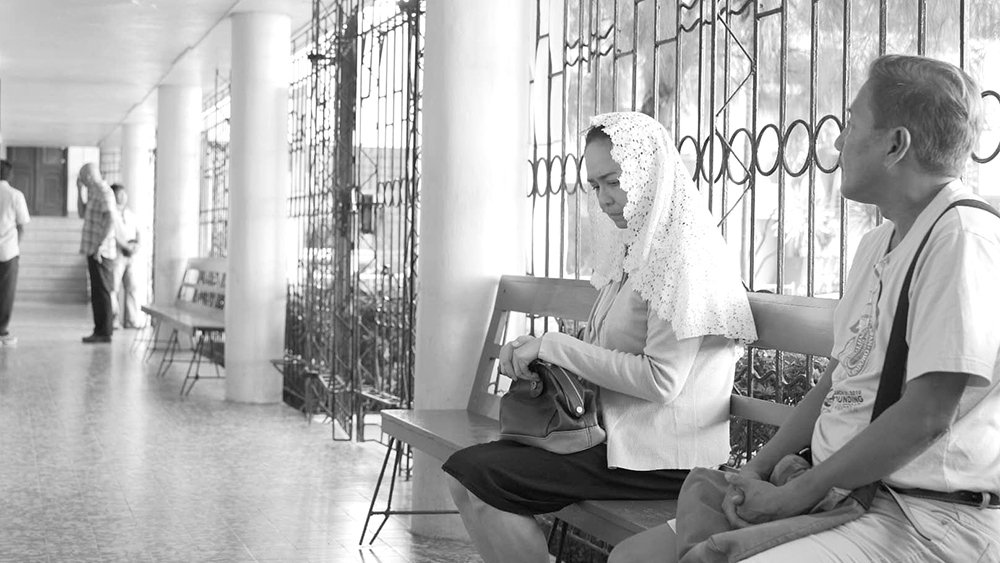
The Woman Who Left (2016)
Vadim Rizov
Managing editor, Filmmaker Magazine, USA
Everybody Wants Some!! Richard Linklater
Manchester by the Sea Kenneth Lonergan
Certain Women Kelly Reichardt
Yourself and Yours Hong Sang-soo
Things to Come (L’Avenir) Mia Hansen-Løve
This is a list of subjective absolute favorites based on the date of their world premiere. That means that there are certain films I don’t love as much that I nonetheless esteem quite highly and which need advocacy.
One is Bertrand Bonello’s Nocturama, a real work of art whose uncomfortable political conclusions have made it harder to see than necessary – speaking from a provincial American perspective, it has not played NYC officially, and US distribution has yet to be acquired. This is cowardice and de facto censorship.
Another is Eduardo Williams’ truly radical and new The Human Surge, another undistributable film in the most honorable sense.
Though it premiered in 2015, Roberto Minervini’s The Other Side (which appears to have only had theatrical runs starting in 2016) is both startlingly formally accomplished and a rarely insightful film on angry, economically dispossessed white Americans at the nexus of severe drug abuse, racism and anti-government paranoia – it’s essential, explanatory viewing for the vile Trump era.
My favorite short of the year is Ismaïl Bahri’s Foyer, which brings the open-minded wonder of Kiarostami’s Where Is The Friend’s Home to an avant-garde project that, visually, is pure colours. It’s an ideal potential intro to the a-g.
Adam Roberts
Curator/filmmaker, UK
The Death of Louis XIV Albert Serra
But Elsewhere is Always Better Vivian Ostrovsky
The Airport John Akomfrah
Sieranevada Christi Puiu
Madame de… Max Ophüls
All lists are provisional, but this one includes variety at least. The Albert Serra film shown at the London Film Festival was an incredible delight, an unexpected and inventive response to constraint, and a chance for actors to show what they could do with not much at all, and what they could do was very good.
The Akomfrah took its lead from Angelopoulos, and perhaps others, to find new rhythms, rhymes and forms. The three-screen installation at Lisson Gallery was a wonderful experience.
Gaumont restored Madame de… in 2012 but seeing it this year for the first time was a cinema highlight. A treasure for all times. When our extinct culture is discovered and the archaeological remains raked over by alien archaeologists I hope this is what they find.
Sieranevada is another triumph over constraint – filmed almost entirely from a corridor in a cramped and crowded apartment in a humble part of the world. All is laid bare by a superb filmmaker who continues never to put a foot wrong.
Finally, Vivian Ostrovsky was a life-long friend to Chantal Akerman and put together this short ten-minute homage, which includes some truly wonderful home video of Akerman at ease, at play and very much alive. A Nos Amours was able to show it as a curtain lifter for the After Chantal Conference at the University of Westminster at the end of this year. Akerman’s passing is surely a tragedy, since her intelligent compassion is now removed from a world so in need of even a shred of intelligence let alone compassion.
Selina Robertson
Film curator and writer, UK
Chevalier Athina Rachel Tsangari
No Home Movie Chantal Akerman
American Honey Andrea Arnold
Baden Baden Rachel Lang
Bridget Jones’s Baby Sharon Maguire
2016 was the year of the woman and so on this occasion it was important for me to focus in on five outstanding films made by female filmmakers at various stages of their careers. An honourable queer mention must go to Cemetery of Splendour by Apichatpong Weerasethakul. My festival highlights were listening to Lizzie Borden tells us about the making of Born in Flames at the London Film Festival and Donna Deitch present Desert Hearts at BFI Flare. My film season highlights were Dissent and Disruption: The Complete Alan Clarke at the BFI and Laura Mulvey & Peter Wollen: Beyond the Scorched Earth at the Whitechapel and Catherine Breillat discuss Fat Girl during the Barbican’s brilliant Cheap Thrills season. Finally, my feminist cinema discovery of the year was Losing Ground (1982) by Kathleen Collins, one of the first African-American women to direct a feature film that screened at BFI’s Woman with a Movie Camera season with an exceptional panel discussion.
Tim Robey
Critic, Daily Telegraph, UK
Paterson Jim Jarmusch
Moonlight Barry Jenkins
Toni Erdmann Maren Ade
Certain Women Kelly Reichardt
Aquarius Kleber Mendonça Filho
Chris Robinson
Writer and artistic director of Ottawa International Animation Festival, Canada
Before Love Igor Kovalyov
Impossible Figures and Other Stories II Marta Pajek
Louise en Hiver Jean-Francois Laguionie
Psychonauts, the Forgotten Children Rivero Pedro & Vãzquez Alberto
Datum Point Ryo Orikasa
Forget live-action folks, indie animation is where you’ll find heart, soul, humanity – warts and all.
Chloe Roddick
Programmer, Morelia International Film Festival, Mexico
La La Land Damien Chazelle
Raw Julia Ducournau
American Honey Andrea Arnold
Bellas de noche (Beauties of the Night) María José Cuevas
The Transfiguration Michael O’Shea
Nick Roddick
Journalist and critic, UK
I, Daniel Blake Ken Loach
Le Ciel Flamand Peter Monsært
Sully Clint Eastwood
Sieranevada Cristi Puiu
The Levelling Hope Dickson Leach
The Hateful Eight would have been No 6 – a major admission from a Tarantinophobe like me. Elsewhere, the barrier between film and television seems increasingly arbitrary, and not just because of the big Netflix Originals: a four-parter such as C4’s National Treasure is a film in all respects – script, direction, camerawork, performances – except means of delivery.
Jonathan Romney
Critic, UK
Toni Erdmann Maren Ade
Scarred Hearts Radu Jude
The Death of Louis XIV Albert Serra
The Woman Who Left Lav Diaz
Midnight Special Jeff Nichols
In any obvious sense, the real film of the year was one that didn’t make my top five, but that spoke painfully and with clarion immediacy about the lamentable state of Tory-run Britain – I, Daniel Blake. I’m implicitly voting for it in my number one choice, Toni Erdmann – since, apart from being a comedy and a very human delight, Maren Ade’s film is also, it shouldn’t be forgotten, an intensely angry political statement about the way that capitalism – and specifically, corporate culture and its languages – disempower, dehumanise and alienate. Both films are conveying the same urgent message, albeit in radically different cinematic languages.
One of my other choices here stands for the two Lav Diaz films I saw in 2016, the other being the flawed, wayward A Lullaby to the Sorrowful Mystery, but my vote for his Venice prize-winner is also a vote for an exemplary continuing adventure in filmmaking as passionate mission. Other films that made 2016 for me included: The Untamed, The Son of Joseph, Personal Shopper, Elle, Fire at Sea, Paterson, Ivo Ferreira’s underrated Letters from War, Nele Wohlatz’s joyously deadpan comedy about language The Future Perfect, Bertrand Bonello’s dazzling if contentious Nocturama, and the first Marvel film I’ve cared about in a long time, Doctor Strange – which, like Jeff Nichols’s Midnight Special, represented a vote of faith in the screen possibilities of the digital sublime.
Jonathan Rosenbaum
Freelance writer, blogger and teacher, USA
The Day Before the End Lav Diaz
Everybody Wants Some!! Richard Linklater
Aragane Oda Kaori
Paterson Jim Jarmusch
The Death of Louis XIV Albert Serra
The first on my list, a short, I caught at the estimable Filmadrid; the third, a documentary by a former FilmFactory student of mine, I saw via a Vimeo link. Worthy runners-up would include João Nicolau’s John From, Barry Jenkins’s Moonlight, Whit Stillman’s Love & Friendship and Kurosawa Kiyoshi’s Journey to the Shore – and perhaps certain other contenders I haven’t yet caught up with.
Shelagh Rowan-Legg
Contributor, Spain
Toni Erdmann Maren Ade
Raw Julia Ducournau
Moonlight Barry Jenkins
The Untamed Amat Escalante
The Girl with All the Gifts Colm McCarthy
Sukhdev Sandhu
Associate professor, New York University, USA
Arena: Night and Day Anthony Wall & Emma Matthews
John Berger or The Art of Looking Cordelia Dvorak
Blackstar Johan Renck
Notes on Blindness Pete Middleton, James Spinney
The Safe House: A Decline of Ideas Greta Bellamacina
It’s been a year of collapsing architecture, buckled democracy, regime change. Political cartographies have been scrambled. Landscapes I once knew have been razed or ruined. I’ve found myself thinking about the filmic environment in which I grew up, about aesthetic languages that once but no longer flourished, about the funding – and even moral – infrastructures that allowed me to get a movie education for free.
My two highlights were a dawn-to-dawn screening in New York of Arena: Night and Day, a 24-hour remix of the pioneering BBC arts programme – steered by Anthony Wall – that, as a teenager, introduced me to Genet, Burroughs, Louise Bourgeois and countless other foundational figures. It was durational but without longueurs, mordant and moving, an installation piece that rechoreographed the original series and realigned the city in which it was being staged. People drove from Pittsburgh to catch the 6am, Saturday beginning. A common refrain: “This was shown on public TV?” There was laughter, awe and sustained engagement with the visual grammar of a programme whose existence today’s BBC barely seems to acknowledge. At 6am on Sunday, exhausted but euphoric, a band of remainers raised a glass of champagne to the ghost of public culture.
My other highlight was Peter Wollen and Laura Mulvey: Beyond The Scorched Earth of Counter-Cinema, an Oliver Fuke-curated retrospective at East London’s Whitechapel Gallery that exhumed and reframed an incredible body of theory films, steeped in but also soaring beyond the semiotic struggles of the 1970s, which was retinally and intellectually dazzling, sonically mysterious and often (no one ever says this) very funny. This was cinema, made in an era of austerity and downturn, that stared down miserabilism and believed in the possibility of possibility. That’s an achievement worth dwelling upon right now.
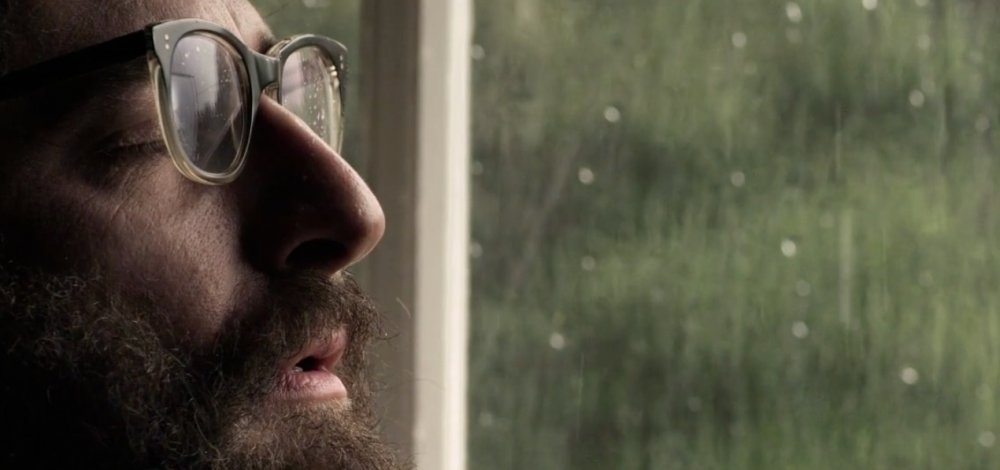
Notes on Blindness (2016)
Jasper Sharp
Author, curator and co-director of The Creeping Garden, UK
Harmonium Koji Fukuda
Creepy Kiyoshi Kurosawa
Anomalisa Charlie Kaufman & Duke Johnson
Mina Walking Yosef Baraki
HyperNormalisation Adam Curtis
There have been some wonderful films released across the world this year – too many to do justice to in a list such as this – but I’m particularly excited to see a return to form from Japanese filmmakers after a fallow period of some years now (my sixth choice would have been Tatsuya Mori’s riveting documentary Fake, about the disgraced ‘deaf’ composer Mamoru Samuragochi who, it transpired, was not deaf after all).
My main gripe is that many of the standout releases from Asia in general, and Japan in particular, have been by established directors of an auteurist bent and those that have been fortunate to get UK distribution have been acquired after premieres at European festivals – UK audiences’ exposure to Asian cinema is very much filtered through the tastes of programmers at festivals such as Berlin or Cannes, and there appears no scope nor any will for any new discoveries to be made outside of this framework.
While I’ve attempted to restrict the focus of my top five to those films readily availably for viewing in the UK, my own work as a curator of Asian film means that, in my search for premieres and new talent, I get to see a lot of films that will never have this privilege. For this reason, I have flagged up the immensely powerful Mina Walking, the debut feature of 25-year-old Afghan-Canadian director Yosef Baraki, which depicts life in contemporary Kabul through the eyes of its 12-year-old protagonist, and pose the question: why hasn’t a film of this quality and relevance to today’s world picked up any distributor interest or critical attention in this country?
Meenakshi Shedde
South Asia consultant, Berlin and Dubai Film Festivals; India curator to the BFI, India
The Salesman Asghar Farhadi
In the Last Days of the City Tamer El Said
Cold of Kalandar Mustafa Kara
Dark Wind Hussein Hassan
A Death in the Gunj Konkona Sensharma
Melissa Silverstein
Founder and publisher, Women and Hollywood, USA
Divines Houda Benyamina
Toni Erdmann Maren Ade
Things to Come (L’Avenir) Mia Hansen-Løve
The 13th Ava Duvernay
Queen of Katwe Mira Nair
Leigh Singer
Film journalist/programmer/video essayist, UK
Toni Erdmann Maren Ade
La La Land Damien Chazelle
Moonlight Barry Jenkins
The 13th Ava DuVernay
Hail, Caesar! Joel Coen & Ethan Coen
In a year of social and cultural hammer blows, a measure of relief and inspiration in these clear-eyed, often radical visions of personal and political engagement, artistic daring, twisted humour, cathartic song and dance and generous compassion. Would that it were so simple offscreen too.
Anna Smith
Film critic and broadcaster, UK
The Keeping Room Daniel Barber
Manchester by the Sea Kenneth Lonergan
Victoria Sebastian Schipper
The Girl with All the Gifts Colm McCarthy
Your Name Makoto Shinkai
One of my most significant film experiences this year was watching Ghostbusters, not because it was an exceptionally good film (it wasn’t), but because it was thrillingly groundbreaking: a mainstream non-romantic comedy sci-fi starring women. Growing up in the 80s my movie heroes were the male Ghostbusters, Marty McFly, Ferris Bueller; I’m pleased that the kids of 2016 have more diverse options.
Another notable film was Equity, a female-focused Wall Street drama. Like Ghostbusters, I haven’t included it in my top five for quality reasons, but both made an impact on me this year, even if Hollywood has a long way to go in terms of representations of women.
A film that did get it right was The Keeping Room, Daniel Barber’s overlooked western starring Brit Marling and Hailee Steinfeld joining forces with their slave (the excellent Muna Otaru) in the brutal last days of the Civil War. I’ve chosen to highlight this in the hope that more people will discover it.
I’d like to add honourable mentions for films exploring another of the year’s most enduring themes: escape into the wilderness. Hunt for the Wilderpeople, Swallows and Amazons, Pete’s Dragon and Captain Fantastic, I salute you. “Power to the people, stick it to the man!”
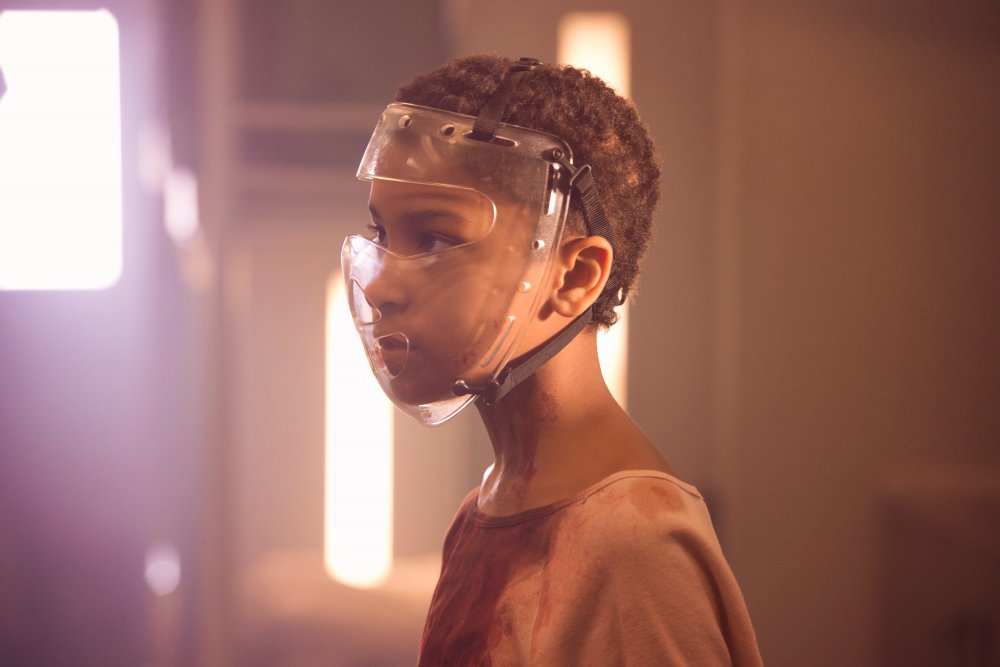
The Girl with All the Gifts (2016)
Read our The Girl with All the Gifts review
Farran Smith Nehme
Writer, USA
Love & Friendship Whit Stillman
Hell or High Water David Mackenzie
Moonlight Barry Jenkins
O.J.: Made in America Ezra Edelman
Elle Paul Verhoeven
Paul Julian Smith
Professor, USA
7:19 am Jorge Michel Grau
Julieta Pedro Almodóvar
Arrival Denis Villeneuve
La La Land Damien Chazelle
Moonlight Barry Jenkins
This Is Us (NBC, 2016) is the kind of smart, moving, adult drama that used to be found in US independent cinema but has now found a happy home on network TV.
Fernanda Solorzano
Critic, Mexico
Elle Paul Verhoeven
La La Land Damien Chazelle
Jackie Pablo Larraín
Beauties of the Night María José Cuevas
Sand Storm Elite Zexer
Although it’s just a coincidence, four of my five picks portray unconventional women who defy expectations (and shock a few in the process). The most extreme is Verhoeven’s Elle, in which revenge and sexual fantasies play inside a woman’s head after she’s brutally raped. She’s played by Isabelle Huppert, whose ambiguous approach to loaded roles has become a film genre in itself.
Also unexpected is Pablo Larraín’s Jackie, an unsettling deconstruction of the mythic first lady that shows her journey from being a wife with pedigree to becoming the moral core of a nation devastated by grief.
María José Cuevas’s first documentary Beauties of the Night also deals with drastic evolutions: it tells the story of five women who were Mexico’s top showgirls during the 70s and 80s, and eventually faced some kind of downfall. Cuevas’s empathetic stance results in an uplifting tale of redemption that gives younger audiences a chance to connect with goddesses from earlier times.
Also an impressive debut, Sand Storm is a meticulously scripted drama about two Bedouin women from different generations dealing with the male imposed customs that define their lives. Israeli filmmaker Elite Zexer eschews melodrama in favour of character construction: in her film, both the women and men are dignified, sensible people who ponder their options and consider the possible outcomes of their actions.
The odd one out in the women-themed group is La La Land, arguably the most dazzling film of the year. Accomplished in every aspect, it’s both a homage to and a rewriting of Hollywood’s classic musicals. While in Whiplash Damien Chazelle explored the dark side of artistic virtue, in his second film he denies his characters a conventional happy ending. Only the harshest cynics will resist this film’s bittersweet charm.
Kate Stables
Critic, UK
I, Daniel Blake Ken Loach
High Rise Ben Wheatley
Hell or High Water David Mackenzie
Kubo and the Two Strings Travis Knight
Things to Come (L’Avenir) Mia Hansen-Løve
Brad Stevens
Film critic, UK
The Assassin Hou Hsiao-hsien
Knight of Cups Terrence Malick
Right Now, Wrong Then Hong Sang-soo
Cemetery of Splendour Apichatpong Weerasethakul
The Hateful Eight Quentin Tarantino
Increasingly, I find that the contemporary films I am drawn to are those in which the narrative exists mostly by implication, but the emotions are crystal clear – a description that applies to four of the five titles on my list.
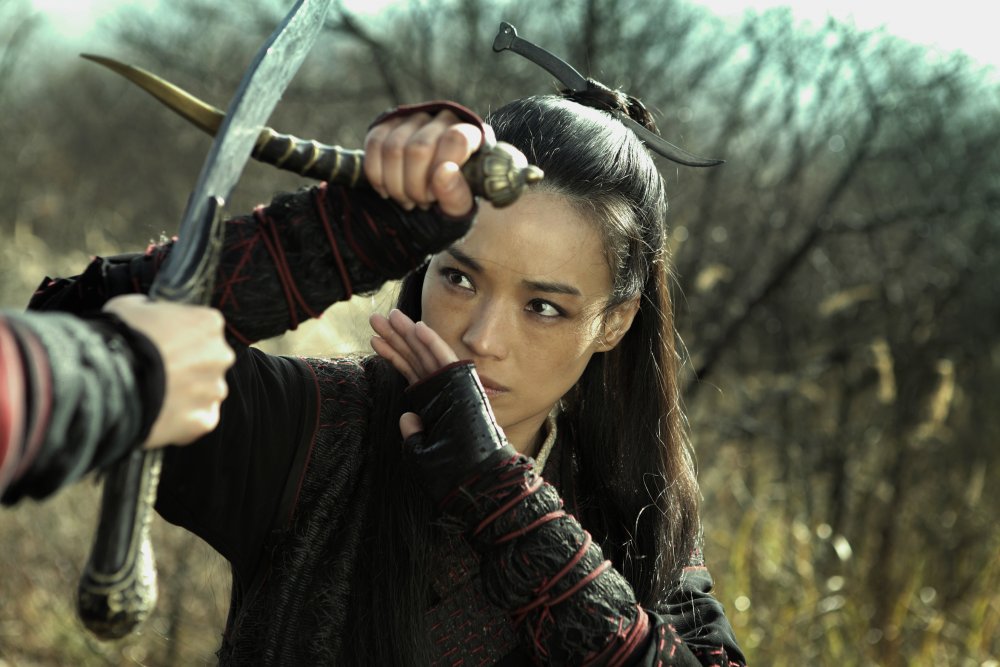
Top 2016 UK releases
Compiled by combining relevant votes cast across our 2015 and 2016 polls
The Assassin 40 votes
Arabian Nights 23 votes
Cemetery of Splendour 23 votes
No Home Movie 21 votes
American Honey 20 votes
Son of Saul 18 votes
I, Daniel Blake 17 votes
Anomalisa 15 votes
Things to Come (L’Avenir) 15 votes
Paterson 14 votes
Evolution 13 votes
Victoria 11 votes
Fire at Sea (Fuocoammare) 11 votes
Julieta 11 votes
Love & Friendship 9 votes
Knight of Cups 8 votes
Heart of a Dog 8 votes
Embrace of the Serpent 8 votes
Room 7 votes
The Witch 7 votes
The Club 7 votes
Everybody Wants Some!! 7 votes
Mustang 7 votes
Hell or High Water 7 votes
Jez Stewart
Curator, UK
High-Rise Ben Wheatley
The Red Turtle Michaël Dudok de Wit
Soft Crash Alan Warburton
Roger Ballen’s Theatre of Apparitions Emma Calder & Ged Haney
Notes on Blindness: Into Darkness Peter Middleton, James Spinney, Amaury La Burthe, Arnaud Colinart
As powerful an experience as the theatrical version of Notes on Blindness was, the virtual reality experience was doubly so. Whether 2016 stands as ‘The Year that VR broke’ (however you wish to interpret this) or not, here is a project that lays down a real marker for its potential to tell meaningful stories – including documentary ones.
Francine Stock
Presenter, Radio 4’s The Film Programme, UK
Things to Come Mia Hansen-Løve
The Club Pablo Larraín
Dheepan Jacques Audiard
The Jungle Book Jon Favreau
Victoria Sebastian Schipper
All of my top five achieve considerable emotional and narrative impact through very different but beautifully executed styles.
It was a year when some of the most highly anticipated films failed to deliver; on the other hand, there were distinctive, memorable pleasures, whether for children, like Zootropolis and Kubo and the Two Strings, or not – like Luca Guadagnino’s A Bigger Splash, Ciro Guerra’s Embrace of the Serpent or Tom Geens’s Couple in a Hole.
Amy Taubin
Critic, USA
Moonlight Barry Jenkins
Toni Erdmann Maren Ade
Everything Else Natalia Almada
I Am Not Your Negro Raoul Peck
O.J.: Made in America Ezra Edelman
Words fail me now, so not a comment but a perhaps necessary clarification: OJ: Made in America is a multi-part documentary. It is not the multi-part TV dramatisation of the O.J. trial, which was also released this year.
Matthew Taylor
Critic, UK
Moonlight Barry Jenkins
Sieranevada Cristi Puiu
Manchester by the Sea Kenneth Lonergan
Certain Women Kelly Reichardt
Toni Erdmann Maren Ade
David Thompson
Film writer/director of arts documentaries, UK
Anomalisa Charlie Kaufman & Duke Johnson
Son of Saul Laszlo Nemes
Cosmos Andzrej Zulawski
Elle Paul Verhoeven
Personal Shopper Olivier Assayas
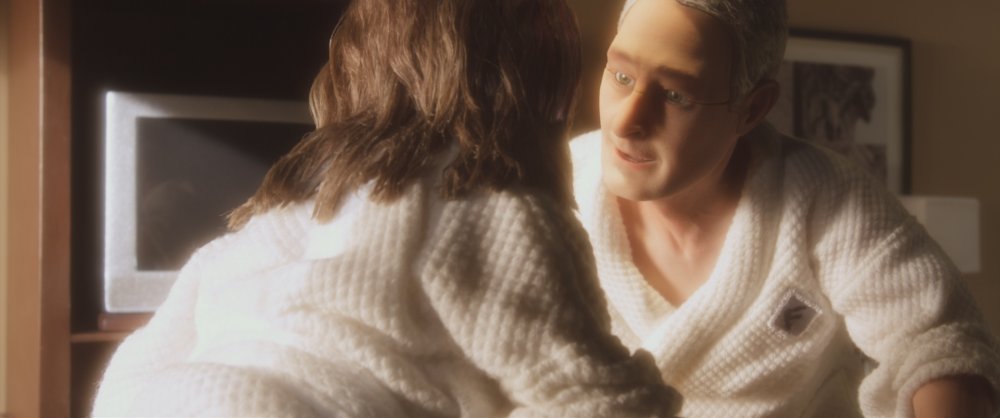
Matthew Thrift
Critic, UK
Knight of Cups Terrence Malick
Certain Women Kelly Reichardt
The Death of Louis XIV Albert Serra
Personal Shopper Olivier Assayas
Dawson City: Frozen Time Bill Morrison
A shared top spot would be cheating, so I’m including Malick’s latest, Voyage of Time: Life’s Journey here as an honourable mention rather than giving him two spots out of my alloted five. His next two, Weightless and Radegund (2017?) can’t arrive soon enough.
Keith Uhlich
Writer/critic, USA
Justin Timberlake + the Tennessee Kids Jonathan Demme
A Quiet Passion Terence Davies
The Neon Demon Nicolas Winding Refn
The Lost City of Z James Gray
Ten Mornings Ten Evenings and One Horizon Tomonari Nishikawa
I limited myself to movies with 2016 timestamps, thus eliminating titles such as Knight of Cups, Cemetery of Splendour and Cosmos (all 2015). The Lodge Kerrigan-Amy Seimetz television series The Girlfriend Experience (2016) also deserves consideration alongside anything released theatrically.
Starting from #5: Tomonari Nishikawa’s short, which I saw in the Toronto Film Festival ‘Wavelengths’ programme, is comprised of several multi-exposure perspectives of bridges along Japan’s Yahagi River. Its tremendously personal vision (fracturing time so as to extend it infinitely) moved me deeply.
#4: James Gray’s period epic about a British explorer (Charlie Hunnam) on an obsessive, lifelong quest (a logline that hardly does this aesthetically and thematically complex film justice) won’t open until 2017 in most markets. But it was a highlight of this year’s New York Film Festival, where I saw it twice in nearly back-to-back screenings (the first DCP, the second 35mm – no especial preference since both versions did justice to Darius Khondji’s gorgeously hazy photography, though it was pleasing to see that slight jitter inherent to celluloid).
#3: The man I took to calling Nicolas Winding Re-no-fun surprised me by making a movie I adore, a thorny tale of competition and cannibalism in the LA modelling industry, in which this oft-inane provocateur’s male gaze is constantly complicated by the efforts of his numerous female collaborators (Jena Malone the goddess among them all).
#2: Terence Davies’s life (and death) portrait of Emily Dickinson (Cynthia Nixon) seems authored in a private language, one great artist paying inimitable homage to another.
#1: I experienced nothing more joyous this year than Jonathan Demme’s concert movie featuring pop idol Justin Timberlake and company during the final, ecstatic performances of their latest tour. I’m not the first to see Demme as a temperamental and aesthetic heir to Jean Renoir; this is most certainly his The Golden Coach.
Noel Vera
Film Critic, Philippines
A Lullaby to the Sorrowful Mystery (Hele sa Hiwagang Hapis) Lav Diaz
Anomalisa Charlie Kaufman & Duke Johnson
The Woman Who Left (Ang Babaeng Humayo) Lav Diaz
Our Little Sister (Umimachi Diary) Hirokazu Kore-eda
The Lobster Yorgos Lanthimos
For world cinema I do what I can to see what I can; as you can see the list is slanted towards late releases in 2015, and what is released on DVD (arthouse cinemas are practically a desert and let’s not even talk about mainstream multiplexes).
I’m pleased to note that Lav Diaz after a relatively fallow period in 2015 has come up with not one but two major works, one set in the crucial period of the Philippine Revolution, the other a contemplative noir, if there is such a creature.
The year has not been a good one generally speaking, but I’m grateful for at least one development: the digital restoration of Mario O’Hara’s Tatlong Taong Walang Diyos, whose story of a woman standing defiant in a country governed by the wrong leaders speaks to us more urgently than ever.
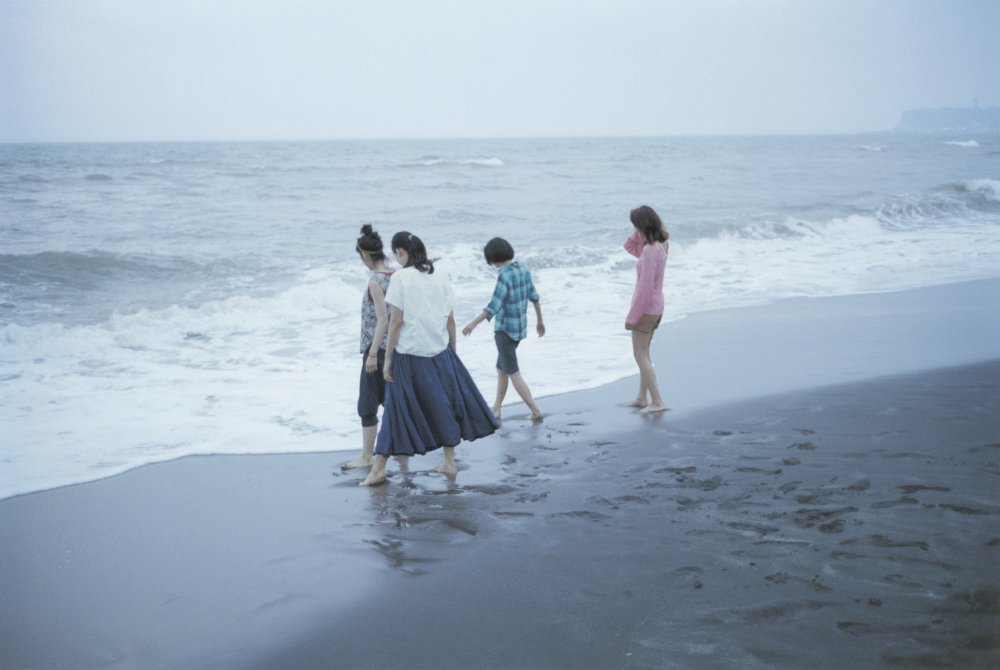
Read our Our Little Sister review
Giovanni Vimercati aka Celluloid Liberation Front
Critic, UK/Italy
Donald Cried Kris Avedisian
Elle Paul Verhoeven
I, Daniel Blake Ken Loach
Jean Ziegler, L’Optimisme de la Volonté Nicolas Wadimoff
Mister Universo Tizza Covi & Rainer Frimmel
In the movie theatre the eye gets used to darkness but also learns how to see through it. May the same apply to the threatening darkness of our times.
Honourable mention: O.J.: Made in America by Ezra Edelman (ESPN)
Ginette Vincendeau
Professor in Film Studies, UK
Merci patron! François Ruffin
Toni Erdmann Maren Ade
The Unknown Girl Jean-Paul and Luc Dardenne
Julieta Pedro Almodóvar
In Bed with Victoria (aka Victoria) Justine Triet
I didn’t do it on purpose but four of my five films this year are portraits of women in a range of genres, from popular comedy (Victoria) to tense drama (The Unknown Girl). The most complex (not an accident) are directed by women. But all have great actresses – my personal Palme d’Or would be shared between Sandra Hüller in Toni Erdmann, Adèle Haenel in The Unknown Girl and Virginie Efira in In Bed with Victoria. Merci patron! is the funniest political film.
The highlight of my cinematic year not to do with recent releases was seeing L’Affaire de la rue de Lourcine (1923) a comedy starring a brilliant young Maurice Chevalier, with live piano, at the wonderful Fondation Jérôme Seydoux-Pathé in Paris.
Thirza Wakefield
Film critic, UK
A Quiet Passion Terence Davies
Everybody Wants Some!! Richard Linklater
Manchester by the Sea Kenneth Lonergan
The Dreamed Ones Ruth Beckermann
I, Daniel Blake Ken Loach
Ghostbusters (Feig), Certain Women (Reichardt), Spotlight (McCarthy), Tale of Tales (Garrone), Midnight Special (Nichols), Hell or High Water (Mackenzie) and Hail, Caesar! (Coens) I also enjoyed enormously, along with the second series of Sally Wainwright’s Happy Valley on British television.
Harriet Warman
Producer and programmer, Alchemy Film & Moving Image Festival, freelance critic, UK
The Love Witch Anna Biller
Heart of a Dog Laurie Anderson
Man Maja Borg
Green Room Jeremy Saulnier
Eldorado XXI Salome Lamas
I’ve chosen the most memorable films of 2016, films that have returned again and again to my thinking about what cinema can be. The utter, brilliant, beauty of The Love Witch, the warmth and honesty of Heart of a Dog, the wit and wryness of Man, the ethics of Green Room and the harsh and remarkable texture of Eldorado XXI. Other pleasures of the moving image this year have included two by Lizzie Borden, Regrouping, accompanied by the excellent day of discussions at EIFF and Born in Flames, so jubilantly presented at LFF, and I must mention my first (and hopefully not last) experience of the moving and thoughtful expanded cinema of Gaëlle Rouard.
Catherine Wheatley
Senior lecturer in Film Studies, King’s College London, UK
Toni Erdmann Maren Ade
Baden Baden Rachel Lang
Wild Nicolette Krebitz
Certain Women Kelly Reichardt
Things to Come Mia Hansen-Løve
Armond White
Critic, National Review & OUT magazine, USA
Being 17 André Téchiné
The President Mohsen Makhmalbaf
Sunset Song Terence Davies
Wiener-Dog Todd Solondz
Batman v Superman: Dawn of Justice Zack Snyder
The decline of criticism is the big news this year. As the Mainstream Media (MSM) befouls itself, fewer and fewer serious film critics are being supported and the public just doesn’t seem to care. The MSM is taken over by cronyism and consumerism. There is no more diversity among cinephiles. Here’s the news that MSM doesn’t report: popular cinema and TV are a wasteland. This era should be a new golden age for art movies. Téchiné, Makhmalbaf, Davies and Solondz are leading the way; Zack Snyder is the only maker of ‘popular’ films who has a vision and sensibility that stirs great feeling and profound thought. The festival circuit and MSM ‘criticism’ promote film culture’s decline. God help us all.
Charles Whitehouse
Film critic, UK
Victoria Sebastian Schipper
Evolution Lucile Hadzihalilovic
Things to Come (L’Avenir) Mia Hansen-Løve
Neruda Pablo Larraín
I, Daniel Blake Ken Loach
Sam Wigley
News and features editor, BFI, UK
Certain Women Kelly Reichardt
Hail, Caesar! Joel Coen & Ethan Coen
Love & Friendship Whit Stillman
Manchester by the Sea Kenneth Lonergan
The Death of Louis XIV Albert Serra
In music, the old guard might have matched the dark days of 2016 blow for blow, with abyss-staring records from Bowie, Shirley Collins, Leonard Cohen and Nick Cave among others, but at the cinema it’s been comedies that have left some of the more lasting impressions on me over the past 12 months. I sat grinning throughout the Coen brothers’ blissful Hollywood pastiche Hail, Caesar!, while Whit Stillman’s venture into Jane Austen territory for Love & Friendship was a welcome tickle of the costume movie’s well-corseted ribs. Rachel Lang’s Baden Baden and Maren Ade’s Toni Erdmann – which finds an unlikely funny-bone amid the central European business world – should really be in my list too. I predict/hope that the latter at least will be championed by other contributors.
But they were nudged out of my final five by three bracing doses of death, heartbreak and misery: Kelly Reichardt’s sublime triptych of the Montana hinterlands, Certain Women; Kenneth Lonergan’s wrenchingly sad (but also very funny) Manchester by the Sea; and Albert Serra’s slyly devastating deathbed (anti)drama The Death of Louis XIV, which contains quite the stillest and most moving death scene I can remember seeing.
Documentaries always seem to get squeezed out when I come to think about favourites, but a word too for Ava DuVernay’s extraordinarily clear-eyed and potent Netflix doc The 13th.
Craig Williams
Programmer and writer, UK
Elle Paul Verhoeven
Personal Shopper Olivier Assayas
Things to Come (L’Avenir) Mia Hansen-Løve
Nocturama Bertrand Bonello
Everybody Wants Some!! Richard Linklater
A brief note on three of my choices.
Paul Verhoeven’s Elle is the best new film I’ve seen since Jean-Luc Godard’s Goodbye to Language in 2014. A precarious, genre-literate provocation framed as a bourgeois-baiting farce, I was staggered by just how subversive and intellectually rigorous it is. It’s also great to see such a bold, transgressive picture in a year where an increasingly censorial attitude has become rife in the cultural discourse.
With Personal Shopper, Olivier Assayas constructs a new gothic aesthetic for the present day. It’s a chronicle of millennial malaise played out as an elusive ghost story, but what really stands out is the way Assayas blurs the lines between physical, digital and spectral spaces. It’s his best film since Irma Vep.
For the past 18 months, a number of films – from Luca Guadagnino’s A Bigger Splash to Gianfranco Rosi’s Fire at Sea – have tackled the notion of the end of Europe. This is also the dominant thread in Bertrand Bonello’s extraordinary Nocturama. Part Godardian provocation, part Rivettian cityscaping, it’s a cold, oblique take on a country – and a continent – in crisis.
My top 10 would also include the Coen brothers’ Hail, Caesar!, Clint Eastwood’s Sully, Mel Gibson’s Hacksaw Ridge, Spike Lee’s Chi-raq, and Kelly Reichardt’s Certain Women.
Jason Wood
Artistic director, HOME, UK
Toni Erdmann Maren Ade
Notes on Blindness Peter Middleton and James Spinney
Certain Women Kelly Reichardt
Moonlight Barry Jenkins
I, Daniel Blake Ken Loach
I regret finding no space for Embrace of the Serpent, A Quiet Passion or Fire at Sea. I found this a strong year for UK cinema with I Am Belfast, Couple in a Hole, Prevenge, Lady Macbeth, The Ghoul, Norfolk and The Survivalist impressing. Loach’s I, Daniel Blake is perhaps the most important film of the year in relation to the situation in a post-Brexit Britain. The fact that it has connected so powerfully with audiences is a tonic for the soul.
One of the things that excited me most this year was the rise of independent programming initiatives and the work done by the likes of Wonder Women, Come the Revolution and Club des Femmes, to name but three. The desire to see a diverse range of cinema on our screens would seem to be thriving.
Neil Young
Journalist/programmer, UK
We’ll Go to Neuilly, Inshallah (On ira a Neuilly, inch’Allah) Mehdi Ahoudig & Anna Salzberger
Autumn (Herbst) Meinhard Rauchensteiner
The French Road, Detroit MI Arthur Summereder
One Hundred and Fifty Years of Life (Yi bai wu shi sui de sheng huo) Liu Yu
Spotlight Tom McCarthy
2016: year of the unedifying spectacle. Brexit in the UK, Trumpism in the US, Turkey’s dissent-crackdown, Brazil’s five-ring circus of vicious inequality, Russia’s hydra-headed poisoning of the global body-politic… and Lav Diaz landing main-jury prizes at both Berlin and Venice. Diaz’s trophies – small beer in the wider scheme of things, of course – consecrate artistic narrative cinema’s blind dance into moribundity.
Most of the year’s most distinctive, original and/or engaged works were, unsurprisingly, produced far from The System’s sclerotic funding bodies and perniciously proliferating ‘labs’. Crafted with minimal budgets, compromise and hype, they found scant traction with cultural gatekeepers – too many of whom are products/beneficiaries/perpetuators of that same System – and were thus relegated to the outer dark. Myriad examples abound; my top four played maybe a dozen festivals between them. Comfort-crumb: my #5 was the best Best Picture for more than a decade. Hooray for Hollywood!
Film-by-film votes index
1. Toni Erdmann
Jason Anderson
Michael Atkinson
Erika Balsom
Catherine Bray
Michelle Carey
Tom Charity
Michel Ciment
David Cox
Jordan Cronk
Maria Delgado
Stephane Delorme
Lizzie Francke
Roberts Hanks
Molly Haskell
J. Hoberman
Joanna Hogg
Alexander Horwath
Eric Hynes
Nick James
David Jenkins
Kent Jones
Glenn Kenny
Robert Koehler
Michael Koresky
Dennis Lim
Dana Linssen
Guy Lodge
Derek Malcolm
Giovanni Marchini Camia
Neil McGlone
Kate Muir
Marco Muller
Adam Nayman
John Powers
Rachael Rakes
Naman Ramachandran
Kiva Reardon
Kong Rithdee
Tim Robey
Jonathan Romney
Shelagh Rowan-Legg
Melissa Silverstein
Leigh Singer
Isabel Stevens
Amy Taubin
Matthew Taylor
Ginette Vincendeau
Catherine Wheatley
Jason Wood
2. Moonlight
Jason Anderson
Corrina Antrobus
James Bell
Sophie Brown
Michelle Carey
Ashley Clark
Robbie Collin
Noah Cowan
Nick Davis
Jemma Desai
Geoff Dyer
Lizzie Francke
Simran Hans
Brandon Harris
Alan Jones
Glenn Kenny
kogonada
Eric Kohn
Kevin B. Lee
Violet Lucca
Kim Morgan
Kate Muir
Ben Nicholson
John Powers
Kiva Reardon
Tim Robey
Shelagh Rowan-Legg
Leigh Singer
Farran Smith Nehme
Paul Julian Smith
Isabel Stevens
Amy Taubin
Matthew Taylor
Jason Wood
3. Elle
Miriam Bale
Erika Balsom
James Bell
Daniel Bird
Catherine Bray
Philip Concannon
Kieron Corless
Noah Cowan
Stephane Delorme
Mar Diestro-Dopido
The Ferroni Brigade
Lizzie Francke
Jean-Michel Frodon
Graham Fuller
Alexander Horwath
Eric Hynes
Nick James
Henry K. Miller
Kevin B. Lee
Dennis Lim
Charlie Lyne
Ian Mantgani
Giovanni Marchini Camia
Daniela Michel
Nasreen Munni Kabir
Adam Nayman
Kong Rithdee
Farran Smith Nehme
Fernanda Solozarno
Isabel Stevens
David Thompson
Giovanni Vimercati
Craig Williams
4. Certain Women
Jason Anderson
Corrina Antrobus
Lucy Bolton
Sophie Brown
Philip Concannon
Mark Cousins
Graham Fuller
Joanna Hogg
David Jenkins
kogonada
Kevin B. Lee
Guy Lodge
Ian Mantgani
Sophie Mayer
Ania Ostrowska
Andrea Picard
Rachael Rakes
Vadim Rizov
Tim Robey
Isabel Stevens
Matthew Taylor
Matthew Thrift
Catherine Wheatley
Sam Wigley
Jason Wood
5. American Honey
Corrina Antrobus
Nikki Baughan
Peter Bradshaw
Anna Coatman
Robbie Collin
Jemma Desai
Helen Dewitt
Geoff Dyer
Jane Giles
Roberts Hanks
Simran Hans
Pamela Hutchinson
Danny Leigh
Guy Lodge
Geoffrey Macnab
Kate Muir
Lynda Myles
Noah Cowan
Selina Robertson
Chloe Roddick
6. I, Daniel Blake
Peter Bradshaw
Ian Christie Matheou
Anna Coatman
Helen Dewitt
Sandra Hebron
Pamela Hutchinson
Philip Kemp
Neil McGlone
Daniela Michel
Nasreen Munni Kabir
Naman Ramachandran
Nick Roddick
Kate Stables
Giovanni Vimercati
Thirza Wakefield
Charles Whitehouse
Jason Wood
7. Manchester by the Sea
Michel Ciment
Noah Cowan
Charles Gant
Simran Hans
Eric Hynes
Wendy Ide
Alan Jones
kogonada
Demetrios Matheou
Neil McGlone
Kate Muir
Vadim Rizov
Anna Smith
Matthew Taylor
Thirza Wakefield
Sam Wigley
8. Things to Come (L’Avenir)
Geoff Andrew
Noah Cowan
David Cox
Nick Davis
Sandra Hebron
Pamela Hutchinson
Guy Lodge
Lynda Myles
Vadim Rizov
Melissa Silverstein
Kate Stables
Francine Stock
Catherine Wheatley
Craig Williams
Charles Whitehouse
9. Paterson
Geoff Andrew
James Bell
Michelle Carey
Jean-Michel Frodon
Brandon Harris
Sandra Hebron
Nick James
Kent Jones
Glenn Kenny
kogonada
Derek Malcolm
Giovanni Marchini Camia
Tim Robey
Jonathan Rosenbaum
10. The Death of Louis XIV
Erika Balsom
Jordan Cronk
Sandra Hebron
J. Hoberman
Dennis Lim
Adam Nayman
Andrea Picard
James Quandt
Adam Roberts
Jonathan Romney
Jonathan Rosenbaum
Matthew Thrift
Sam Wigley
=11. Personal Shopper
Miriam Bale
Daniel Bird
Jean-Michel Frodon
Simran Hans
Joanna Hogg
Henry K. Miller
Demetrios Matheou
Marco Muller
Ben Nicholson
David Thompson
Matthew Thrift
Craig Williams
=11. Sieranevada
Geoff Andrew
Philip Concannon
Jordan Cronk
Jean-Michel Frodon
Ehsan Koshbakht
Adam Nayman
Michal Oleszczyk
Andrea Picard
James Quandt
Adam Roberts
Nick Roddick
Matthew Taylor
=13. Fire at Sea
Geoff Andrew
Chris Boeckmann
Nick Davis
Jean-Michel Frodon
Robert Greene
Nick James
Ehsan Koshbakht
Dana Linssen
Nico Marzano
Daniela Michel
Kate Muir
=13. Julieta
Ian Christie Matheou
Maria Delgado
Stephane Delorme
Mar Diestro-Dopido
Graham Fuller
Jane Giles
Pasquale Iannone
Geoffrey Macnab
Marco Muller
Paul Julian Smith
Ginette Vincendeau
=13. Nocturama
Chris Boeckmann
Michelle Carey
Jordan Cronk
Michael Ewins
Simran Hans
Robert Koehler
Ehsan Koshbakht
Danny Leigh
Dennis Lim
Andrea Picard
Craig Williams
=16. Cameraperson
Nick Bradshaw
Tom Charity
Robert Greene
Pamela Hutchinson
Eric Hynes
Michael Koresky
Charlie Lyne
Sophie Mayer
Ben Nicholson
Ania Ostrowska
=16. La La Land
Charles Gant
Joanna Hogg
Pamela Hutchinson
Alan Jones
Demetrios Matheou
Christina Newland
Chloe Roddick
Leigh Singer
Paul Julian Smith
Fernanda Solozarno
18. Love & Friendship
James Bell
Anne Billson
Ryan Gilbey
Roberts Hanks
Philip Kemp
Violet Lucca
Kim Newman
Farran Smith Nehme
Sam Wigley
=19. Aquarius
Ela Bittencourt
Nick Davis
Lizzie Francke
Sandra Hebron
Michael Koresky
Edward Lawrenson
Ben Nicholson
Tim Robey
=19. Victoria
Mar Diestro-Dopido
Gareth Evans
Charles Gant
Pasquale Iannone
Lisa Mullen
Anna Smith
Francine Stock
Charles Whitehouse
=21. Embrace of the Serpent
James Bell
Daniel Bird
Helen Dewitt
Ryan Gilbey
Jane Giles
Nick James
Danny Leigh
=21. Everybody Wants Some!!
Ashley Clark
David Jenkins
Eric Kohn
Vadim Rizov
Jonathan Rosenbaum
Thirza Wakefield
Craig Williams
=21. Evolution
Michael Atkinson
Roger Clarke
Jane Giles
Wendy Ide
Danny Leigh
Kim Newman
Charles Whitehouse
=21. Hell or High Water
Anne Billson
Tom Charity
Molly Haskell
Andrew Male
Lynda Myles
Farran Smith Nehme
Kate Stables
=21. O.J.: Made in America
Geoff Dyer
J. Hoberman
Eric Hynes
Kevin B. Lee
John Powers
Farran Smith Nehme
Amy Taubin
=26. Lemonade
Miriam Bale
Chris Boeckmann
Michelle Carey
Anna Coatman
Robbie Collin
Ian Mantgani
=26. Nocturnal Animals
Peter Bradshaw
Graham Fuller
Charles Gant
Alan Jones
Geoffrey Macnab
Derek Malcolm
=26. The Ornithologist
Tom Charity
Jordan Cronk
Juliet Jacques
Robert Koehler
James Quandt
Kong Rithdee
=26. Raw
Catherine Bray
Sophie Brown
Jemma Desai
Lucy Bolton
Chloe Roddick
Shelagh Rowan-Legg
=26. Neruda
Maria Delgado
J. Hoberman
Alexander Horwath
Wendy Ide
Demetrios Matheou
Charles Whitehouse
=31. Baden Baden
Suzy Gillett
Ania Ostrowska
Selina Robertson
Isabel Stevens
Catherine Wheatley
=31. Cemetery of Splendour
Michael Atkinson
Kieron Corless
Mark Cousins
Michael Koresky
Brad Stevens
=31. Dawson City: Frozen Time
Ela Bittencourt
Nick Bradshaw
Philip Concannon
Juliet Jacques
Matthew Thrift
=31. The Dreamed Path
Miriam Bale
Leo Goldsmith
Edward Lawrenson
Giovanni Marchini Camia
Andrea Picard
=31. The Illinois Parables
Erika Balsom
Leo Goldsmith
Catherine Grant
Ben Nicholson
Matthew Pattison
=31. Hail, Caesar!
Anne Billson
Geoffrey Macnab
Kim Morgan
Leigh Singer
Sam Wigley
=31. Knight of Cups
Pasquale Iannone
Ian Mantgani
Michal Oleszczyk
Brad Stevens
Matthew Thrift
=31. The Love Witch
Miriam Bale
Henry K. Miller
Glenn Kenny
Kim Newman
Harriet Warman
=31. The Neon Demon
Roger Clarke
Stephane Delorme
Tim Hayes
Naman Ramachandran
Keith Uhlich
31. A Quiet Passion
Geoff Andrew
David Cox
Molly Haskell
Keith Uhlich
Thirza Wakefield
=31. Under the Shadow
Nikki Baughan
Jemma Desai
Alan Jones
Lynda Myles
Kim Newman
=31. The Woman Who Left (Ang Babaeng Humayo)
Alexander Horwath
Derek Malcolm
Kong Rithdee
Jonathan Romney
Noel Vera
=43. Anomalisa
Andrew Male
Jasper Sharp
David Thompson
Noel Vera
=43. The Fits
Andrew Male
Jasper Sharp
David Thompson
Noel Vera
=43. The Handmaiden
Corrina Antrobus
Geoff Dyer
Kim Morgan
John Powers
=43. The Human Surge
Leo Goldsmith
Dennis Lim
Giovanni Marchini Camia
Luke Moody
=43. HyperNormalisation
Geoff Dyer
Robert Greene
Brandon Harris
Jasper Sharp
=43. No Home Movie
Sophie Brown
Michael Ewins
Michael Koresky
Selina Robertson
=43. Son of Saul
Helen Dewitt
Pasquale Iannone
Philip Kemp
David Thompson
=43. The Witch
Jason Anderson
Roger Clarke
Mar Diestro-Dopido
Jane Giles
=43. Your Name
Robbie Collin
Wendy Ide
Naman Ramachandran
Anna Smith
=53. Bone Tomahawk
Tim Lucas
Andrew Male
Michal Oleszczyk
=53. The Childhood of a Leader
Peter Bradshaw
Nasreen Munni Kabir
Kim Newman
=53. Divines
Peter Bradshaw
Kiva Reardon
Melissa Silverstein
=53. Doctor Strange
Ian Christie Matheou
Roberts Hanks
Tim Lucas
=53. Further Beyond
Gareth Evans
Ryan Gilbey
Edward Lawrenson
=53. The Girl with All the Gifts
Nikki Baughan
Shelagh Rowan-Legg
Anna Smith
=53. Graduation (Baccalauréat)
Michel Ciment
Derek Malcolm
Daniela Michel
=53. Kaili Blues
J. Hoberman
Kevin B. Lee
Marco Muller
=53. The Levelling
Sophie Mayer
Neil McGlone
Nick Roddick
=53. Little Men
Charles Gant
Ryan Gilbey
kogonada
=53. The Lobster
Michael Atkinson
Kim Morgan
Noel Vera
=53. Mimosas
Kieron Corless
Lynda Myles
Kong Rithdee
=53. Mustang
Corrina Antrobus
Mark Cousins
Christina Newland
=53. Notes on Blindness
Wendy Ide
Sukhdev Sandhu
Jason Wood
=53. Our Little Sister (Umimachi Diary)
Anne Billson
Philip Concannon
Noel Vera
=53. The Revenant
Ian Christie Matheou
Michel Ciment
Nasreen Munni Kabir
=53. Scarred Hearts
Edward Lawrenson
Matthew Pattison
Jonathan Romney
=53. The 13th
-
2016 in review: all our coverage
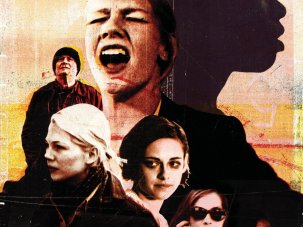
Browse our online polls and round-ups of the year’s best new movies, documentaries, indie animation and (re)issues on DVD and Blu-ray.
-
Sight & Sound: the January 2017 issue
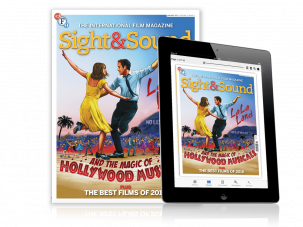
Damien Chazelle’s modern musical La La Land, and a new look at exemplary toe-tapper Gene Kelly. Plus Krzysztof Kieslowski, Issa Rae, Eugène...
-
The Digital Edition and Archive quick link
Log in here to your digital edition and archive subscription, take a look at the packages on offer and buy a subscription.




